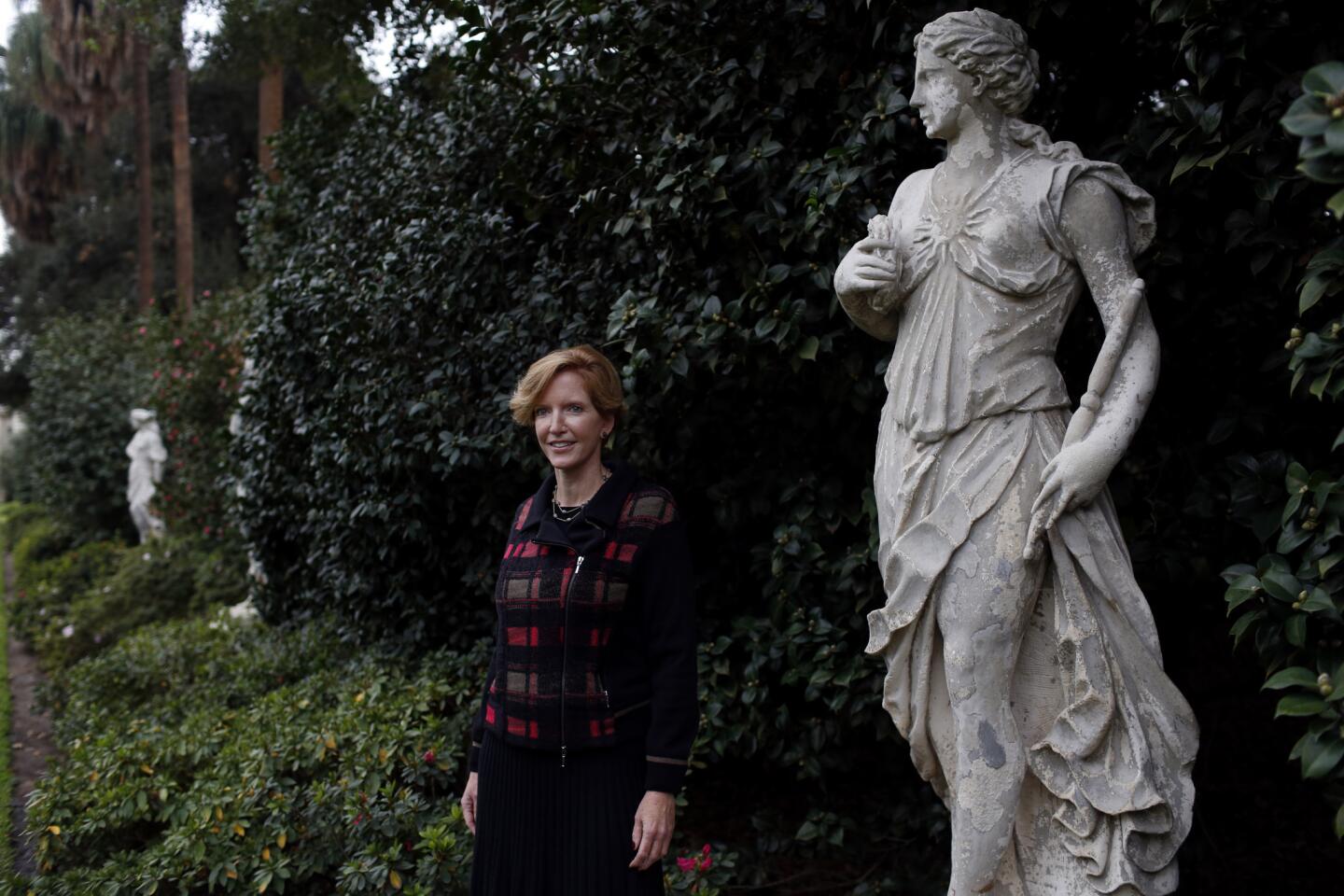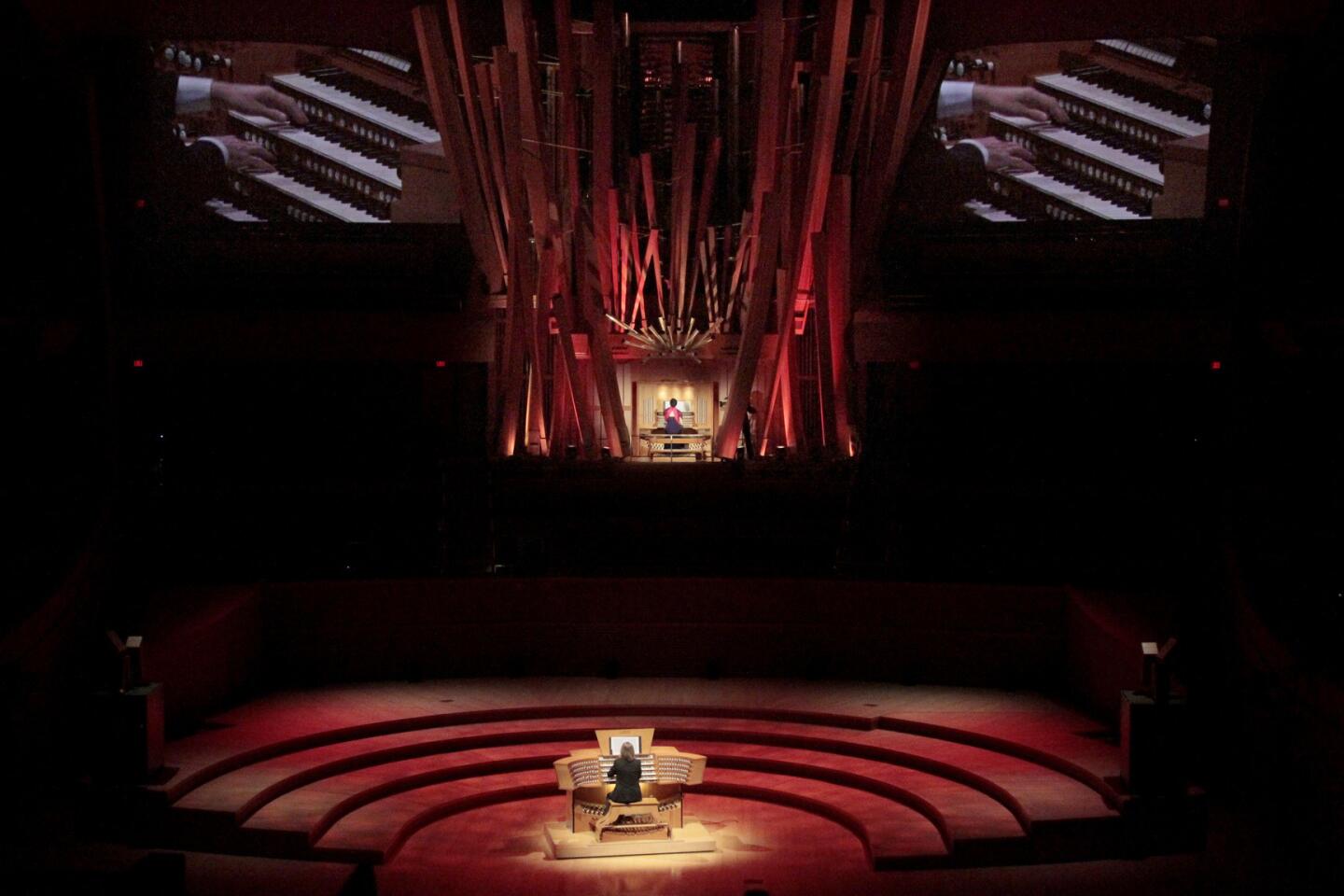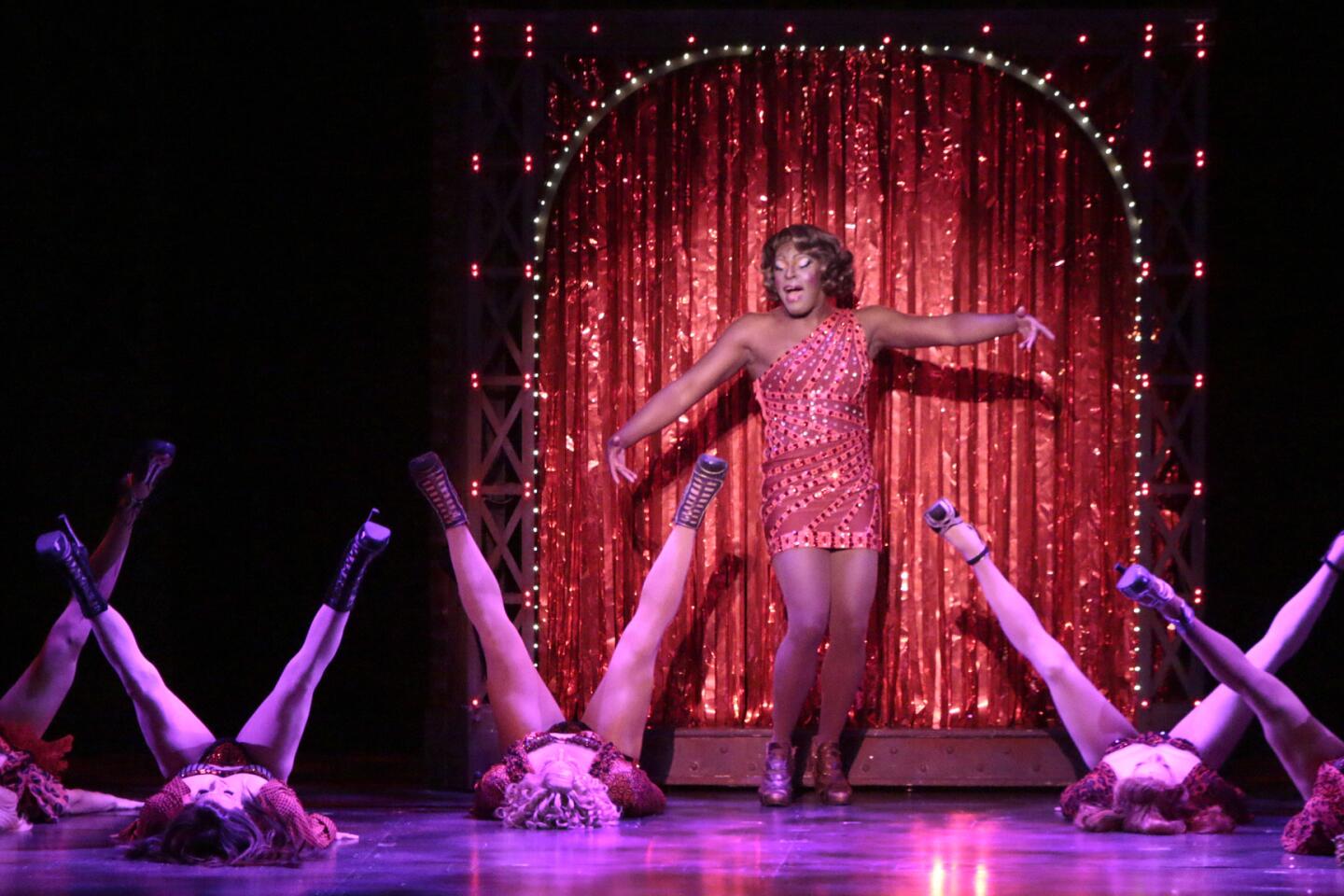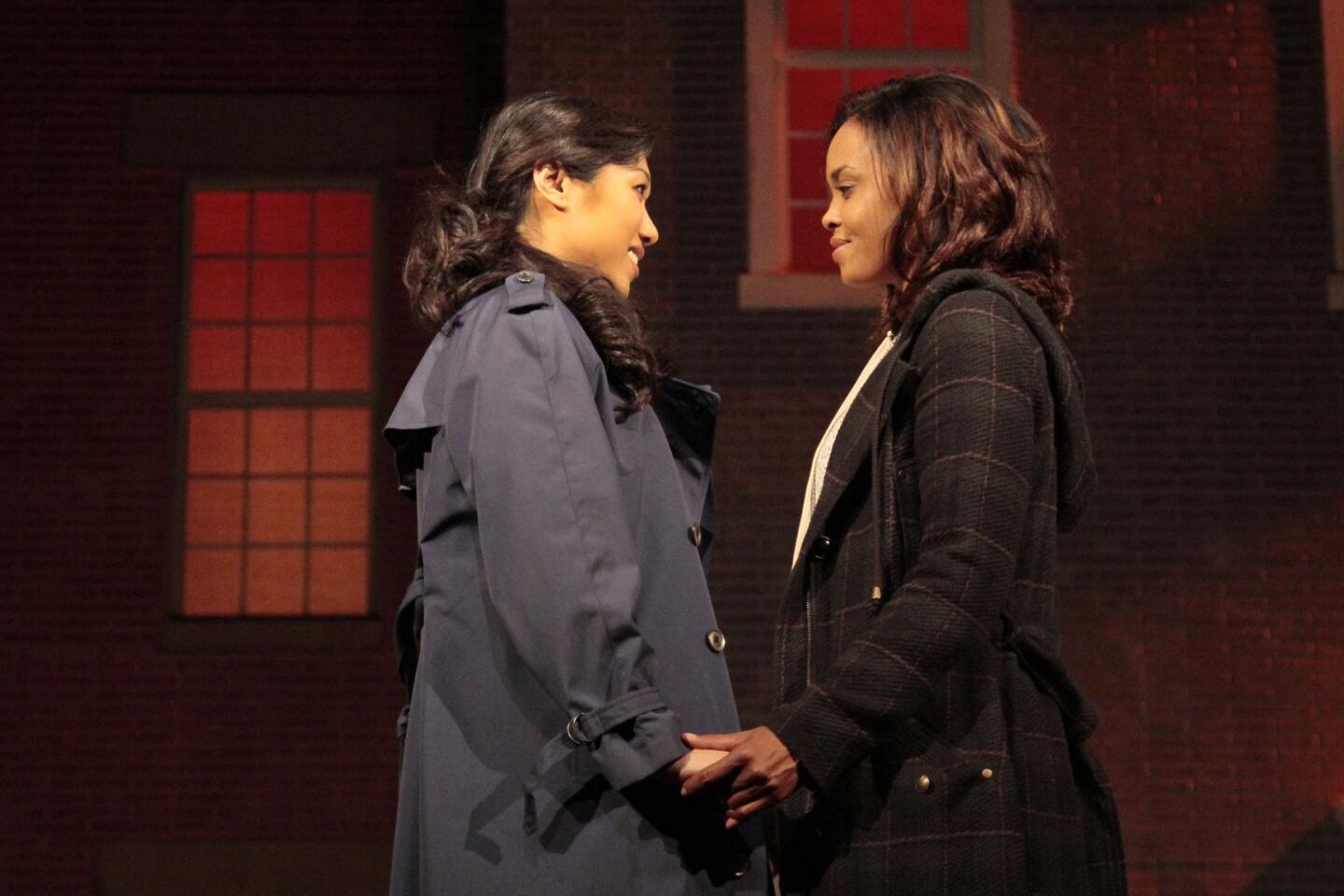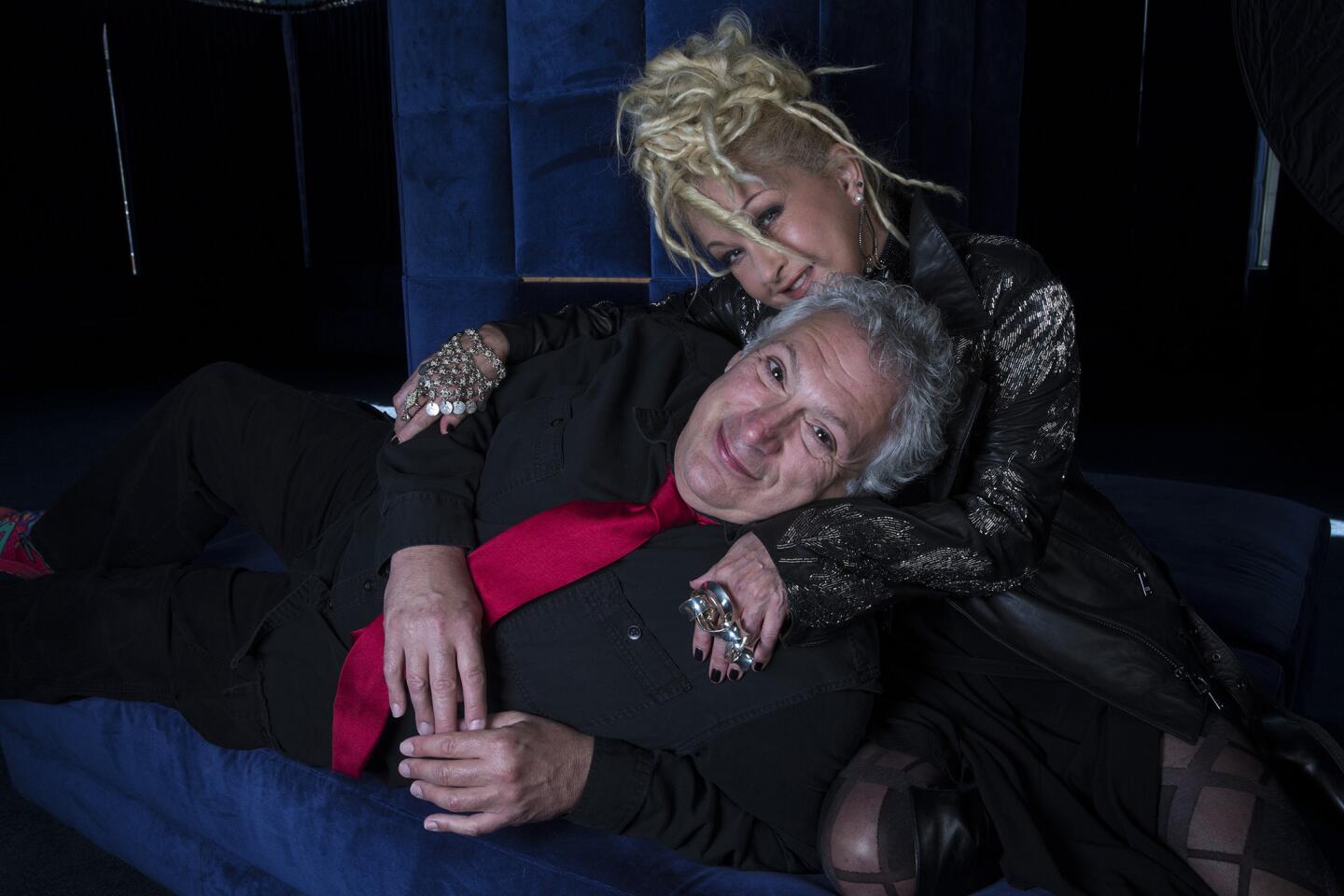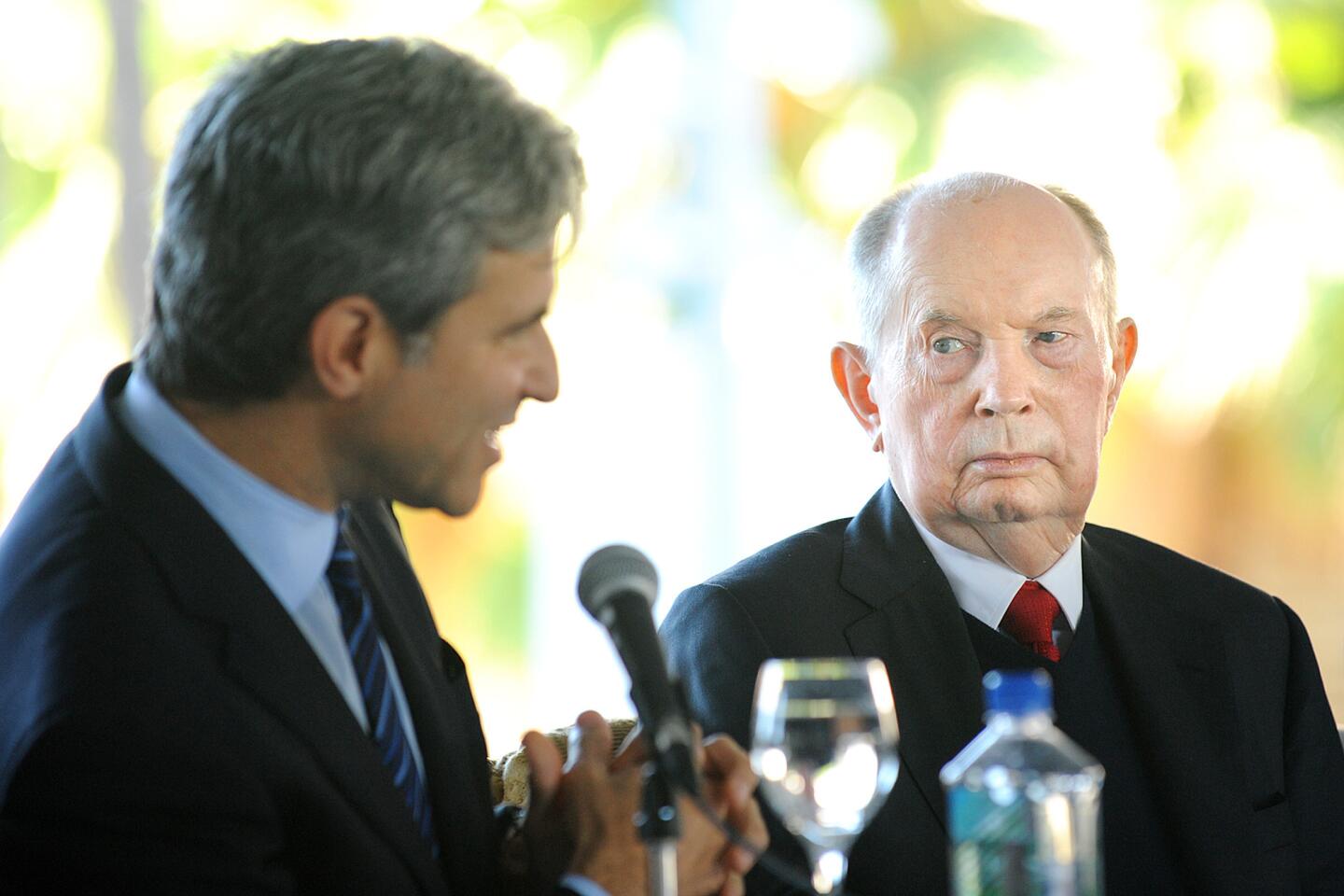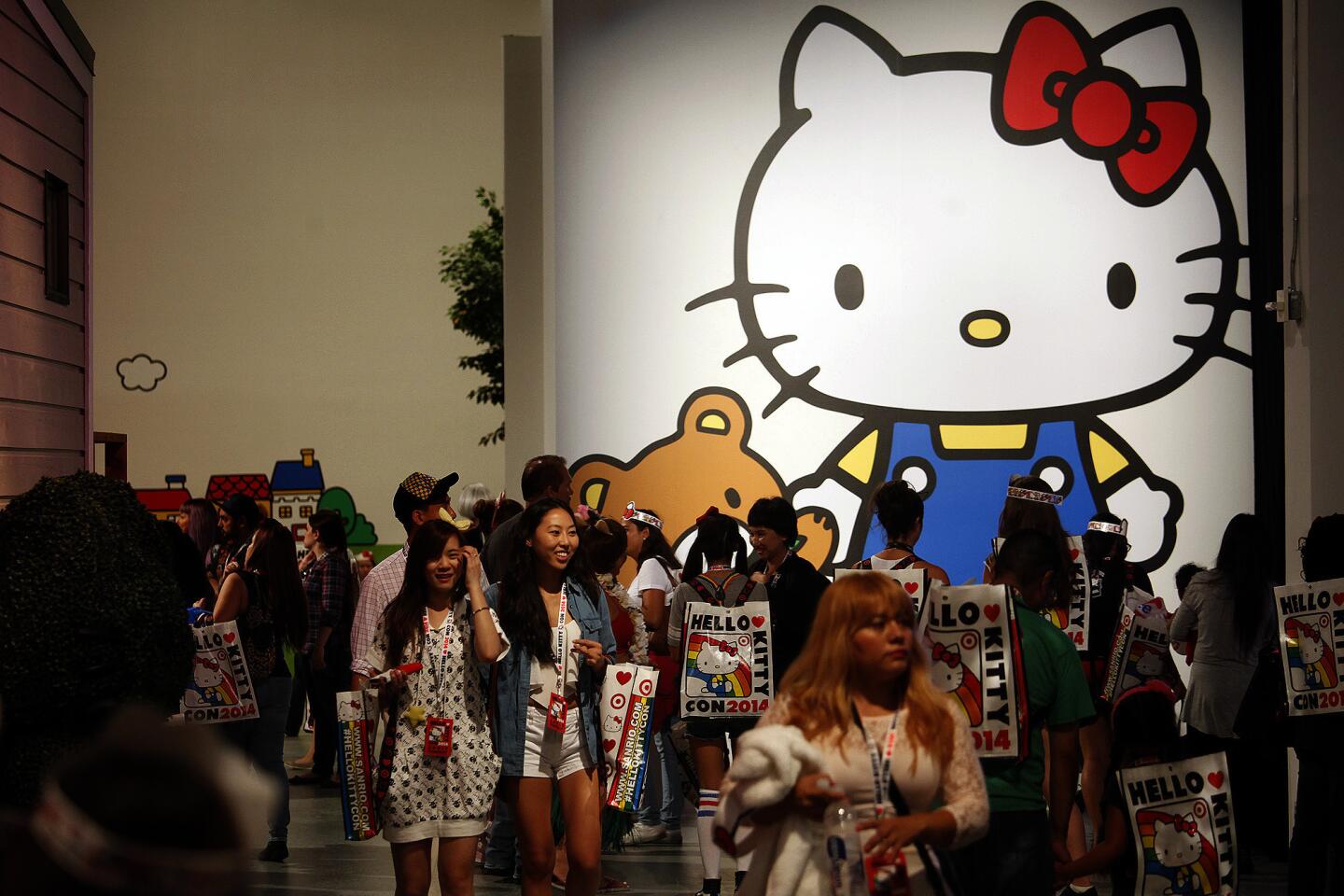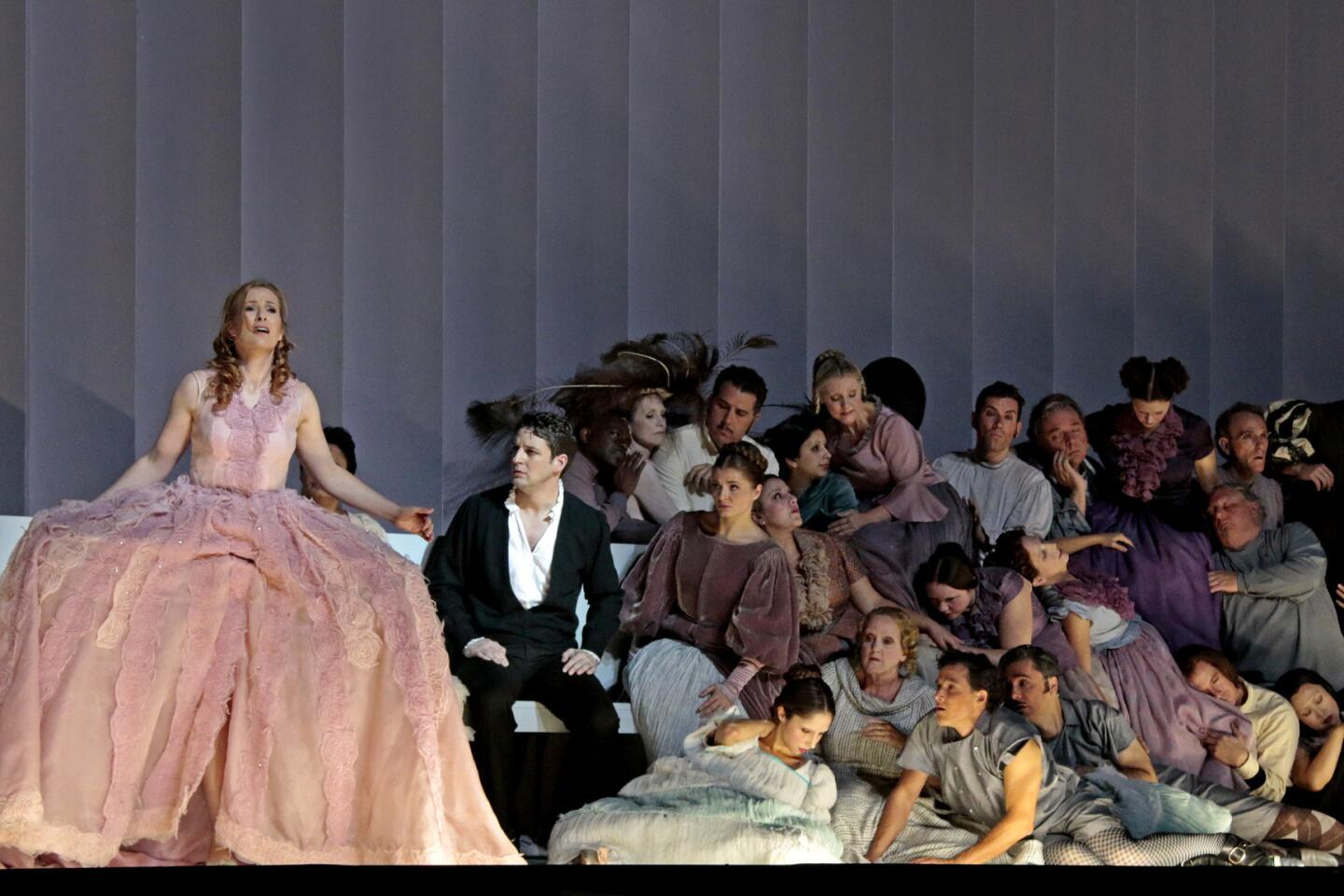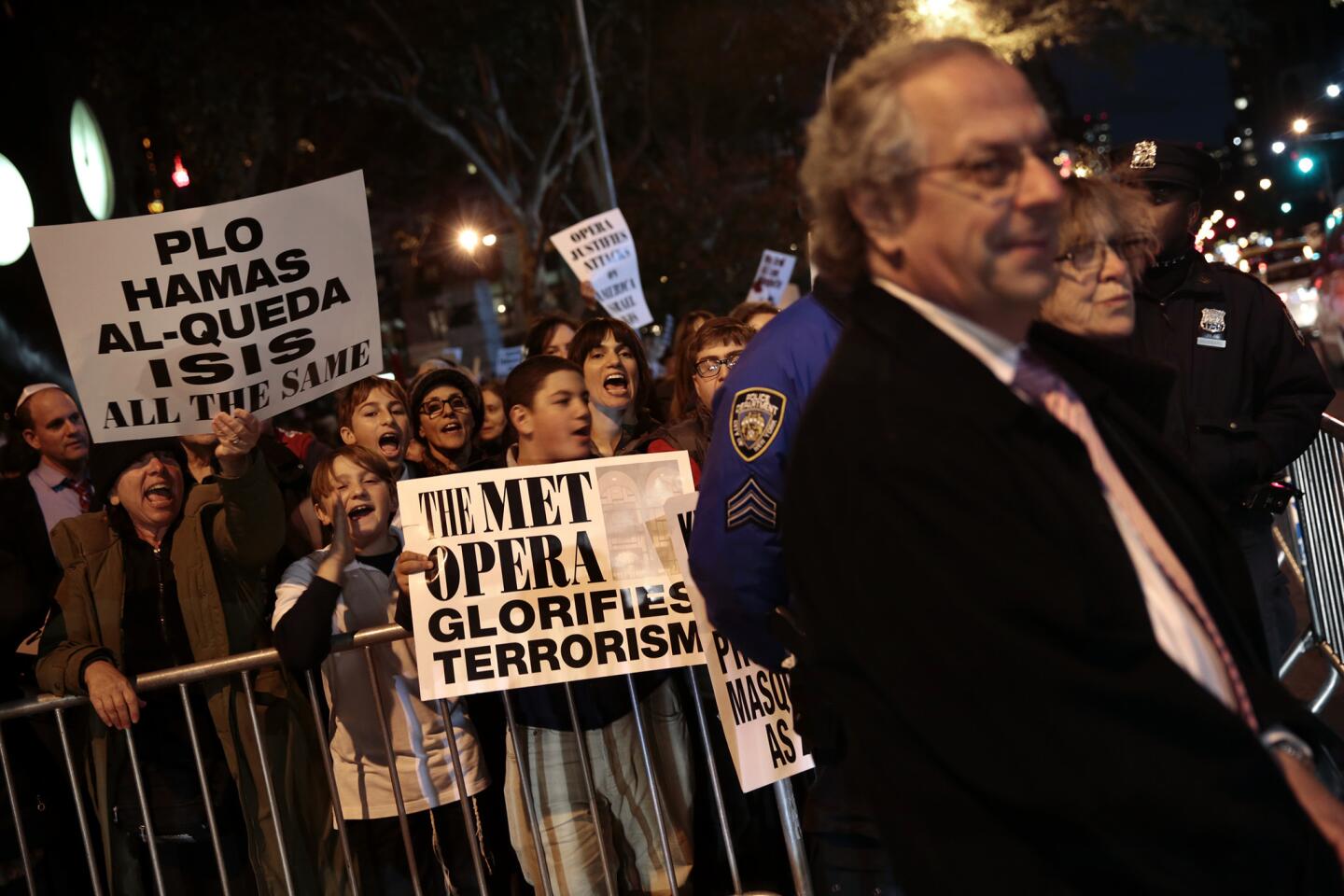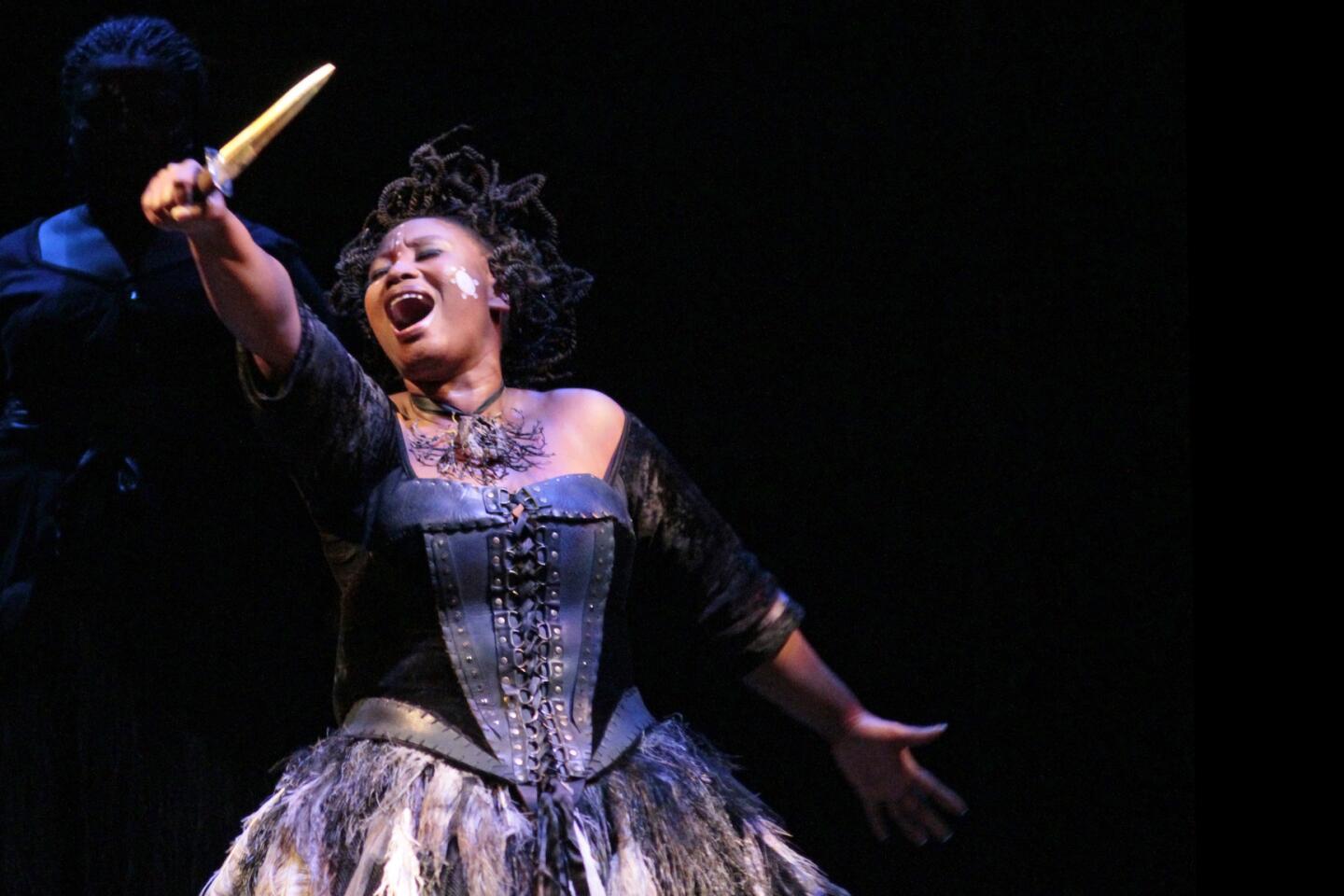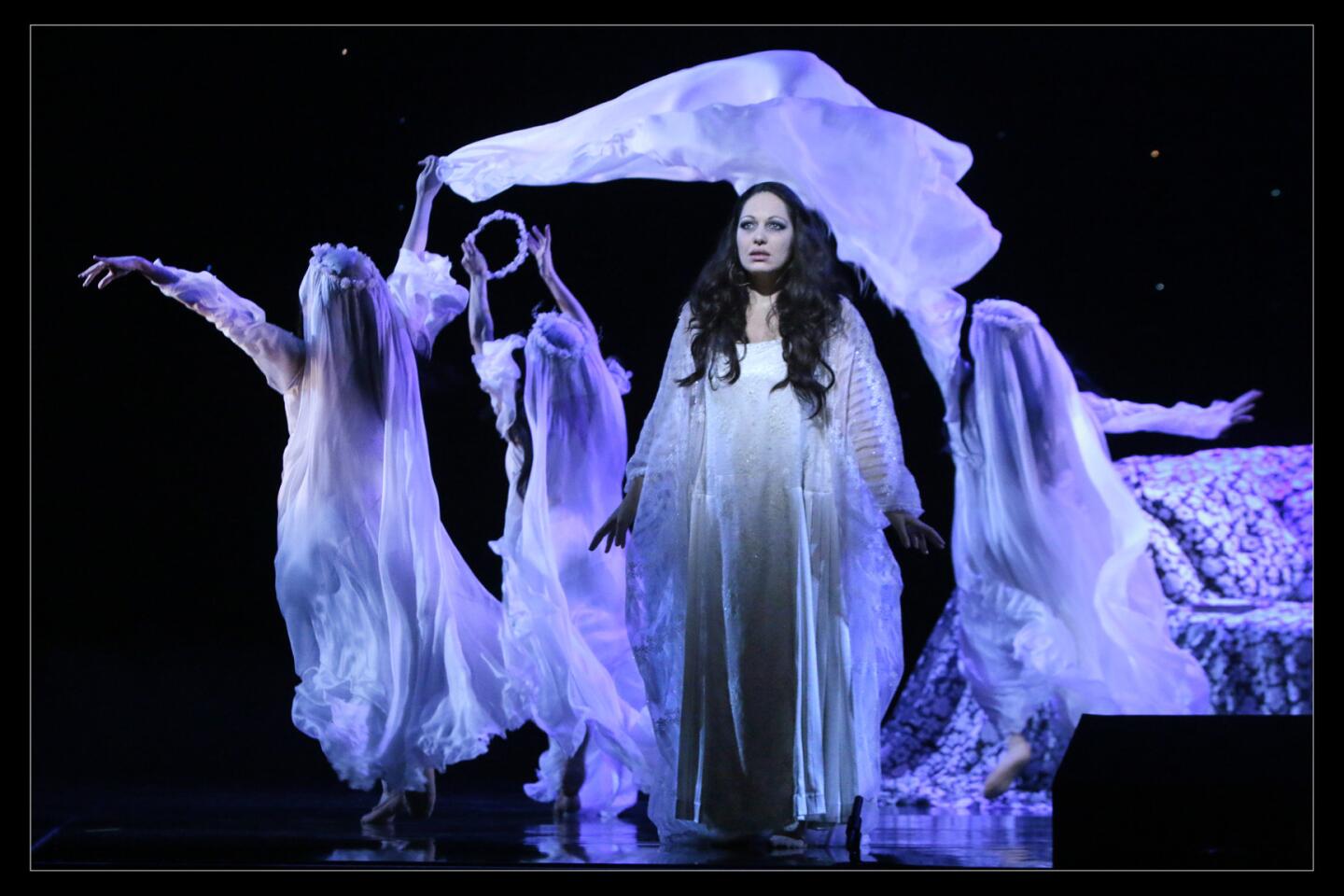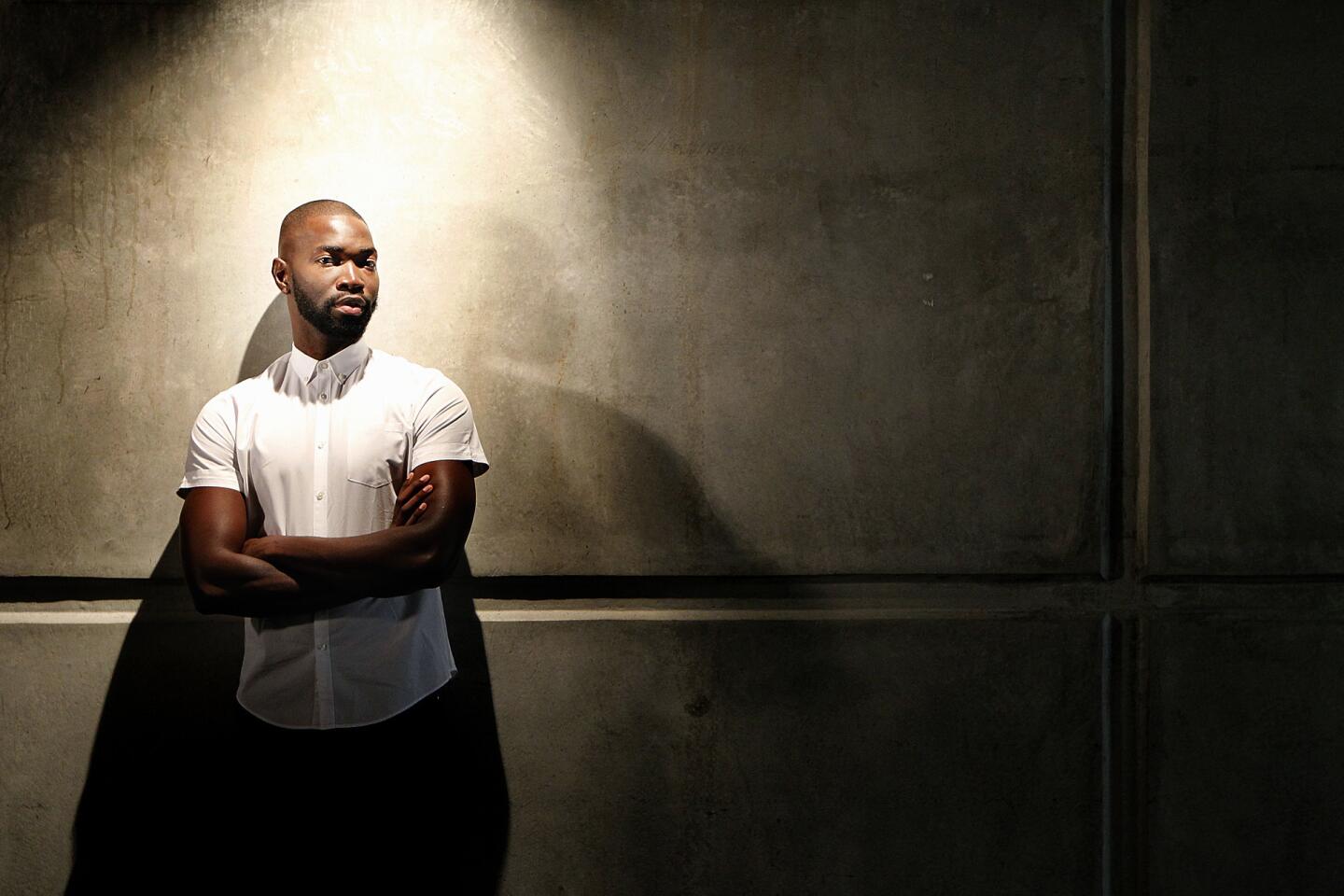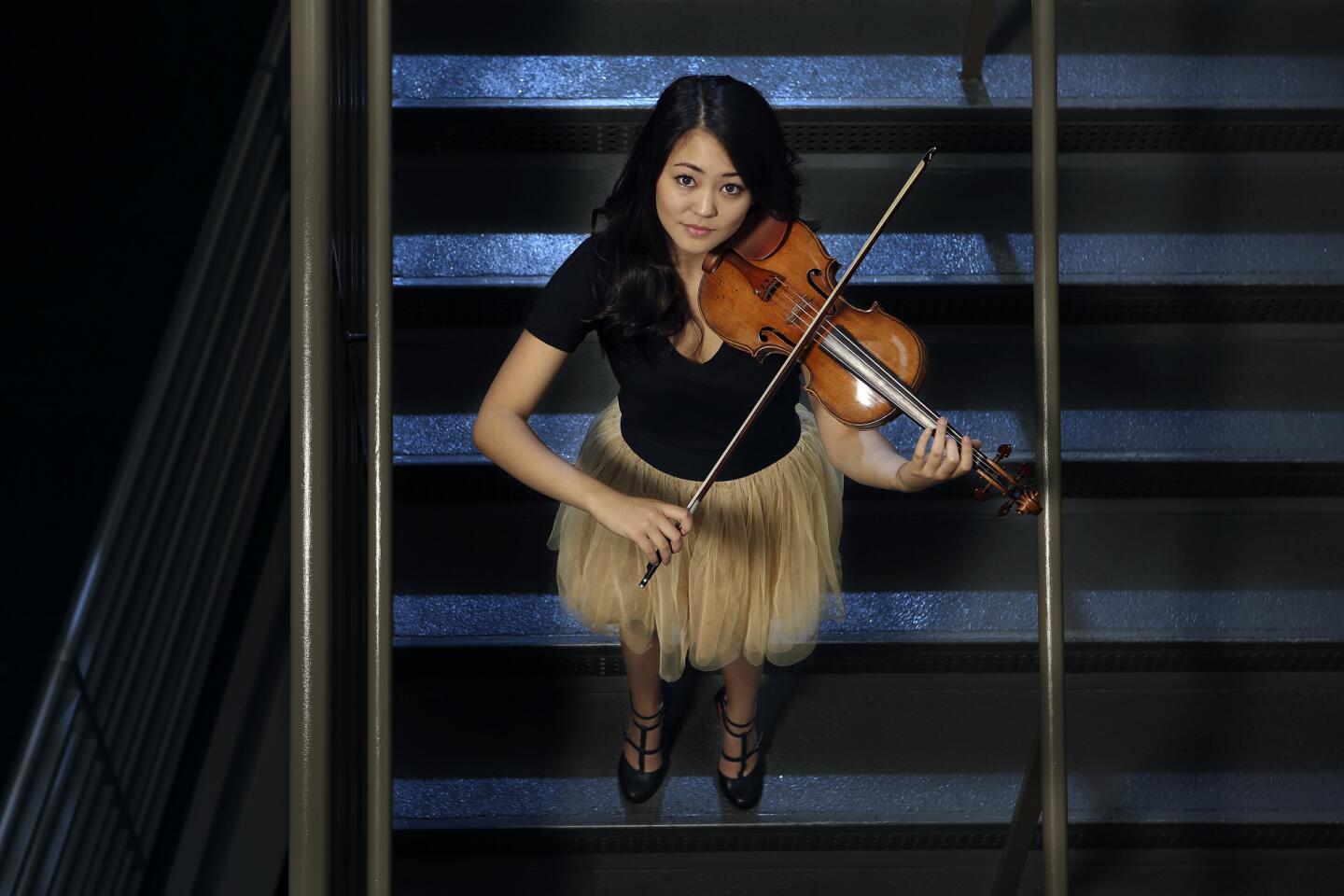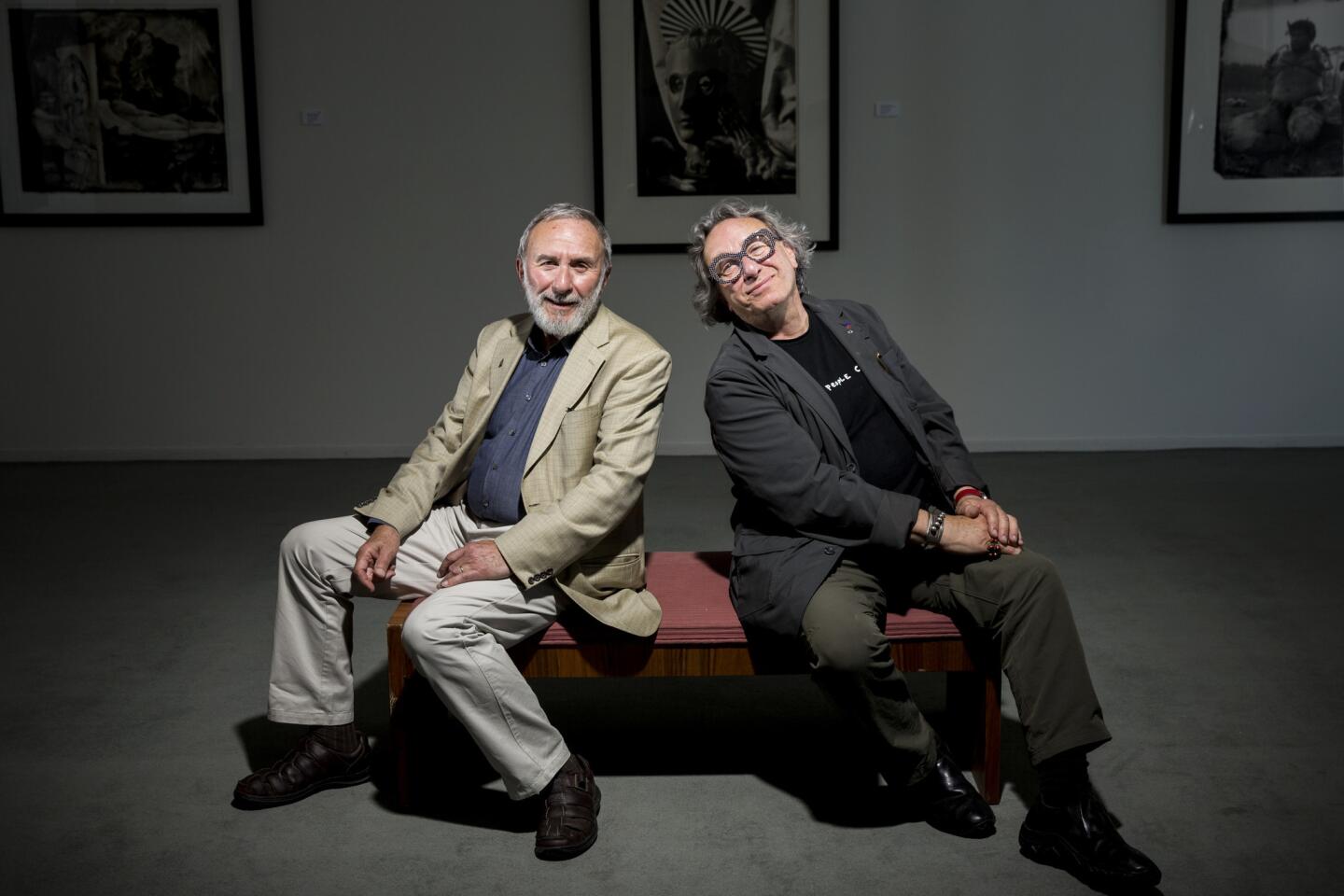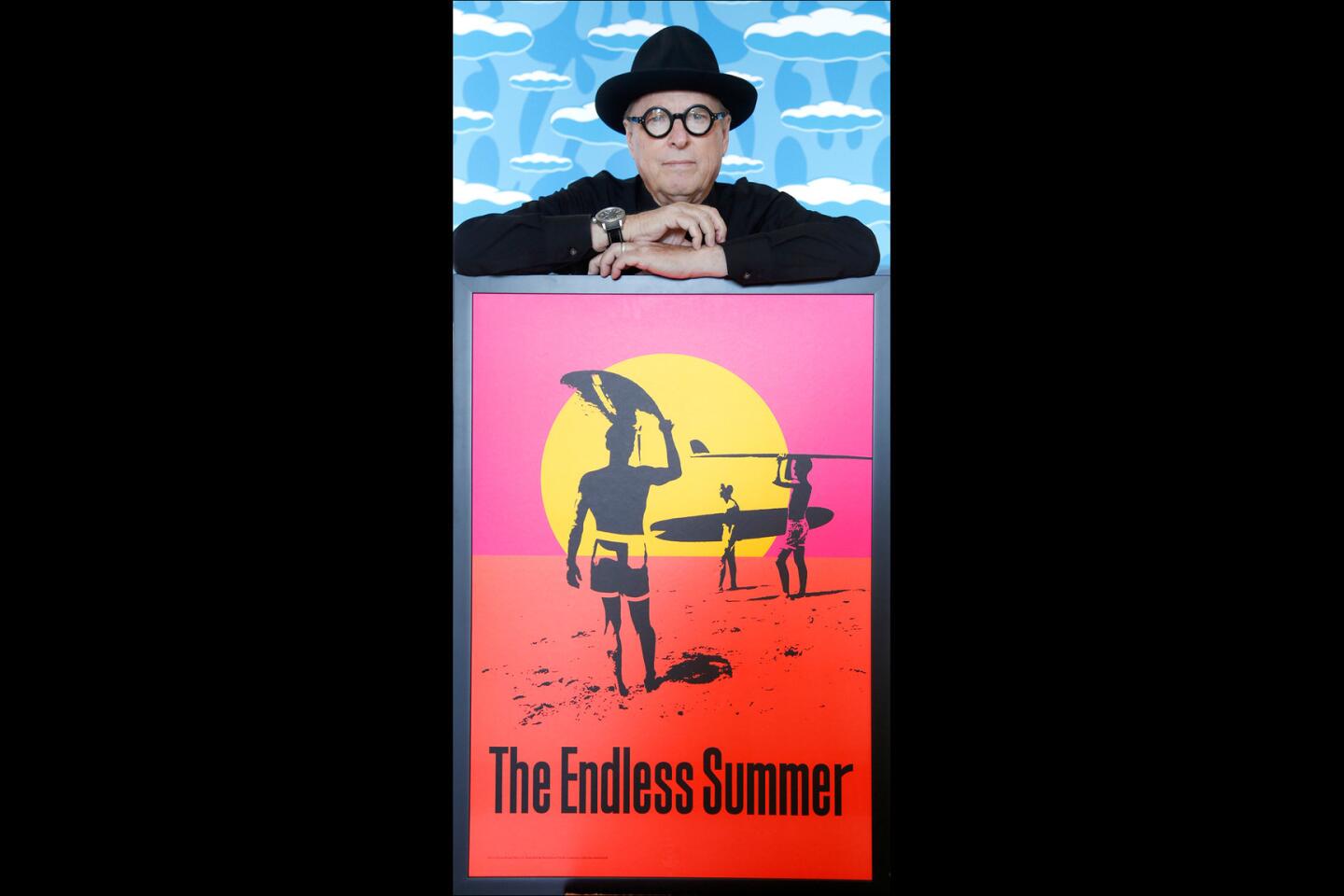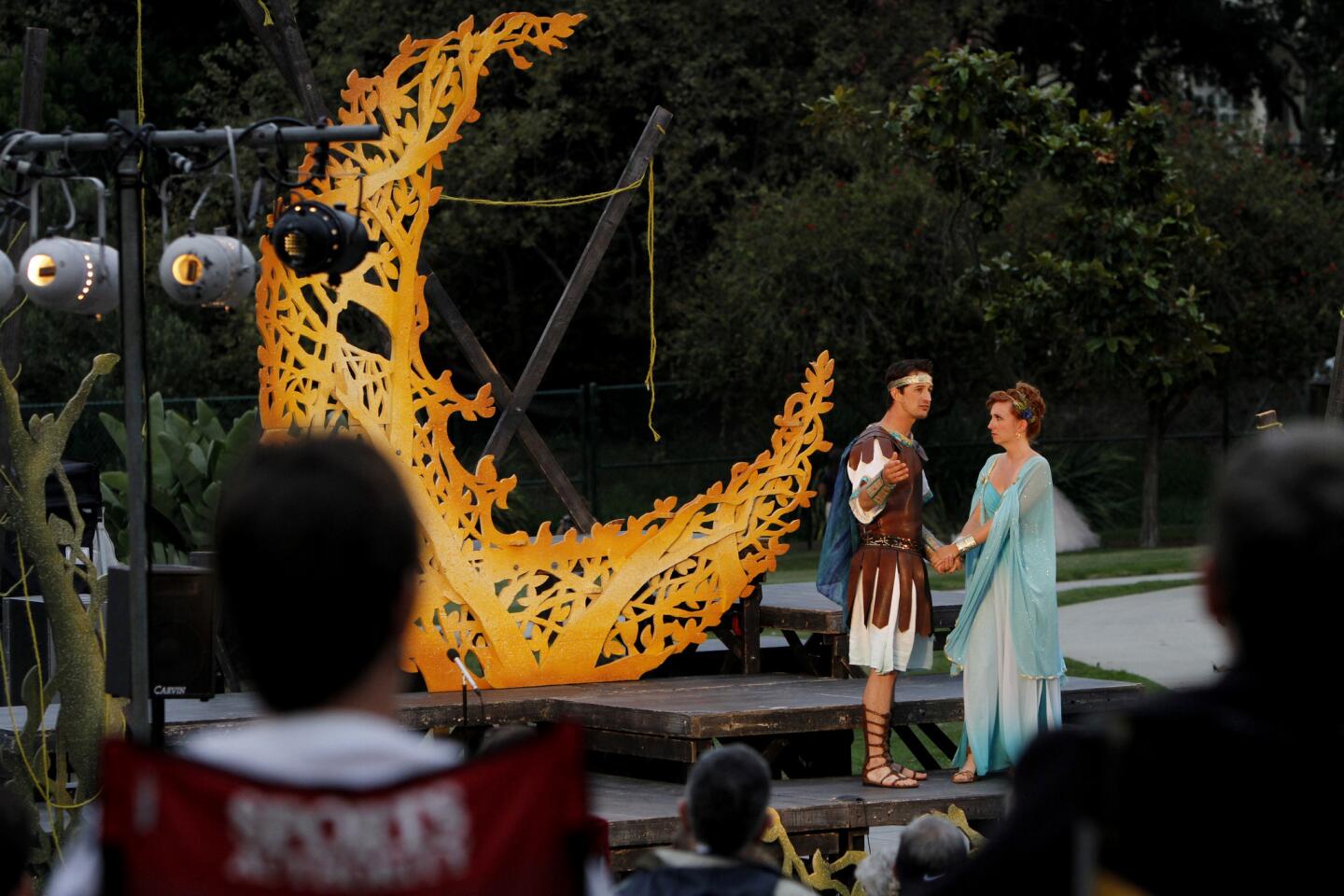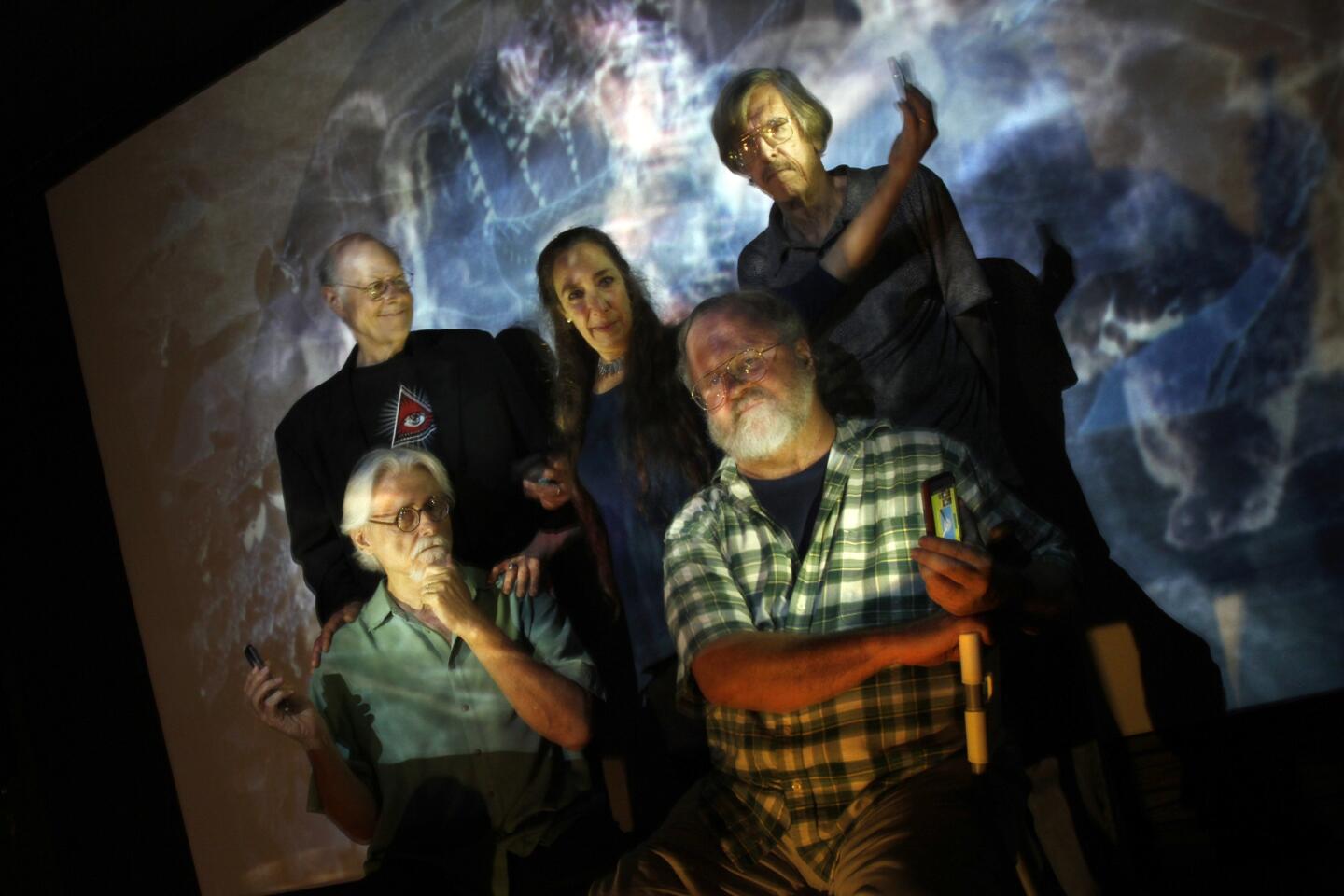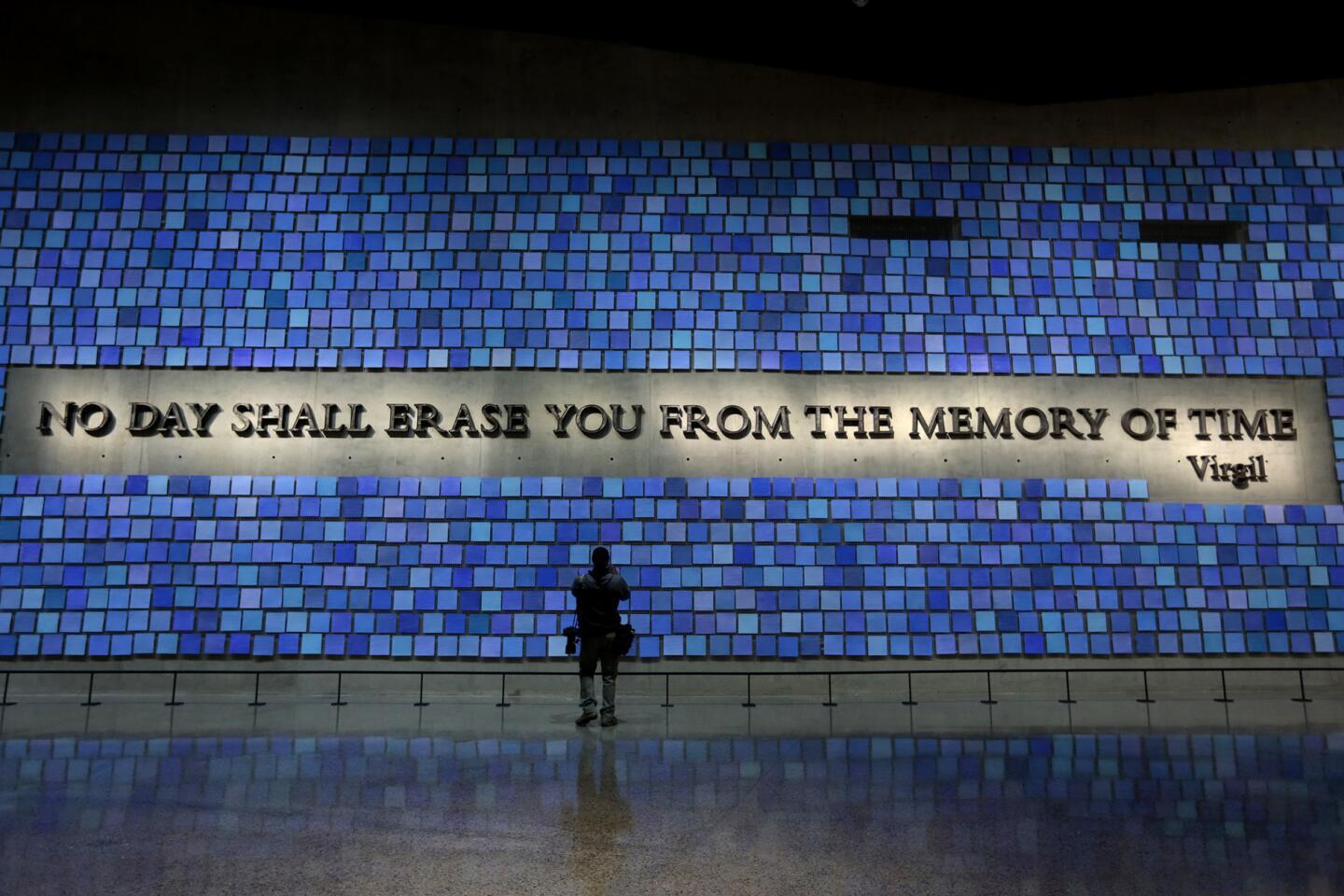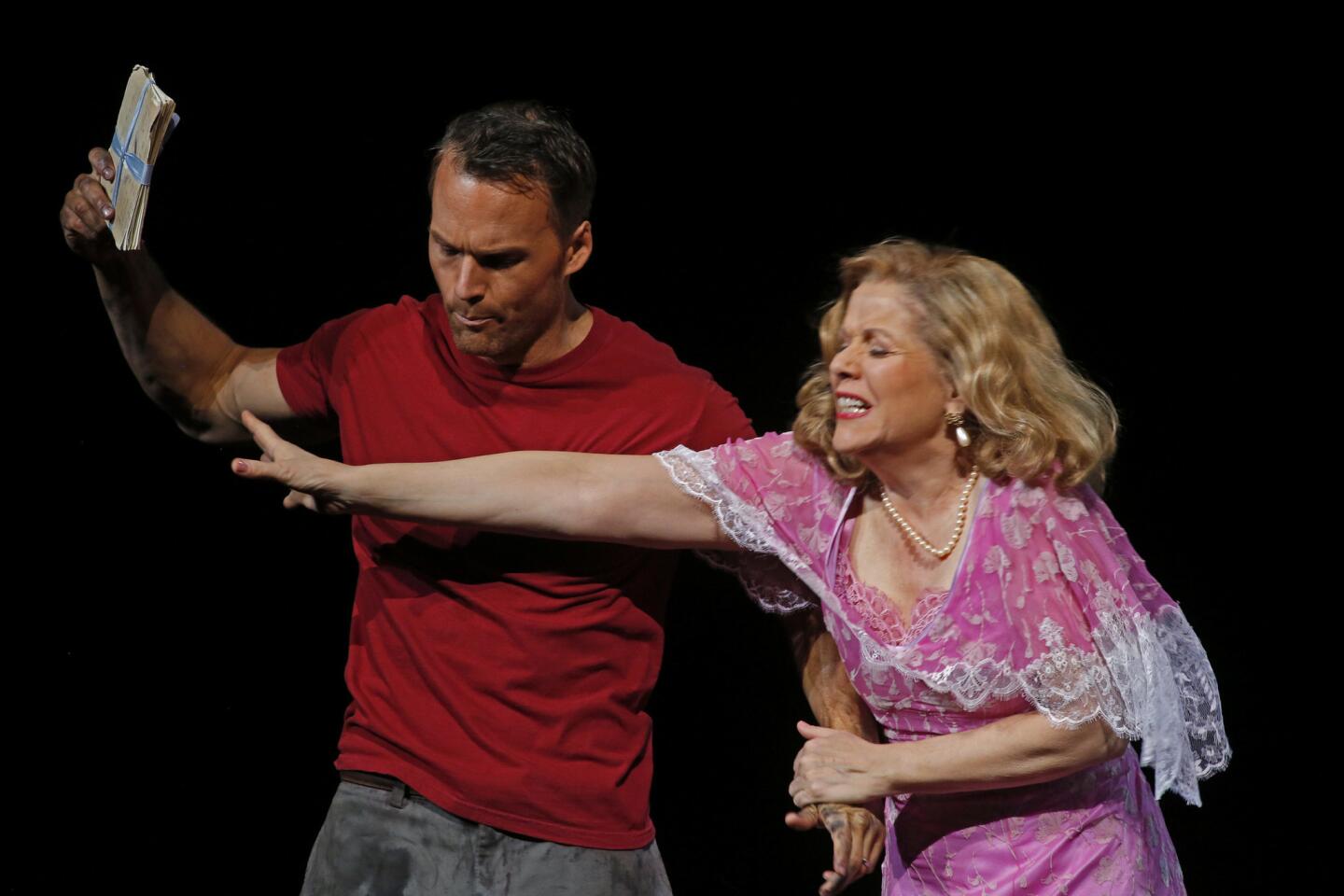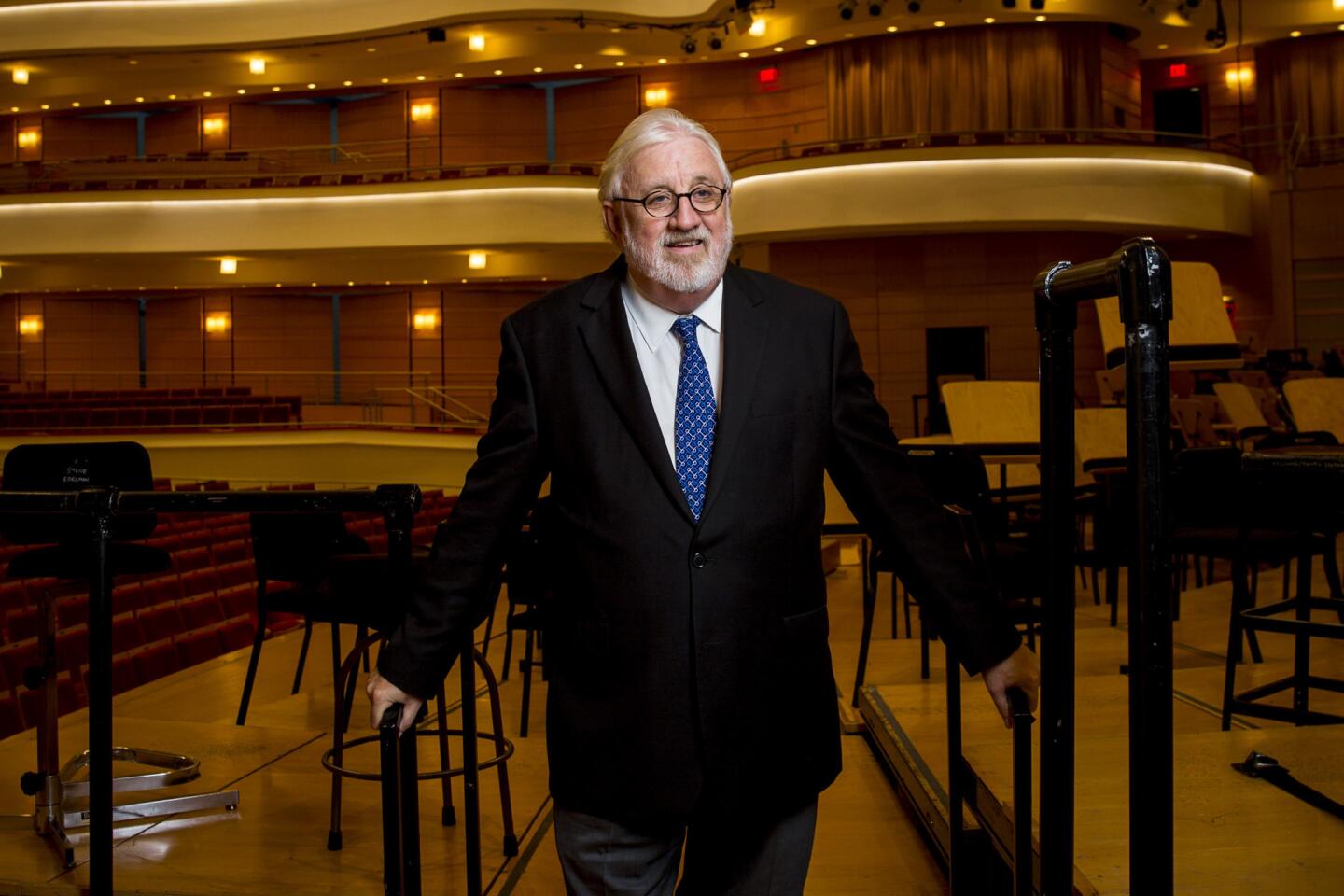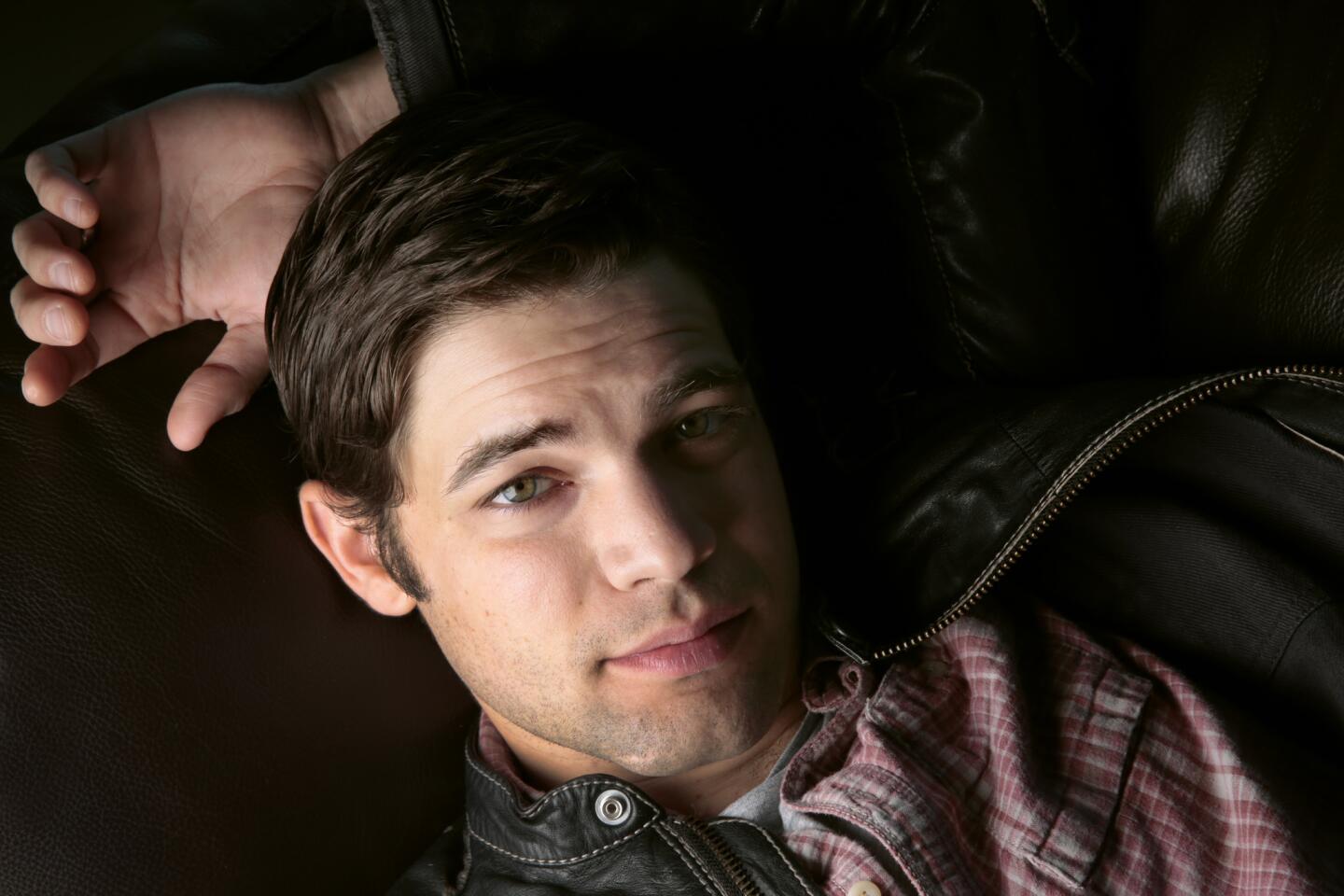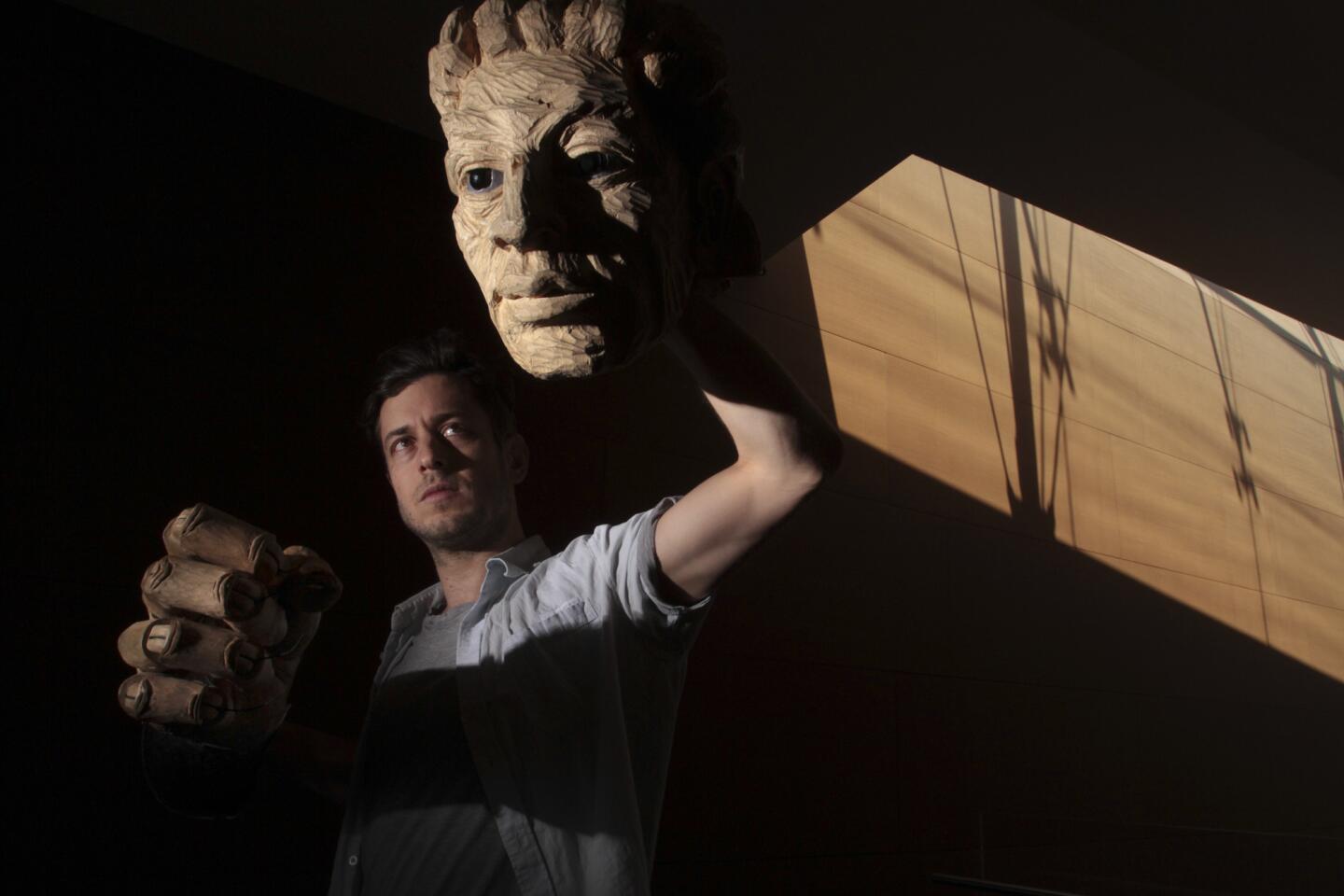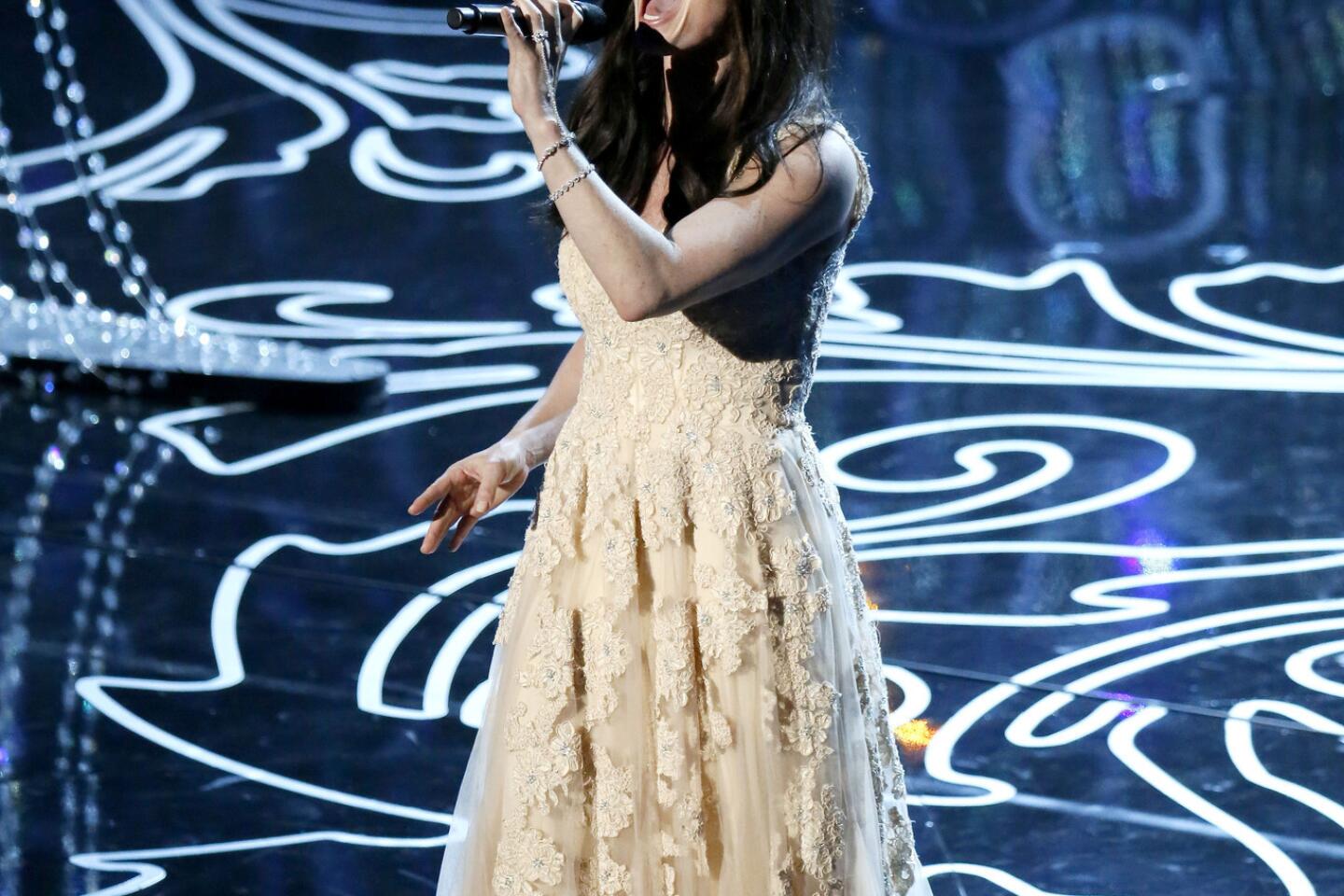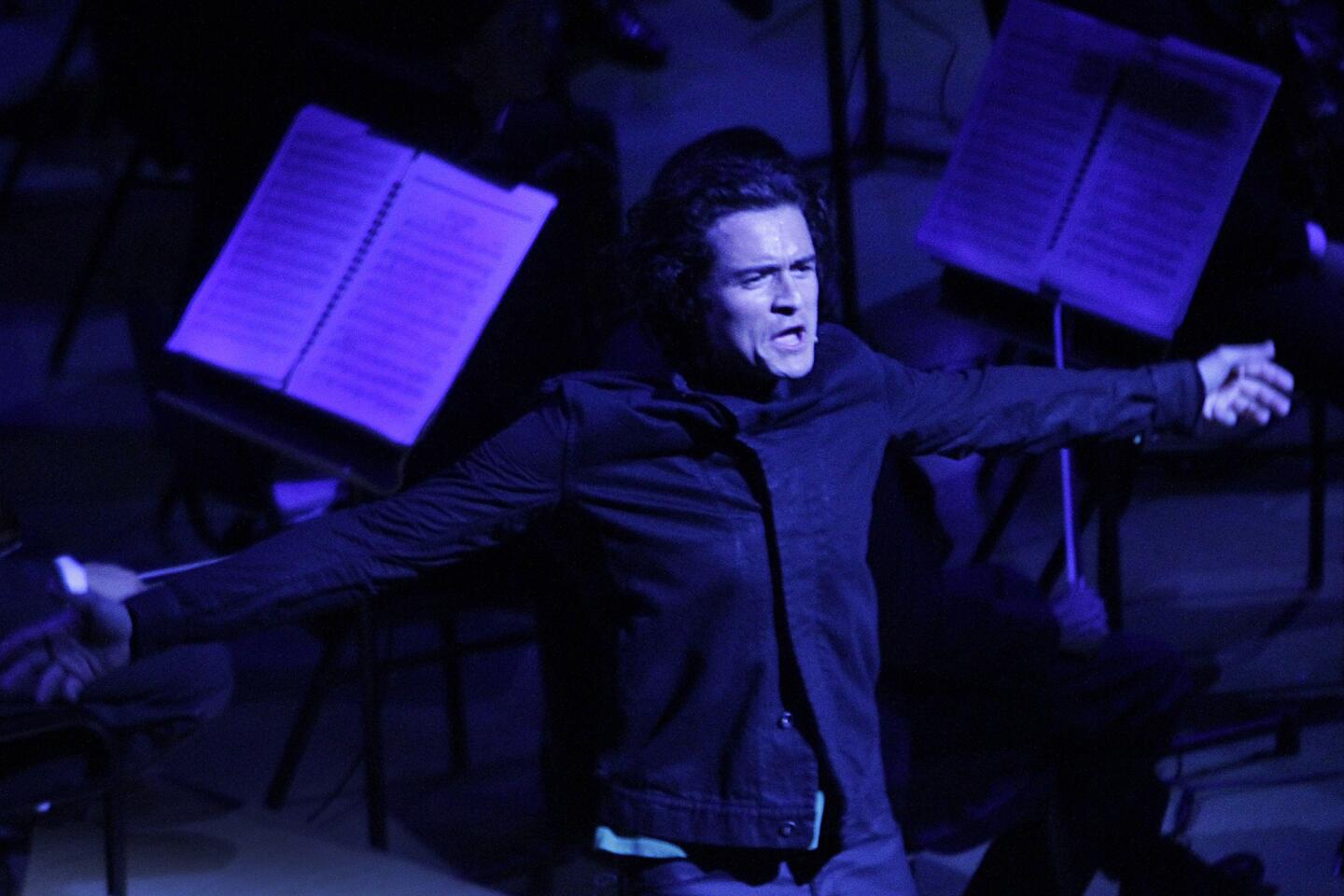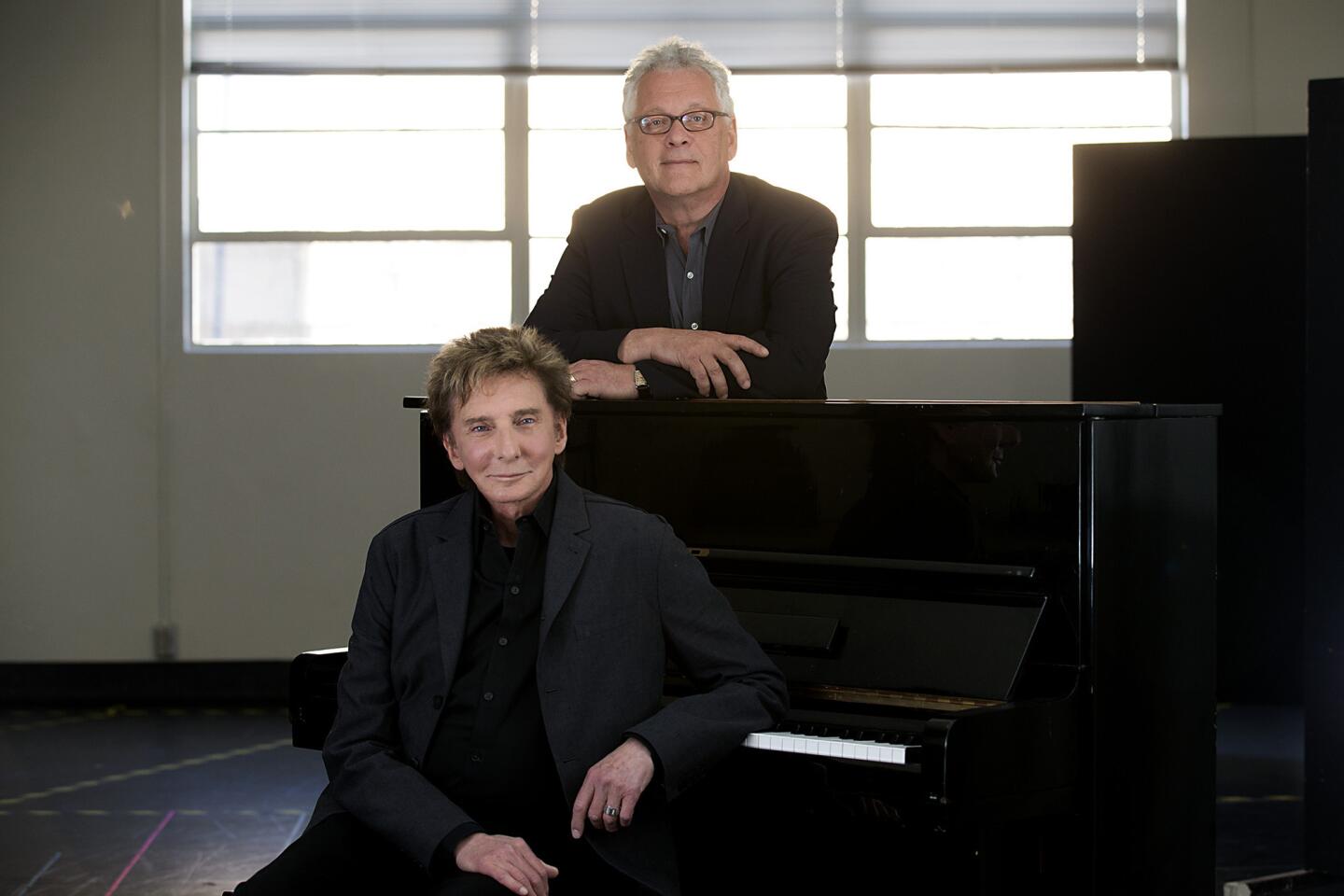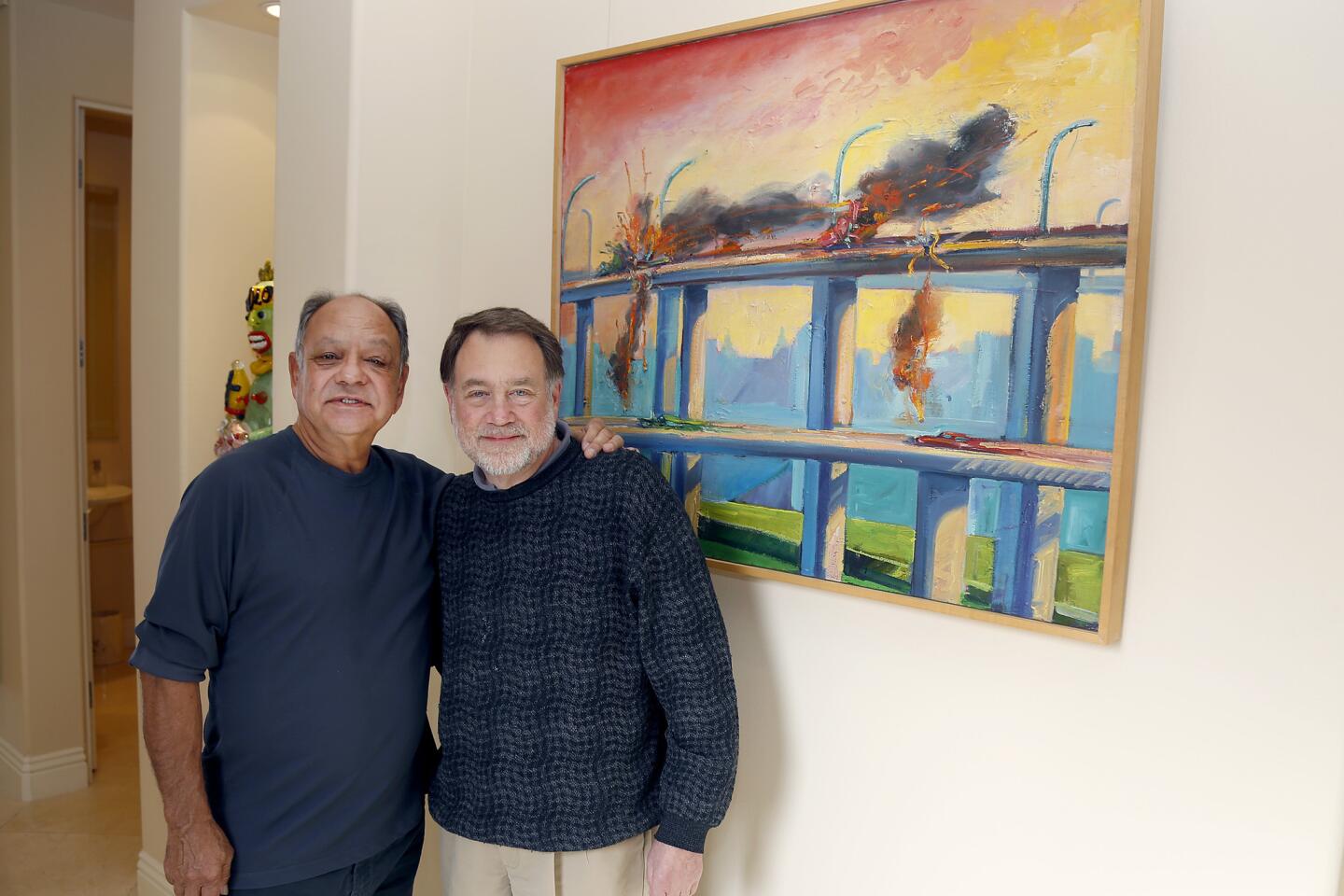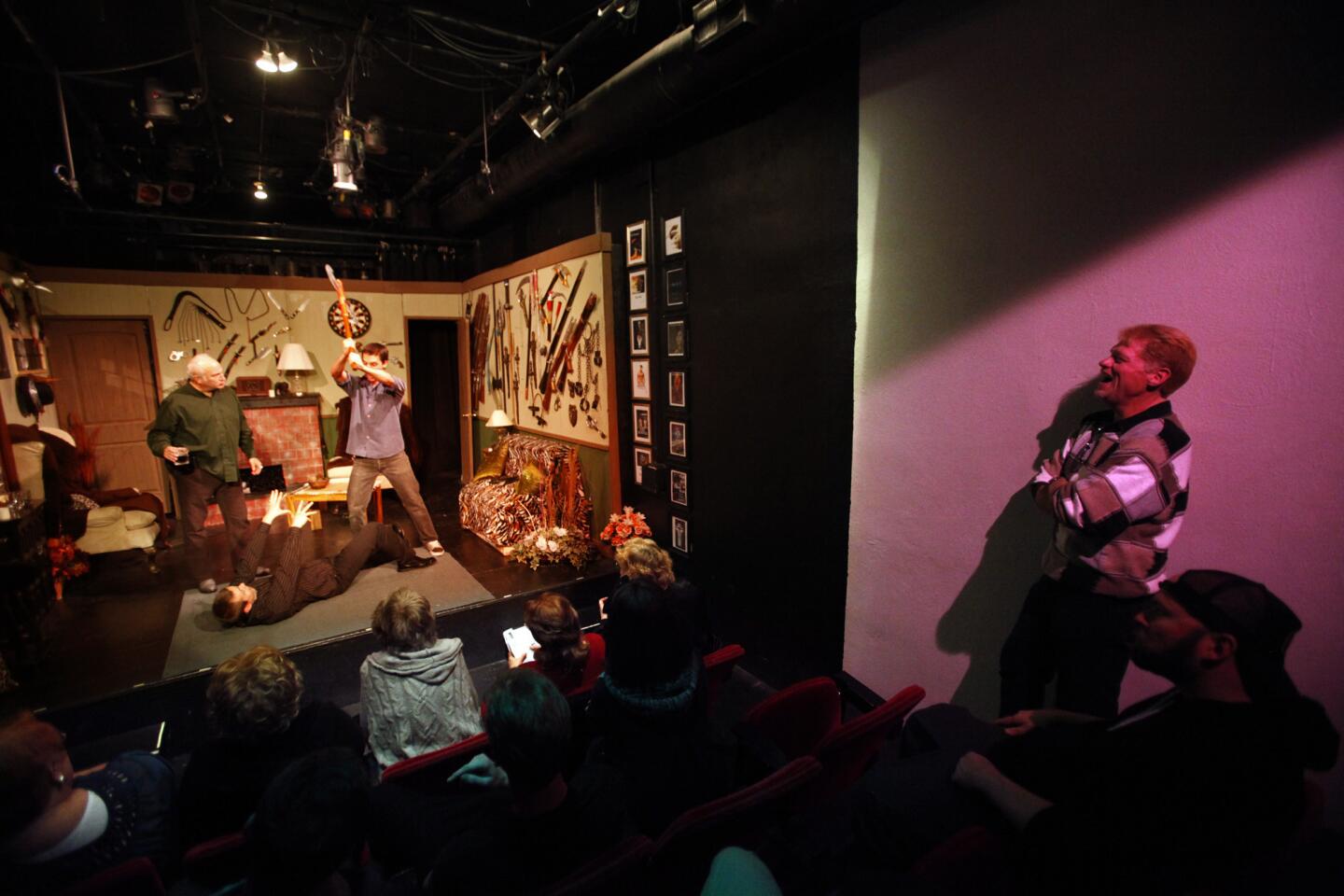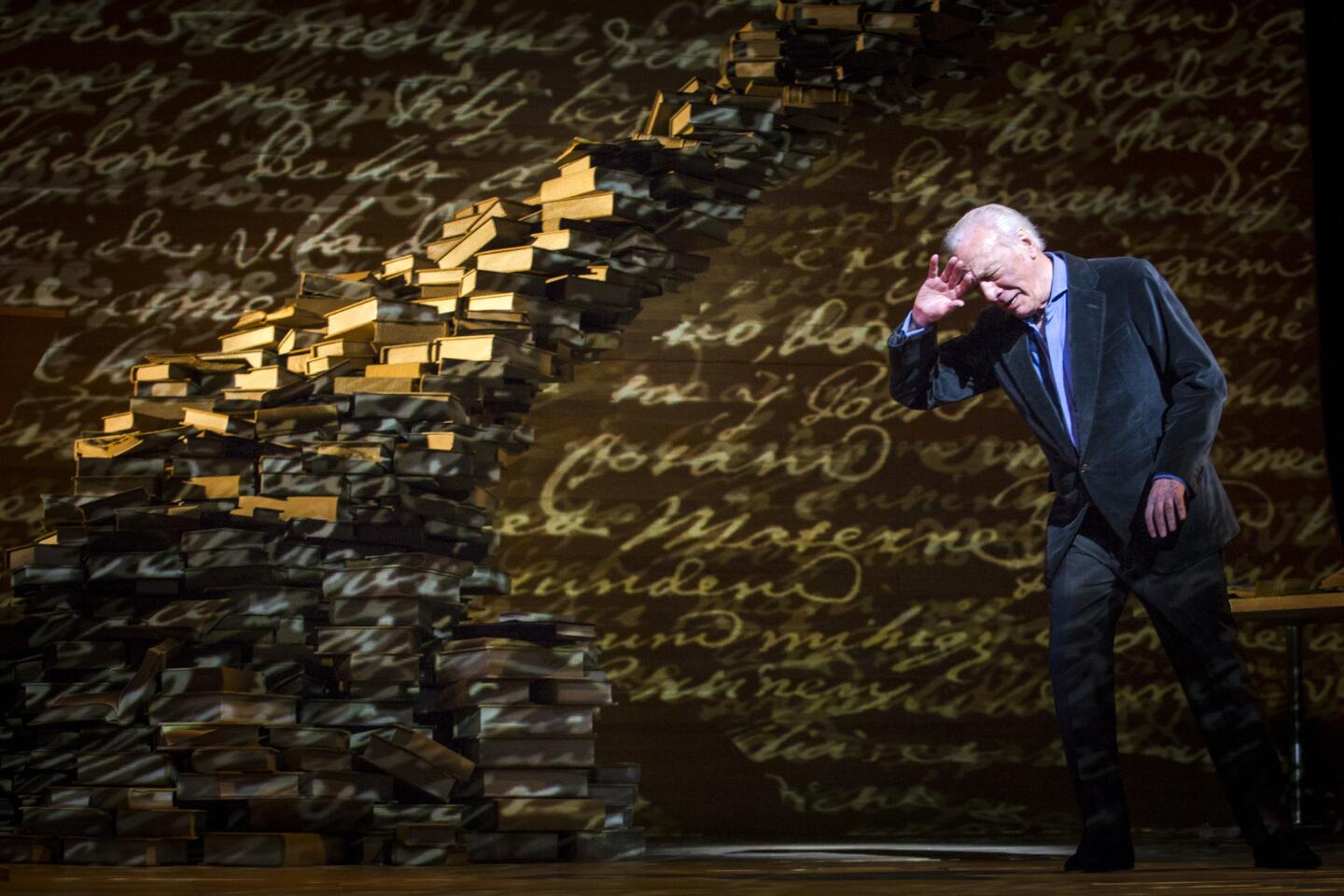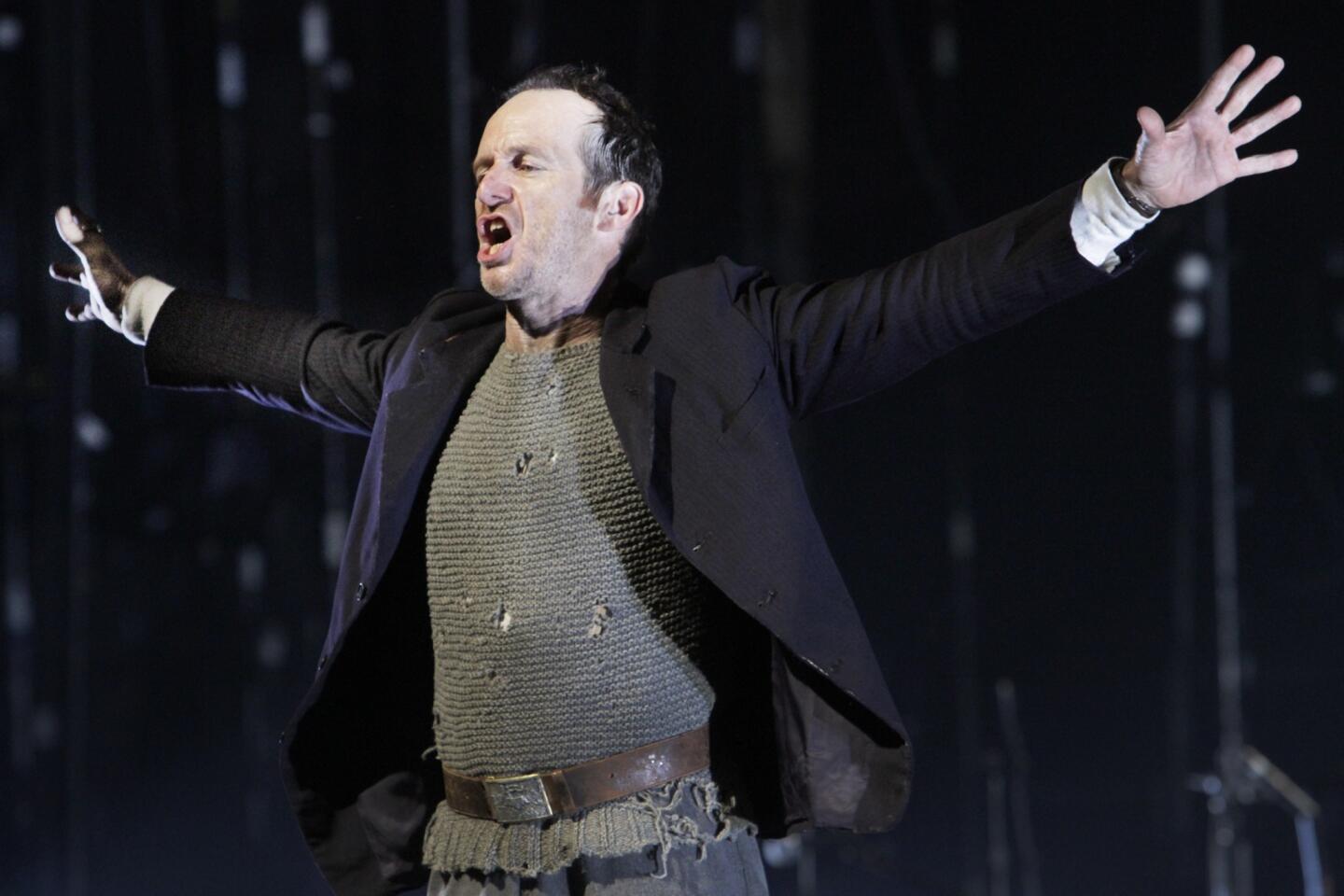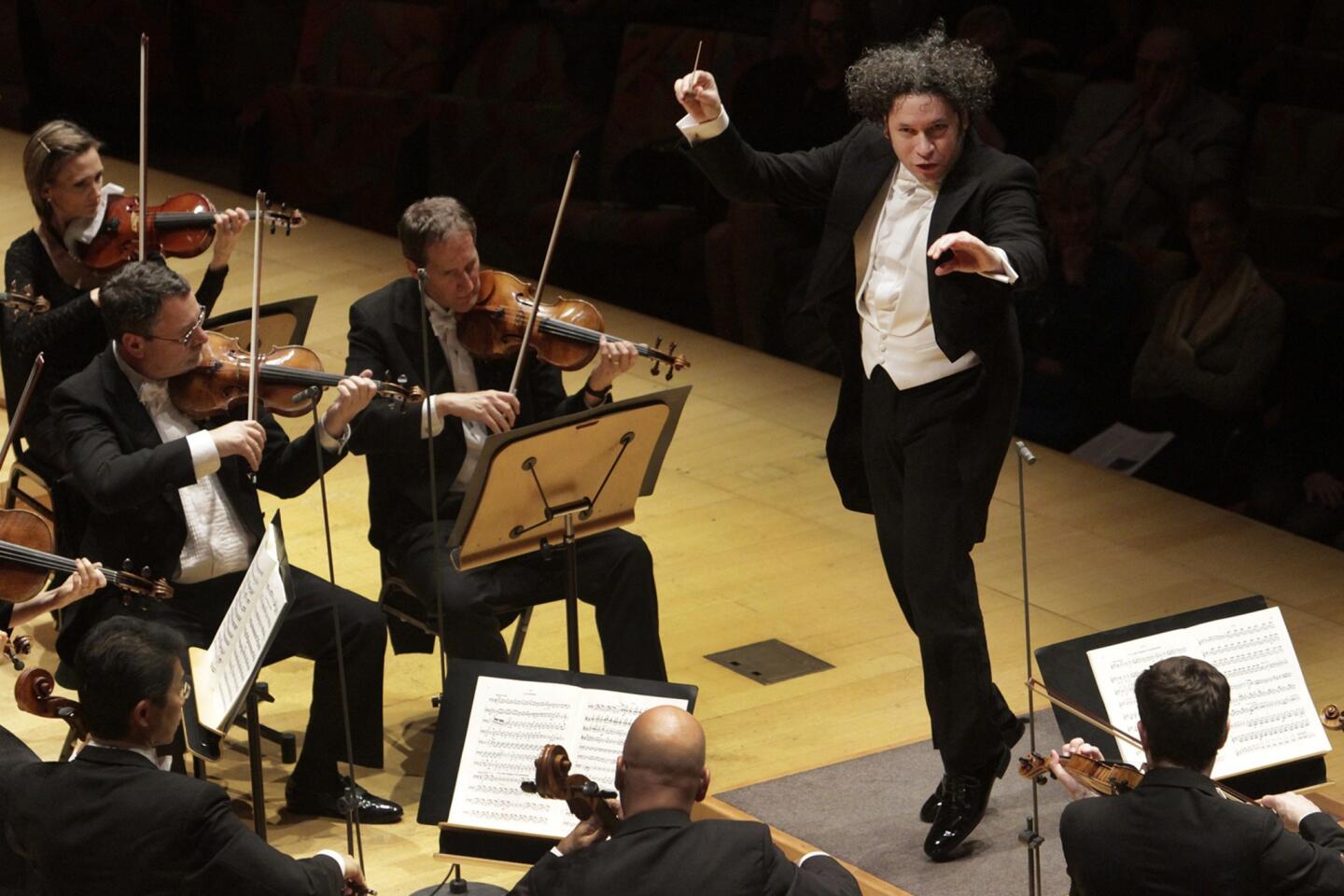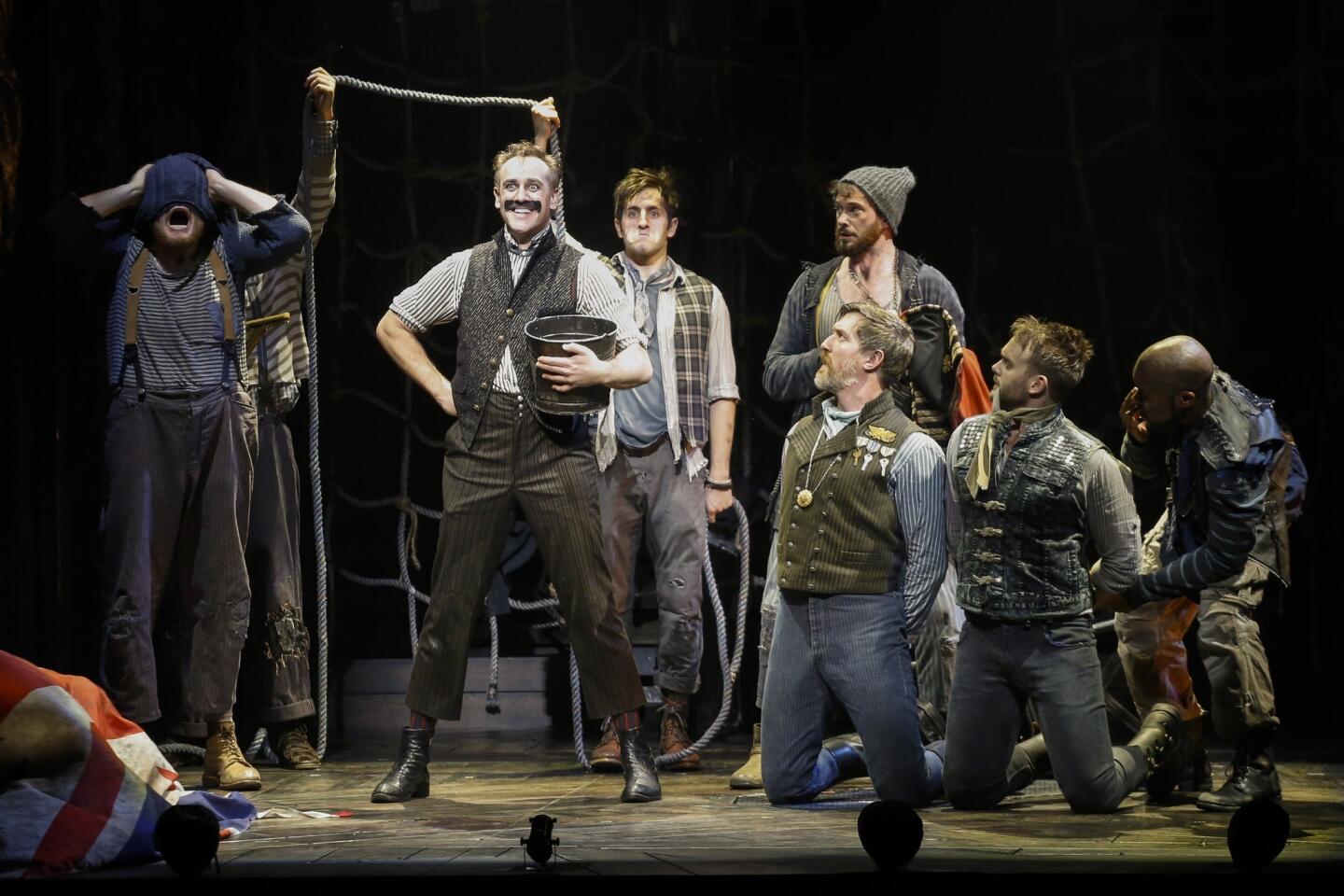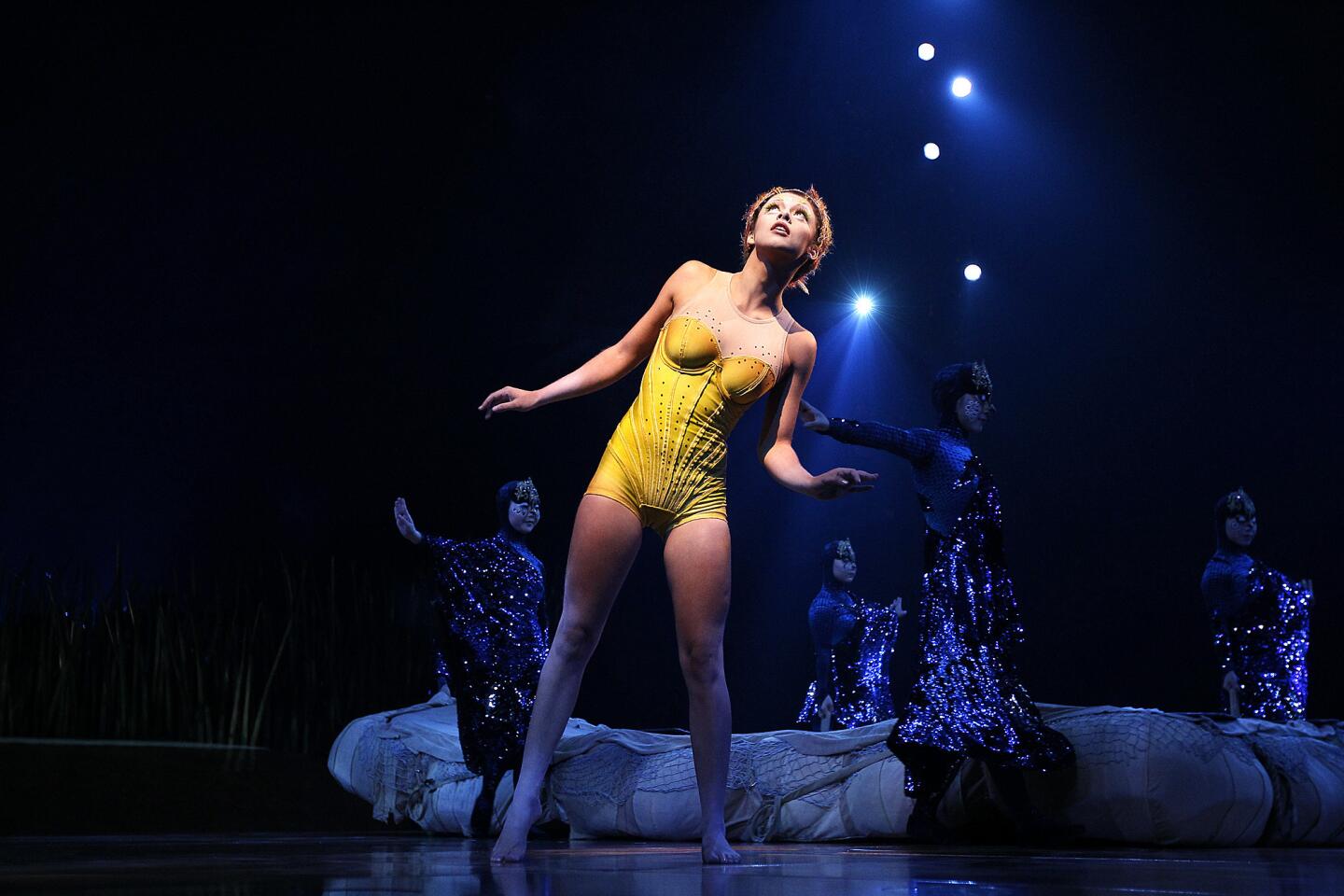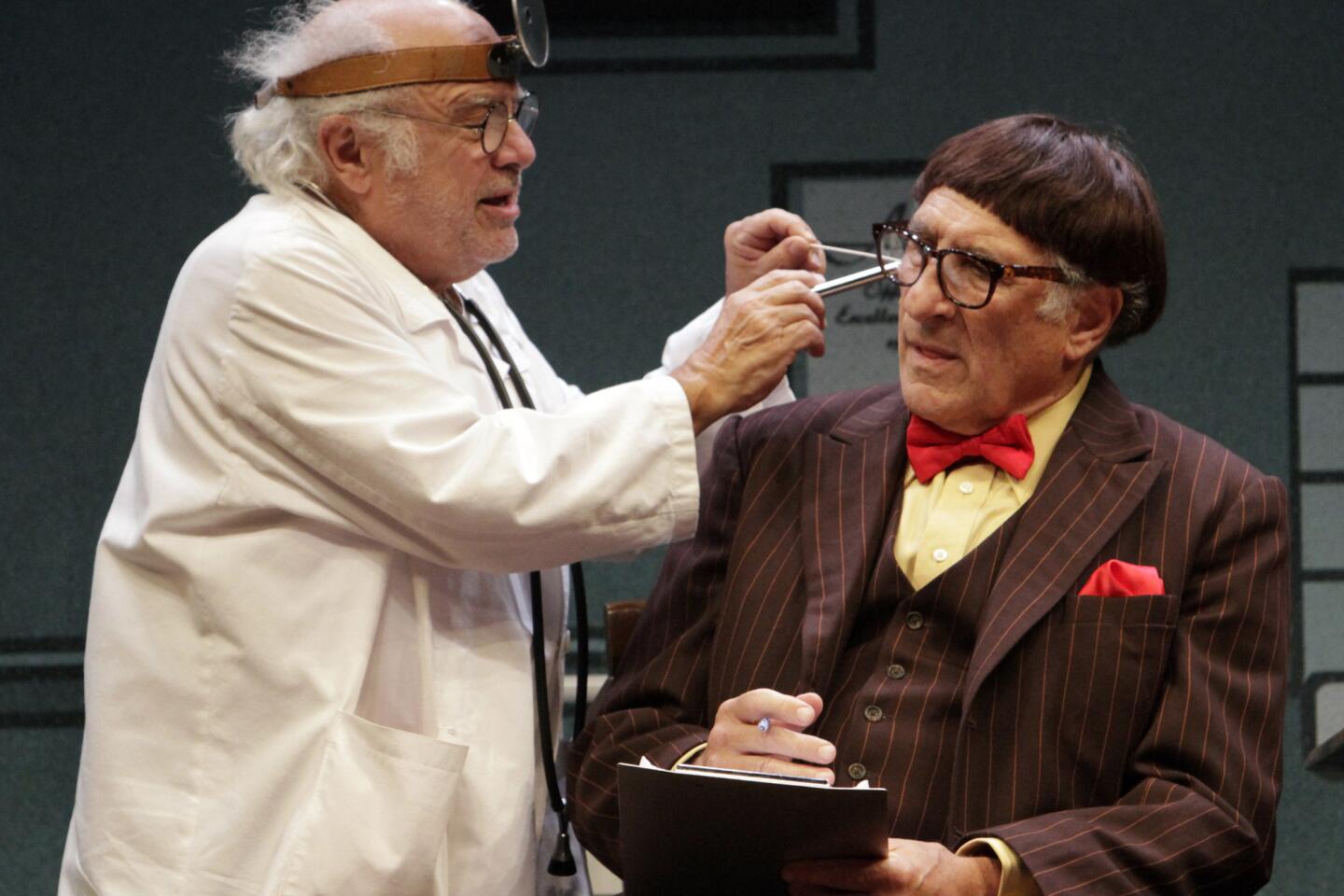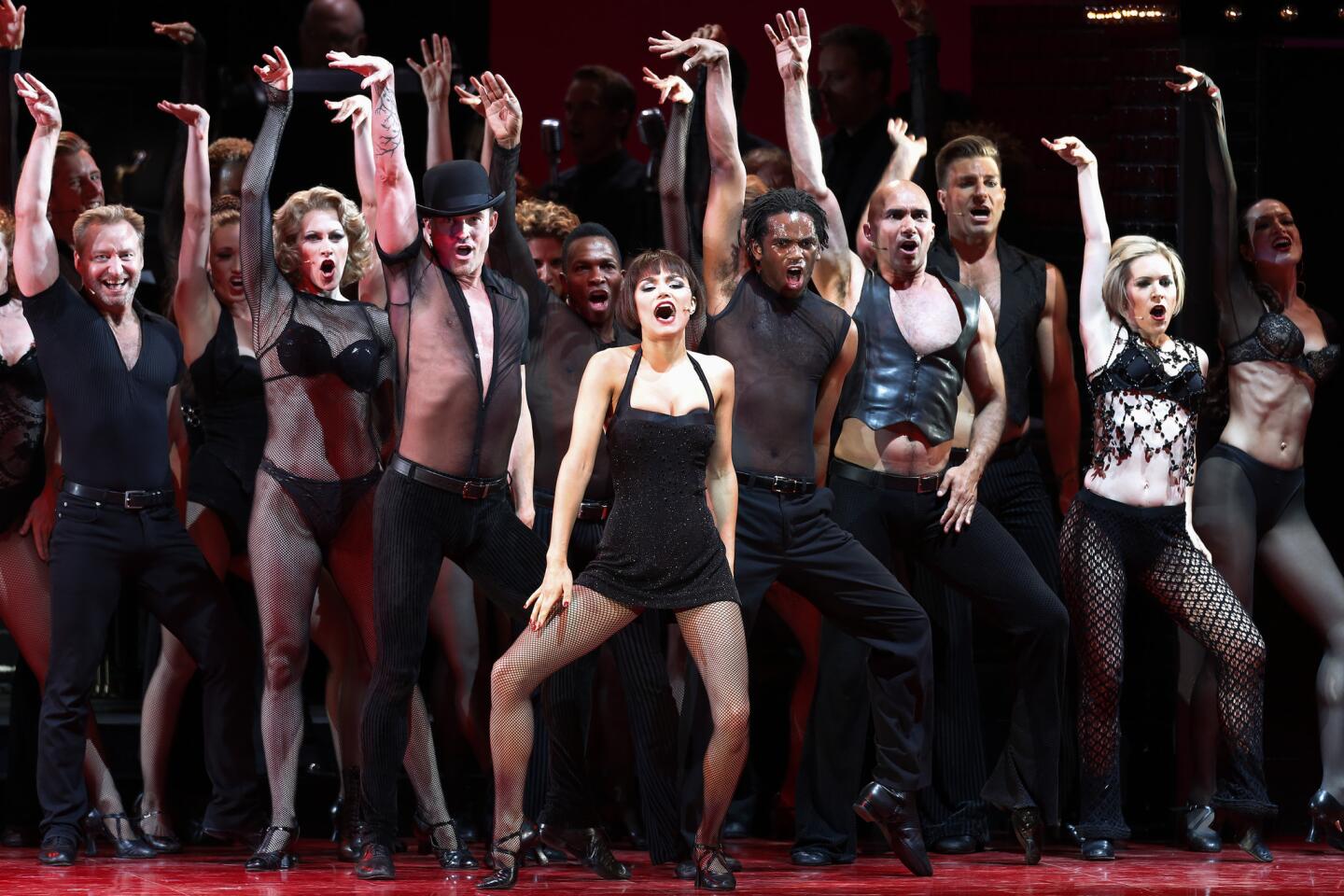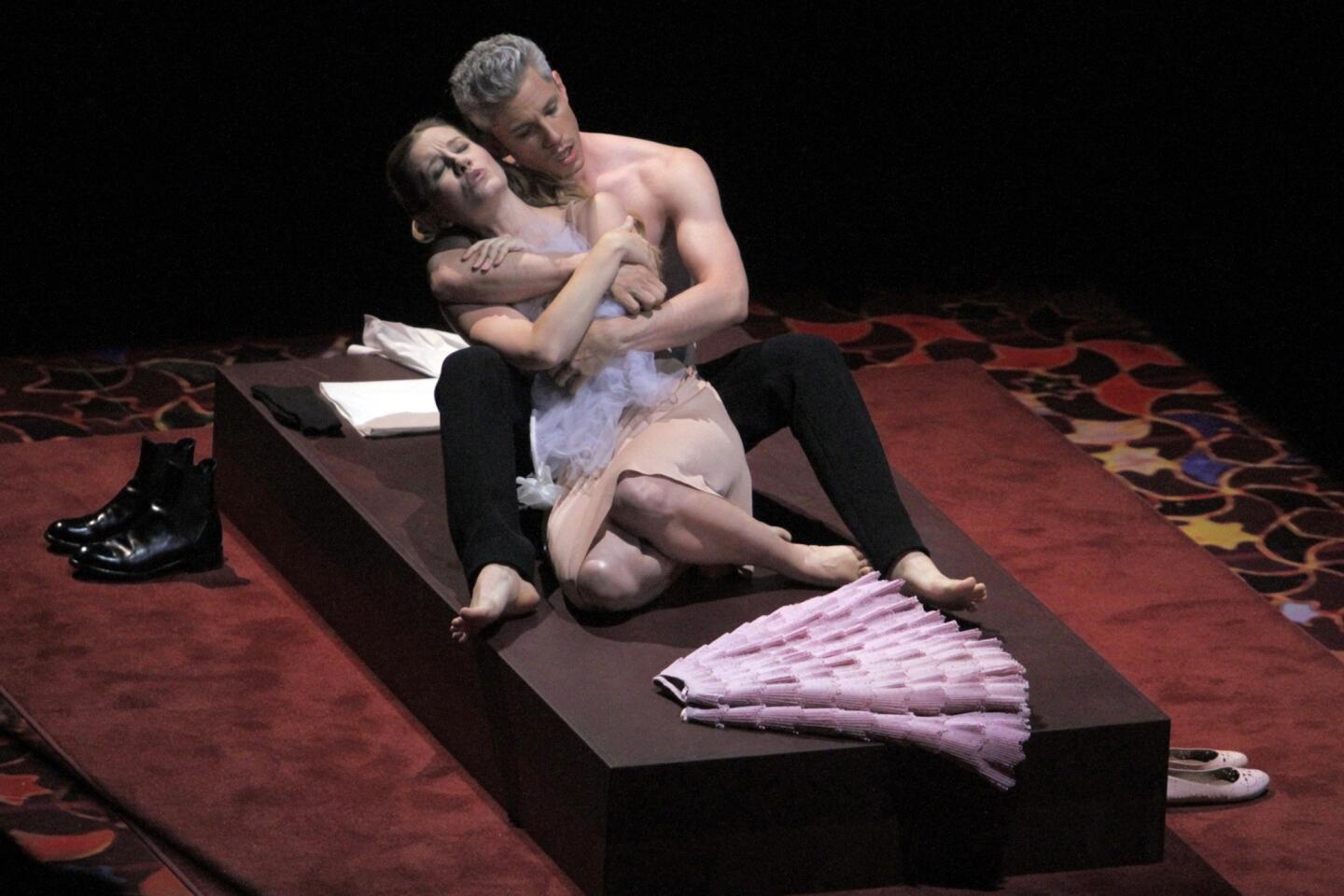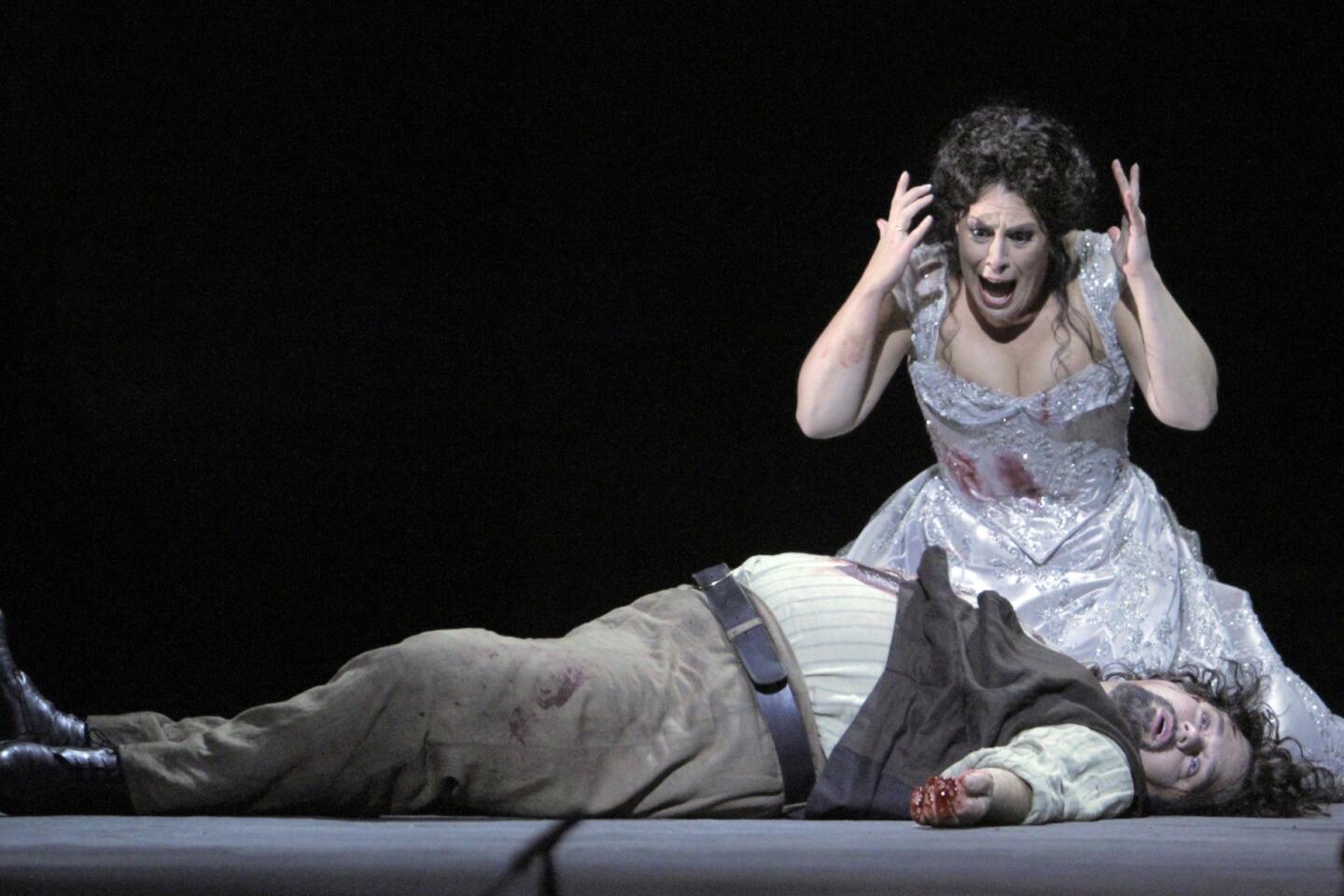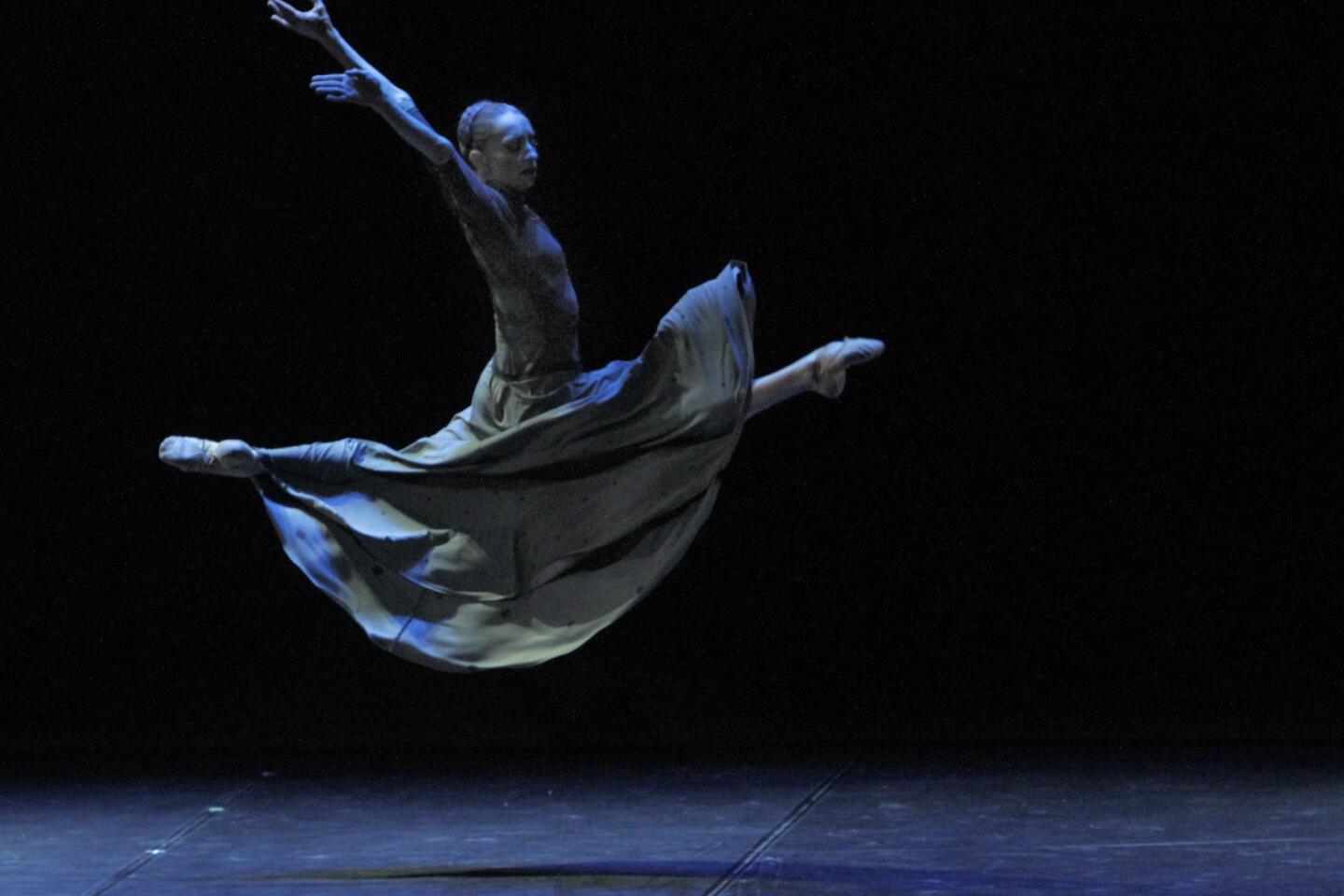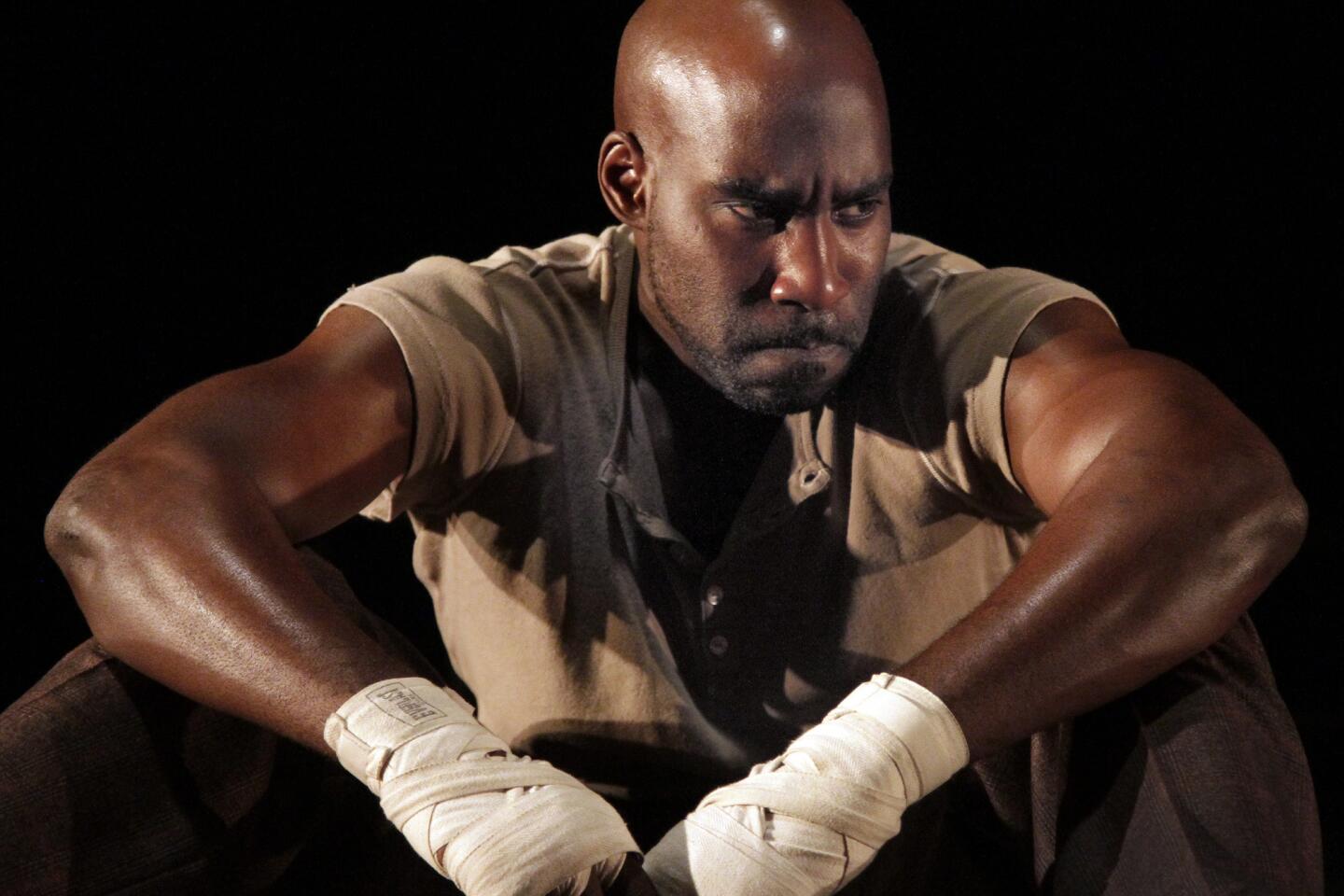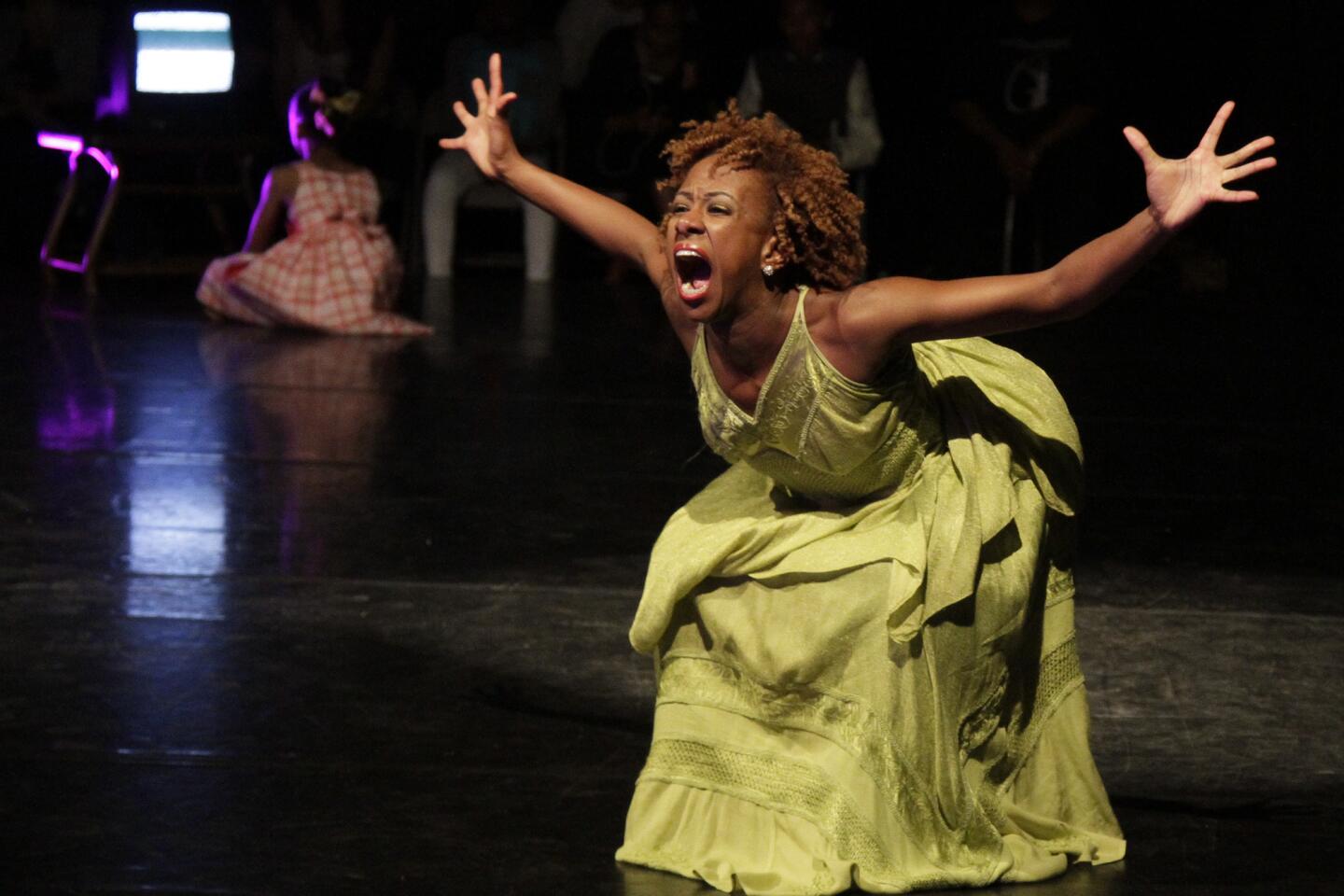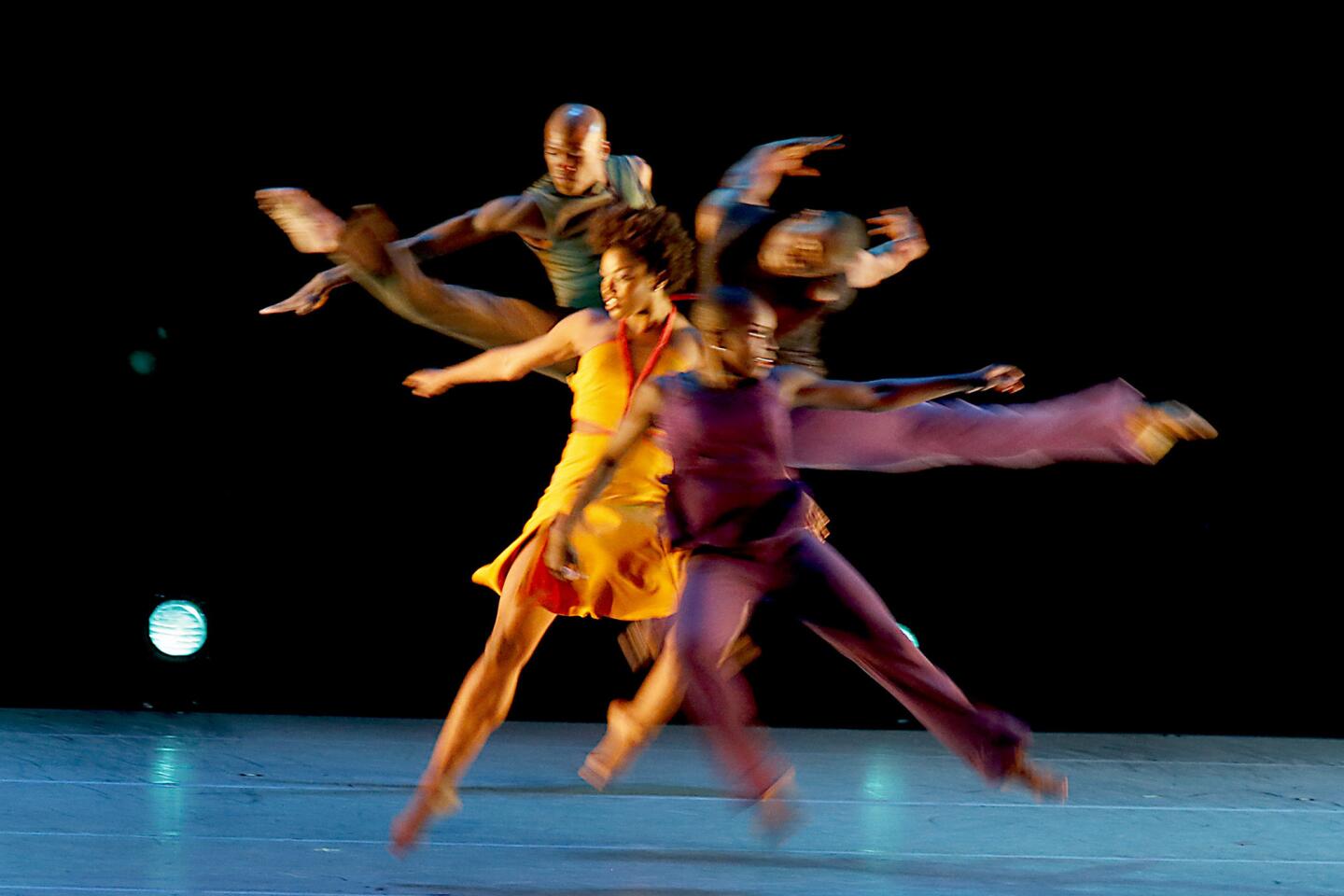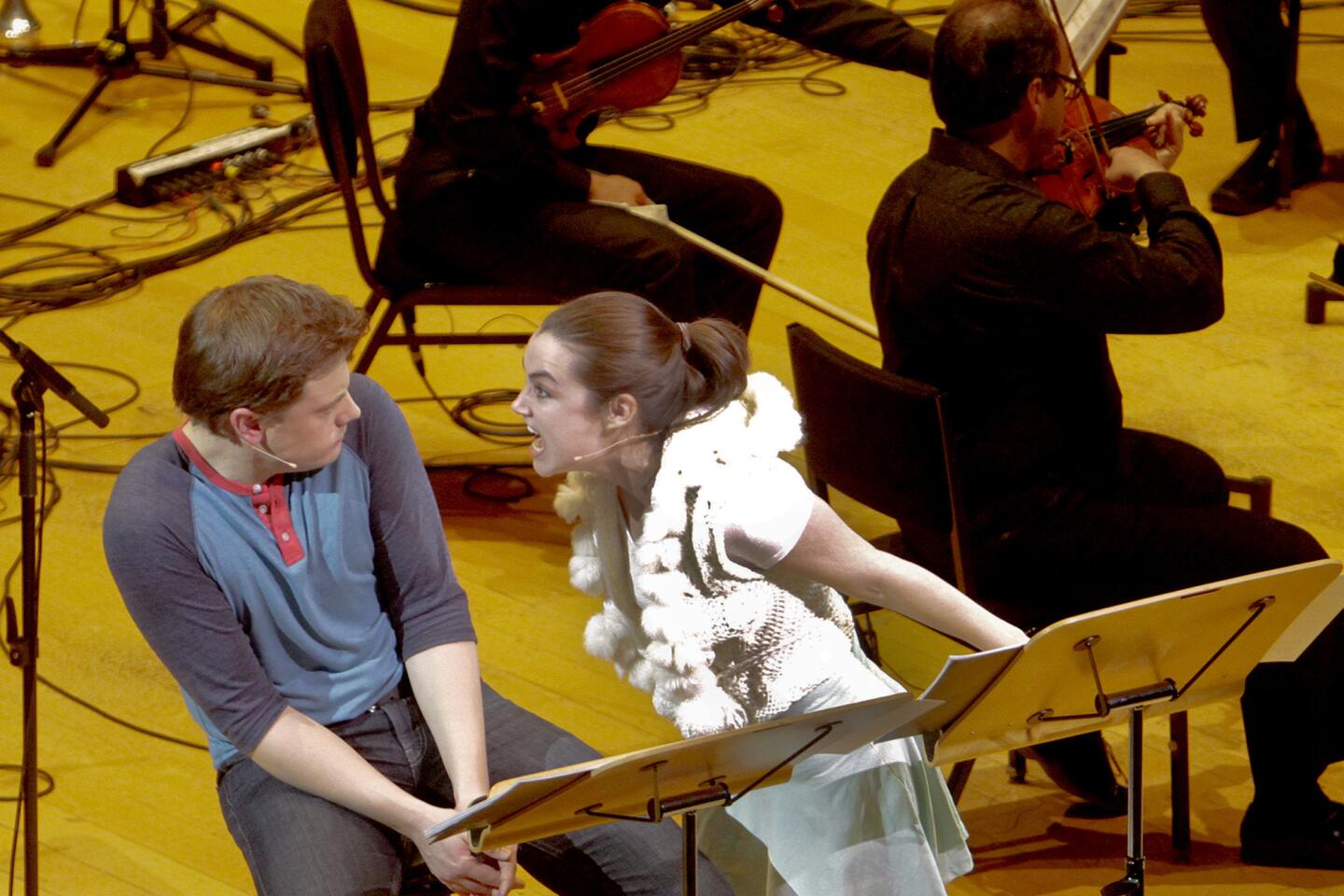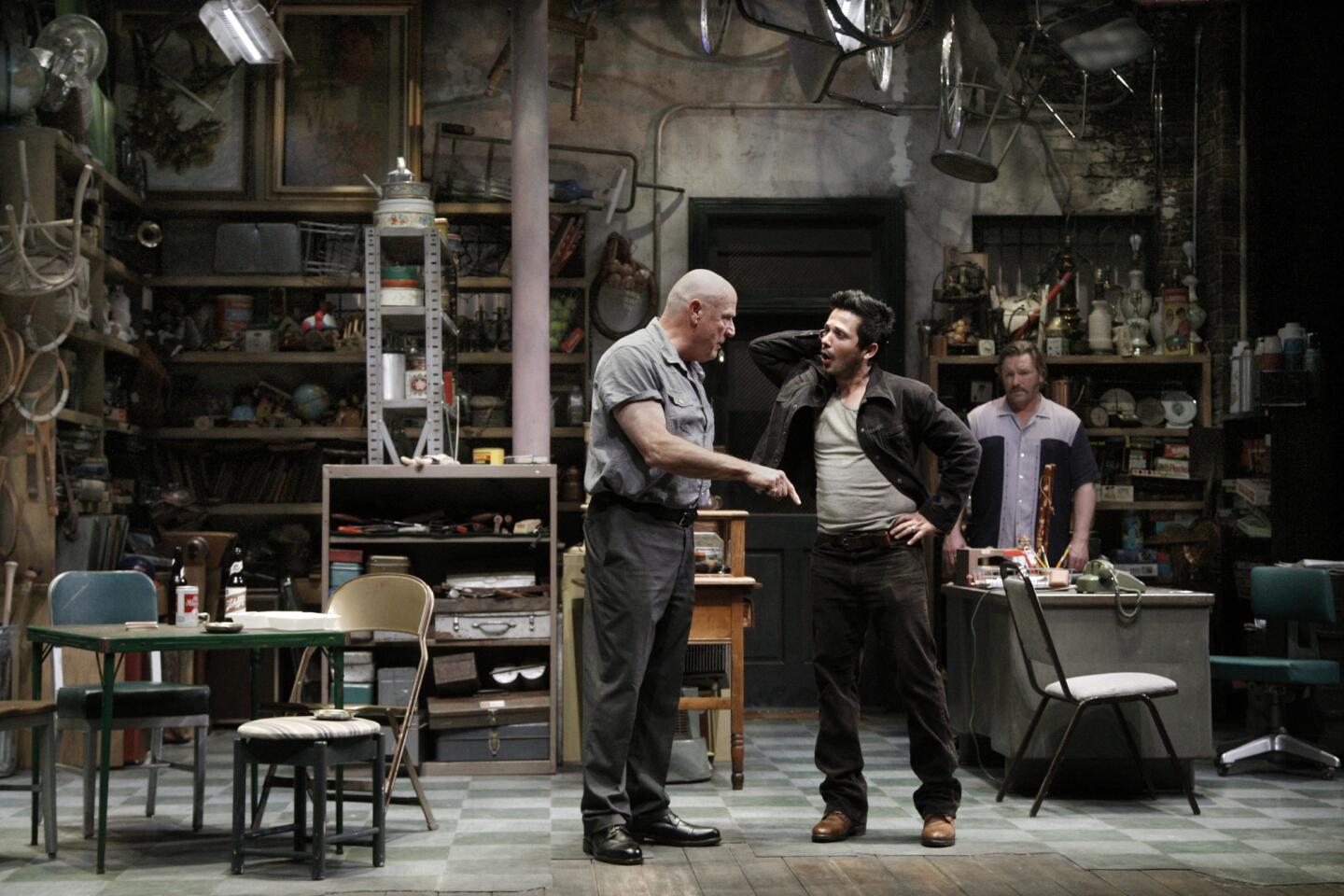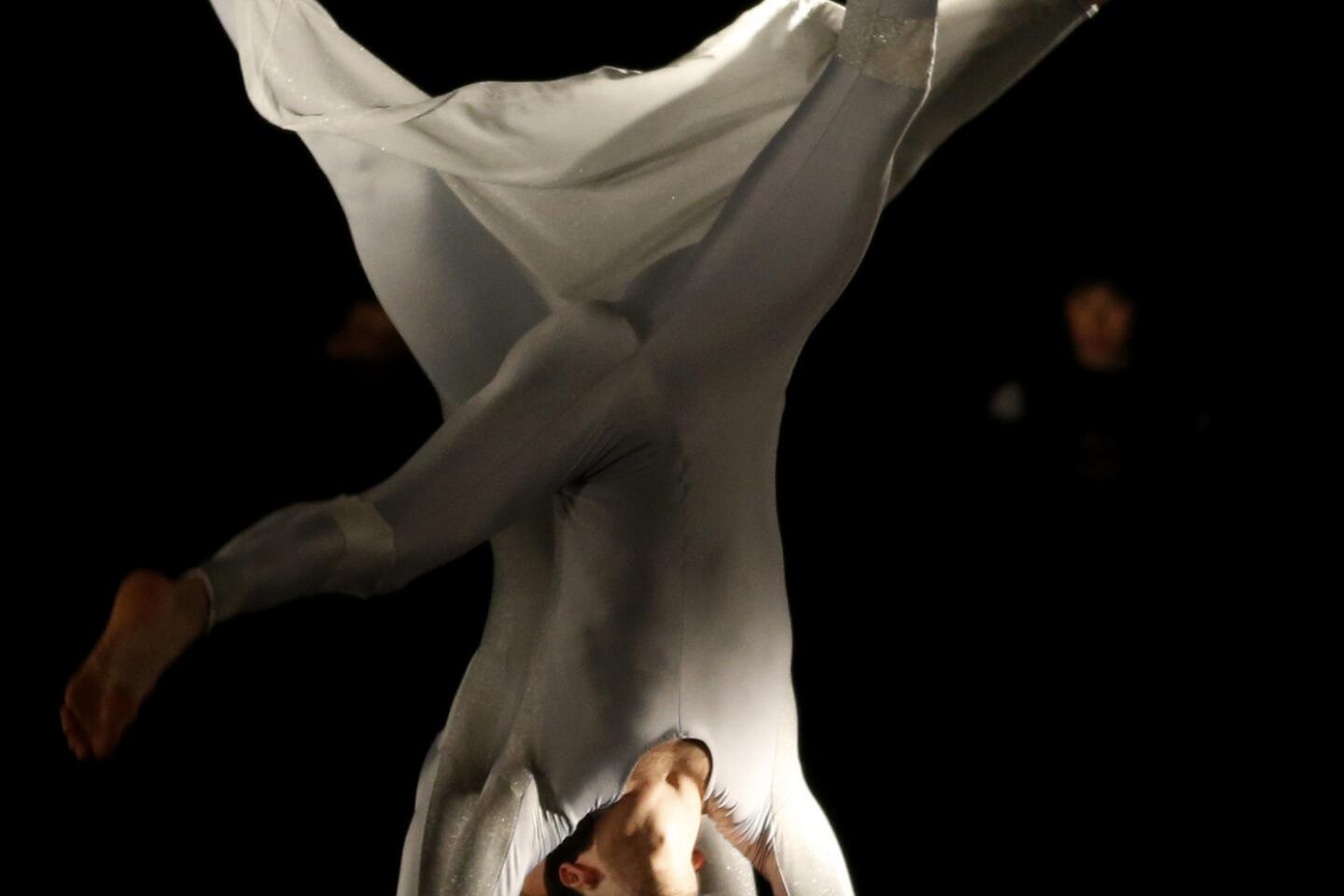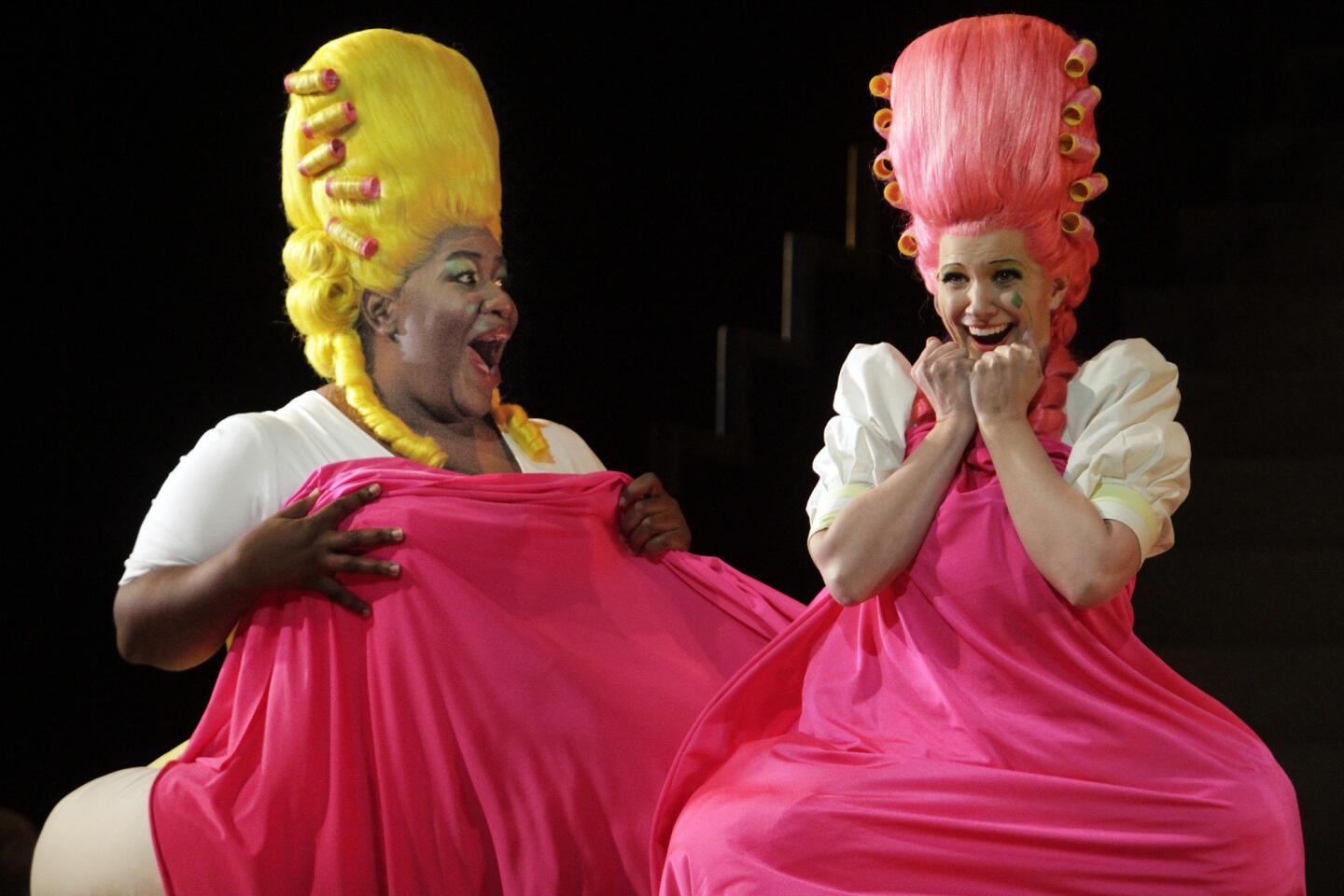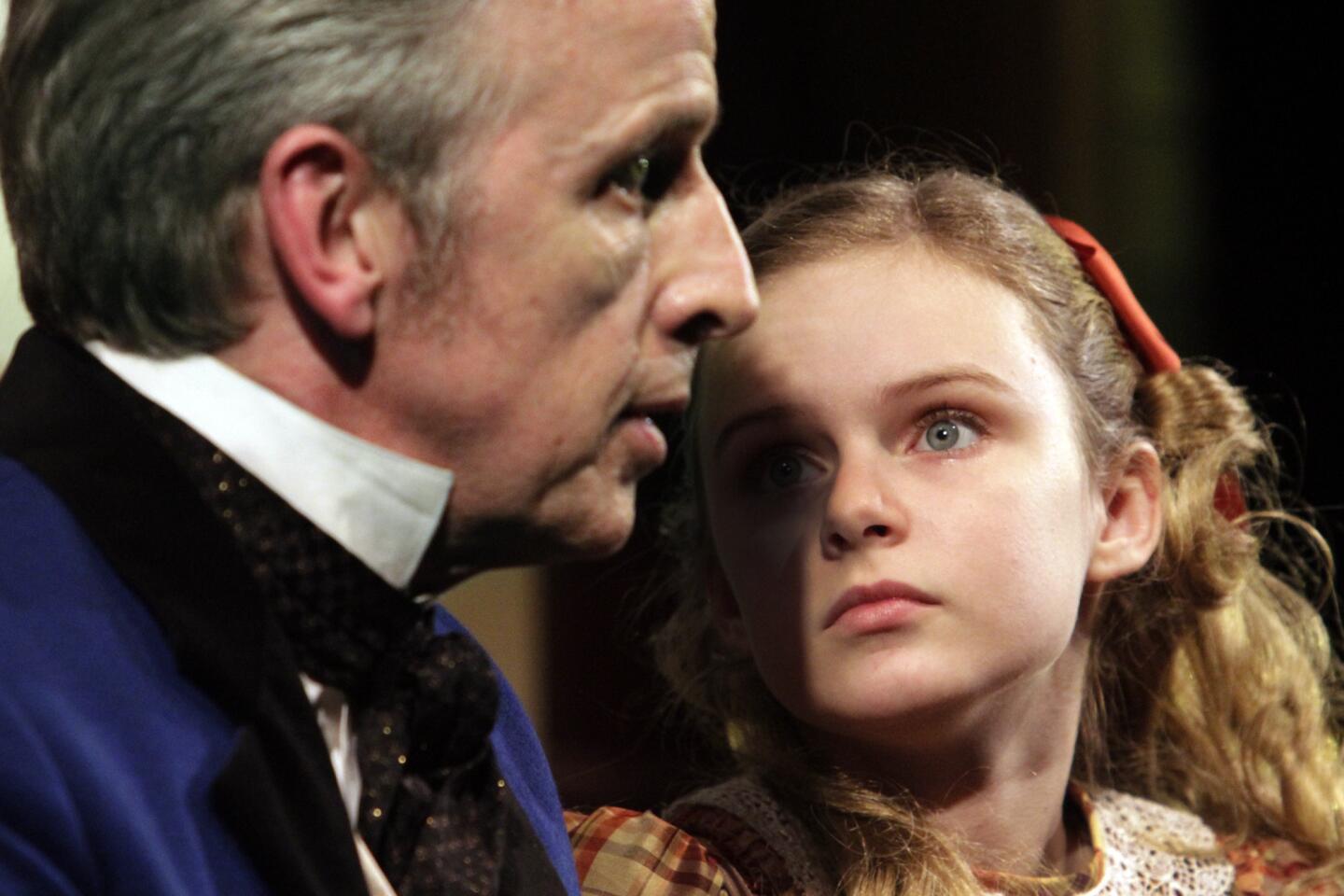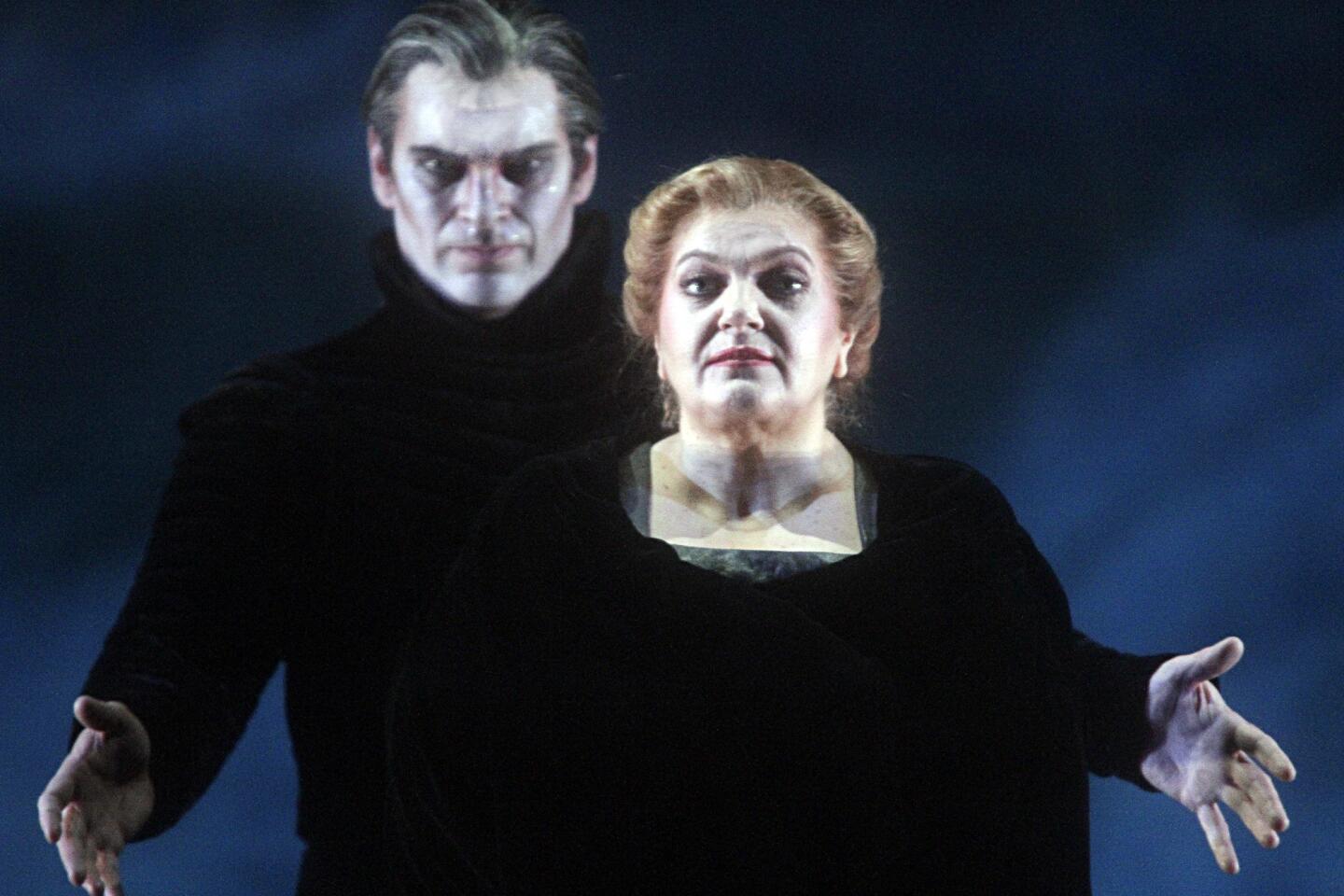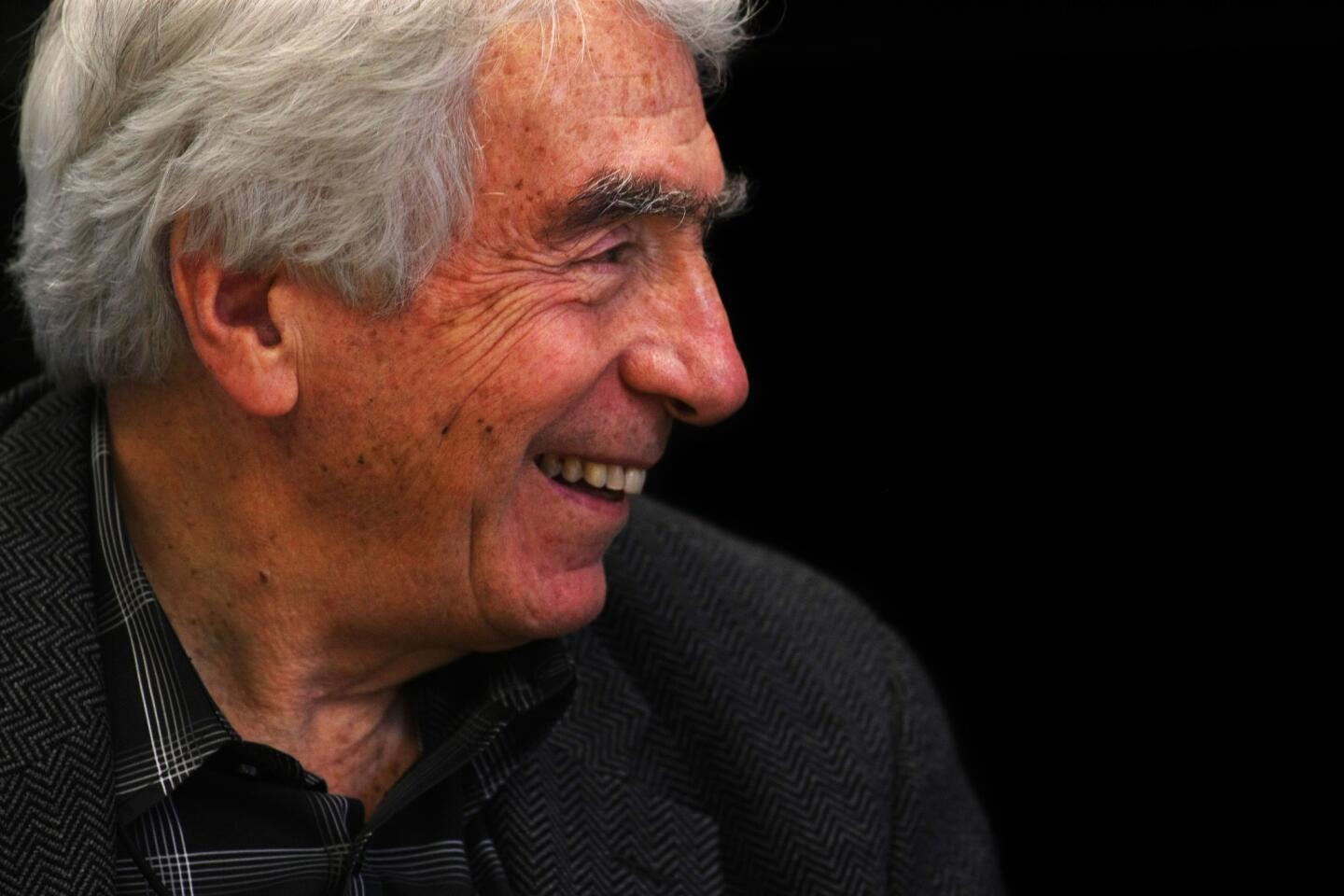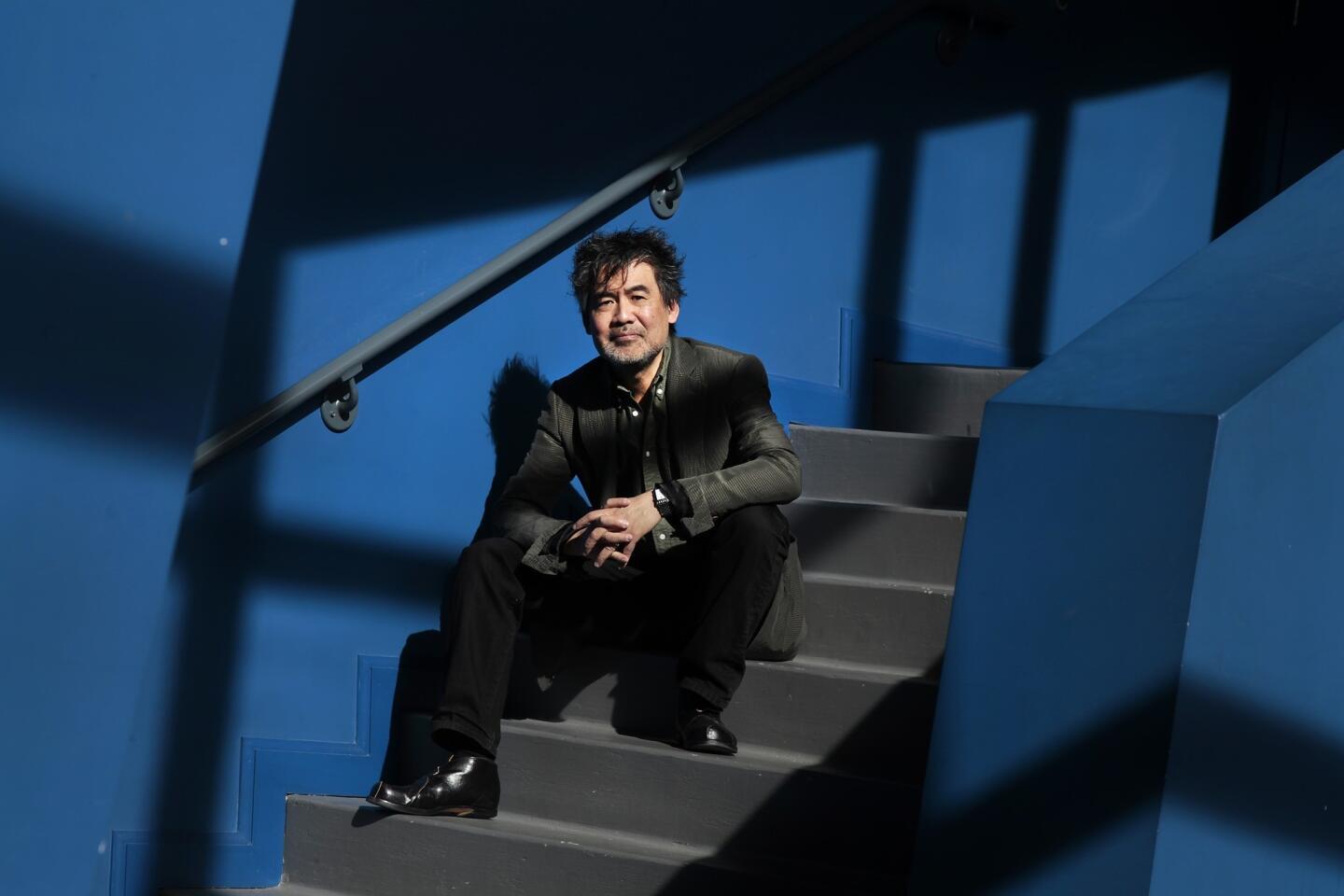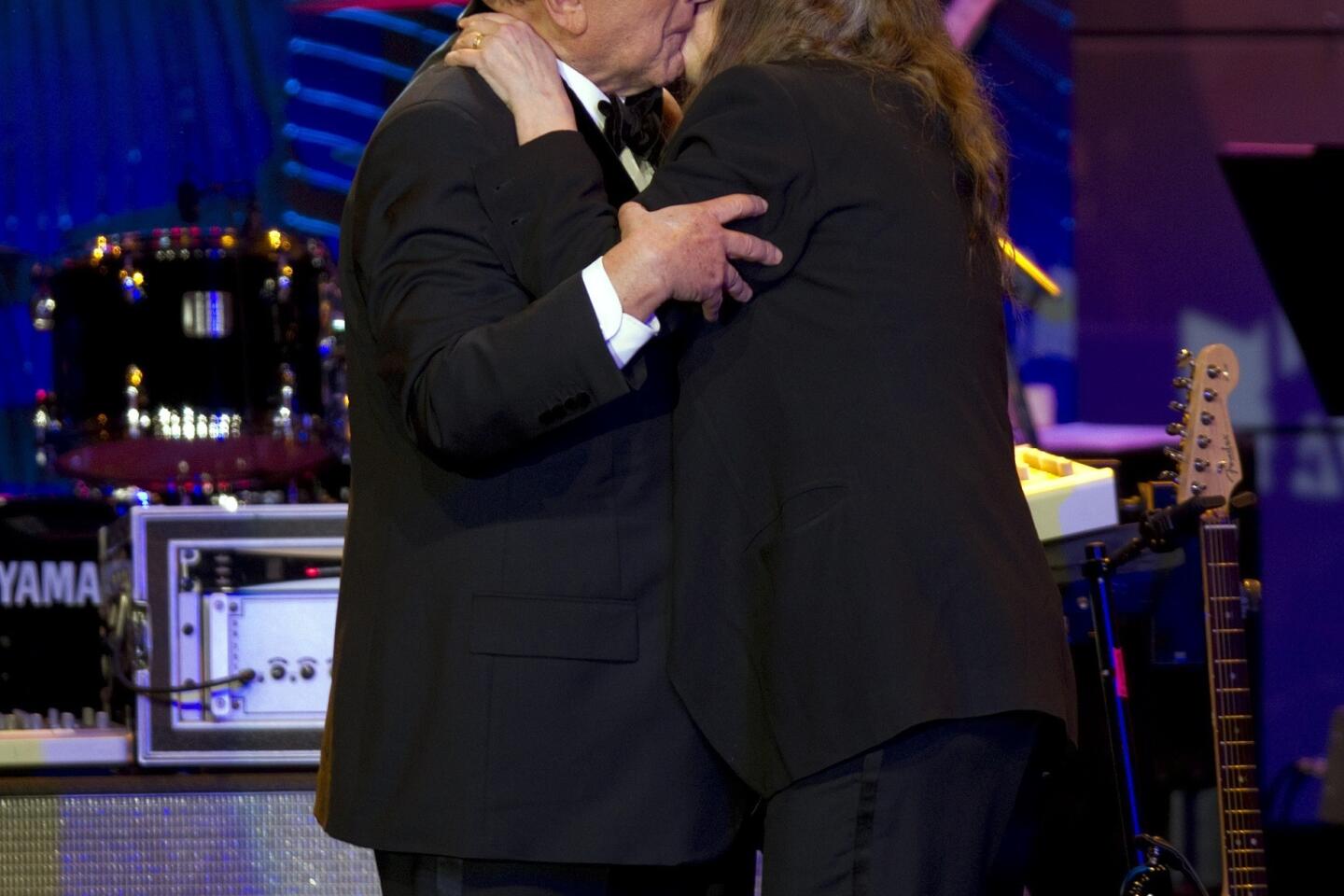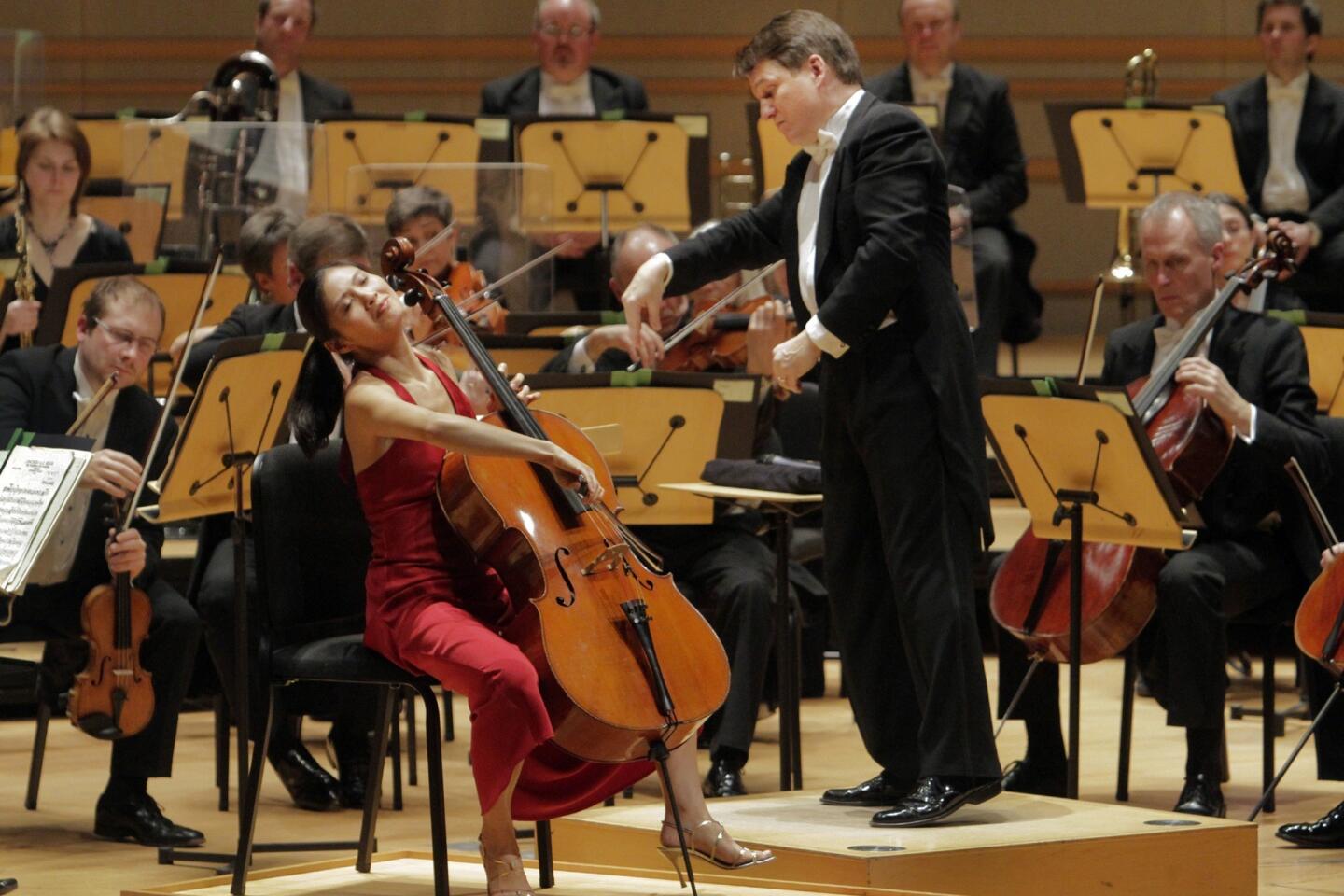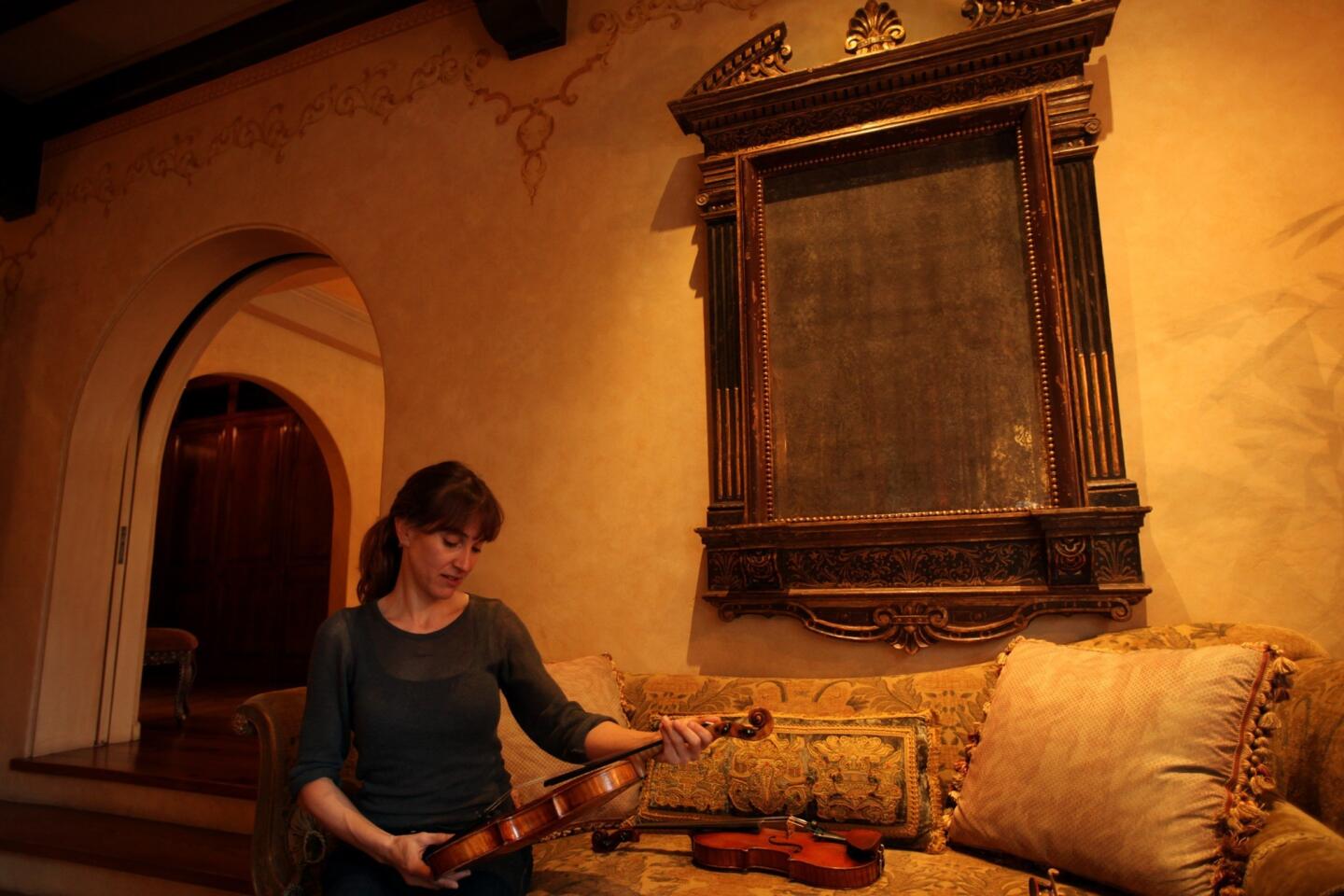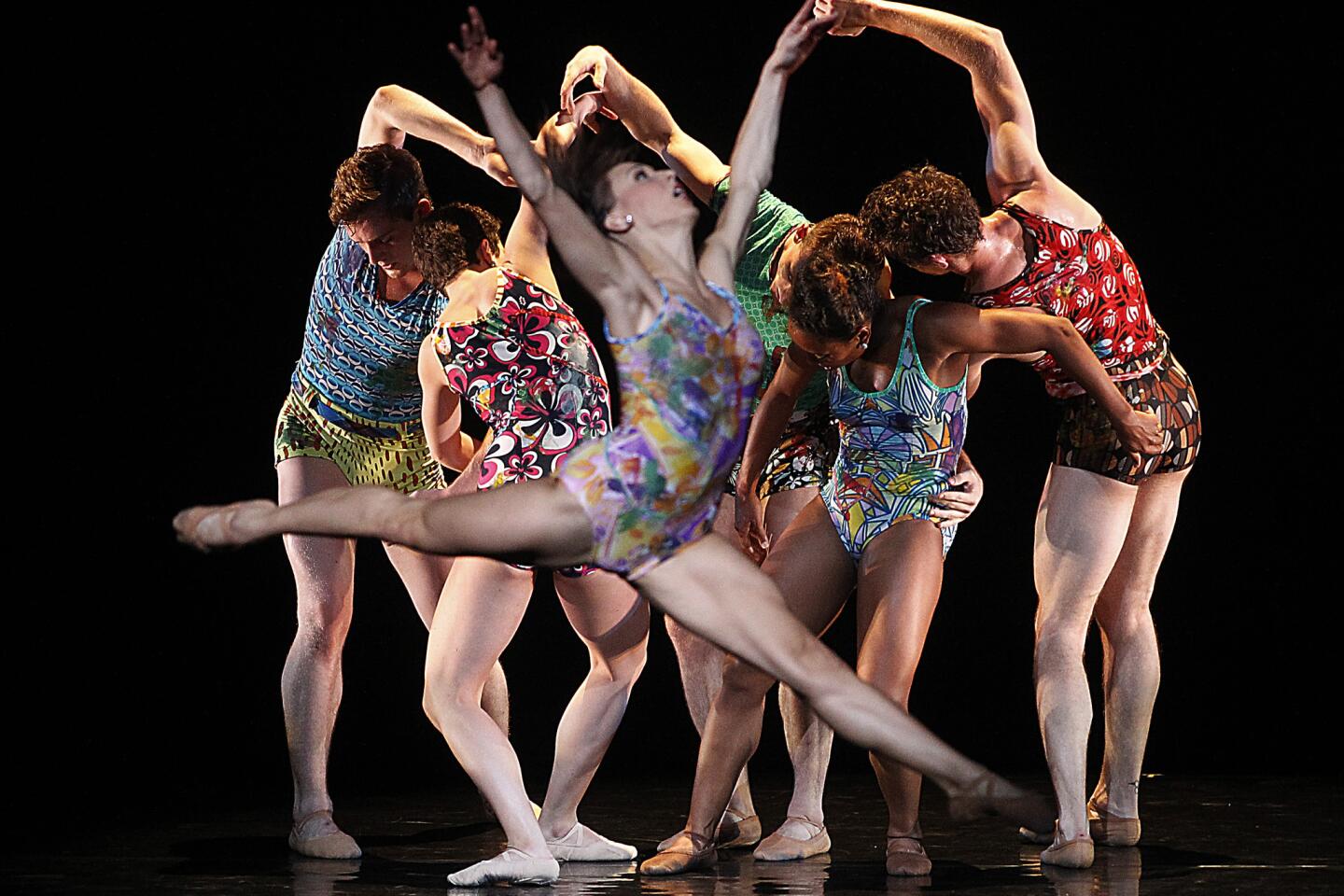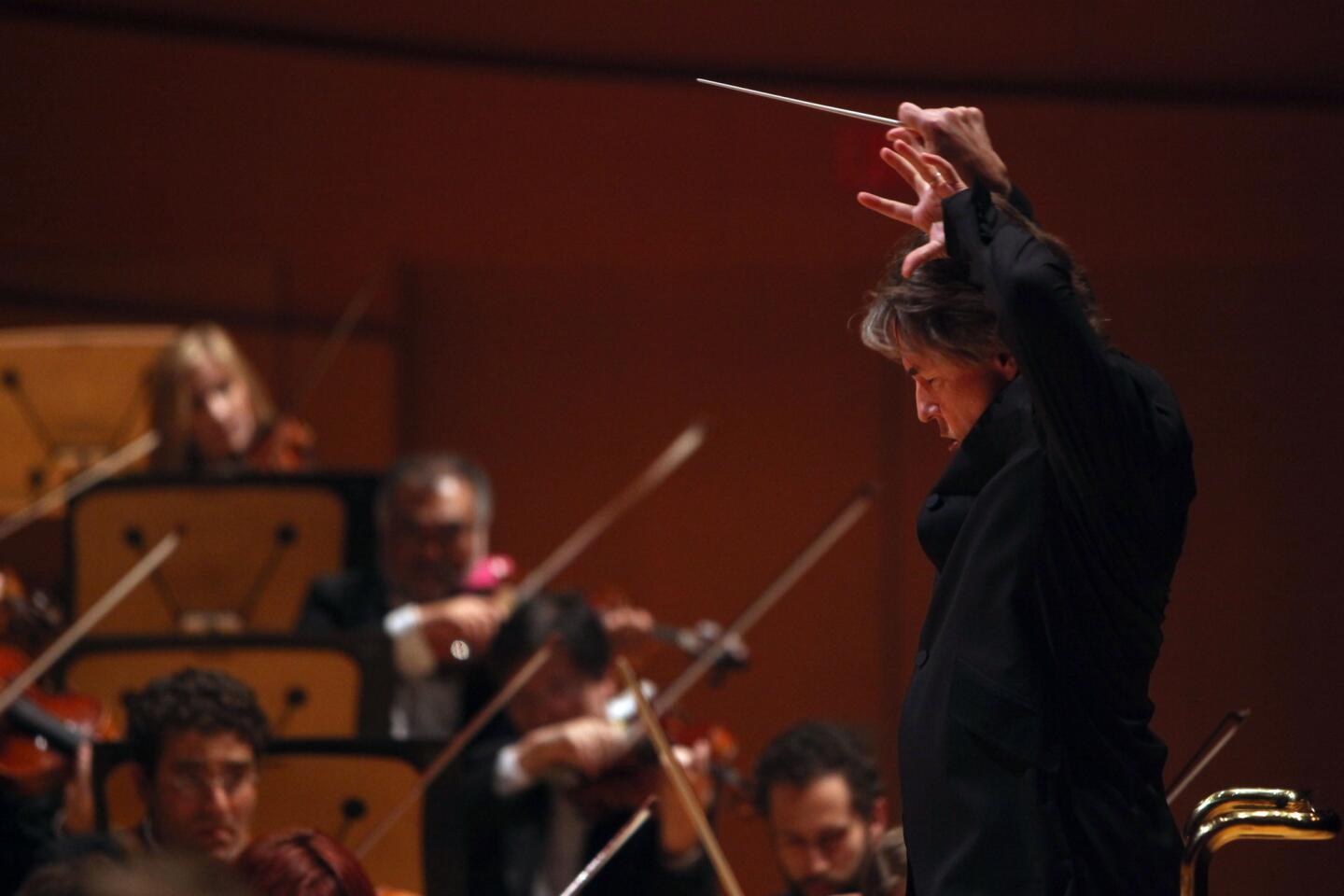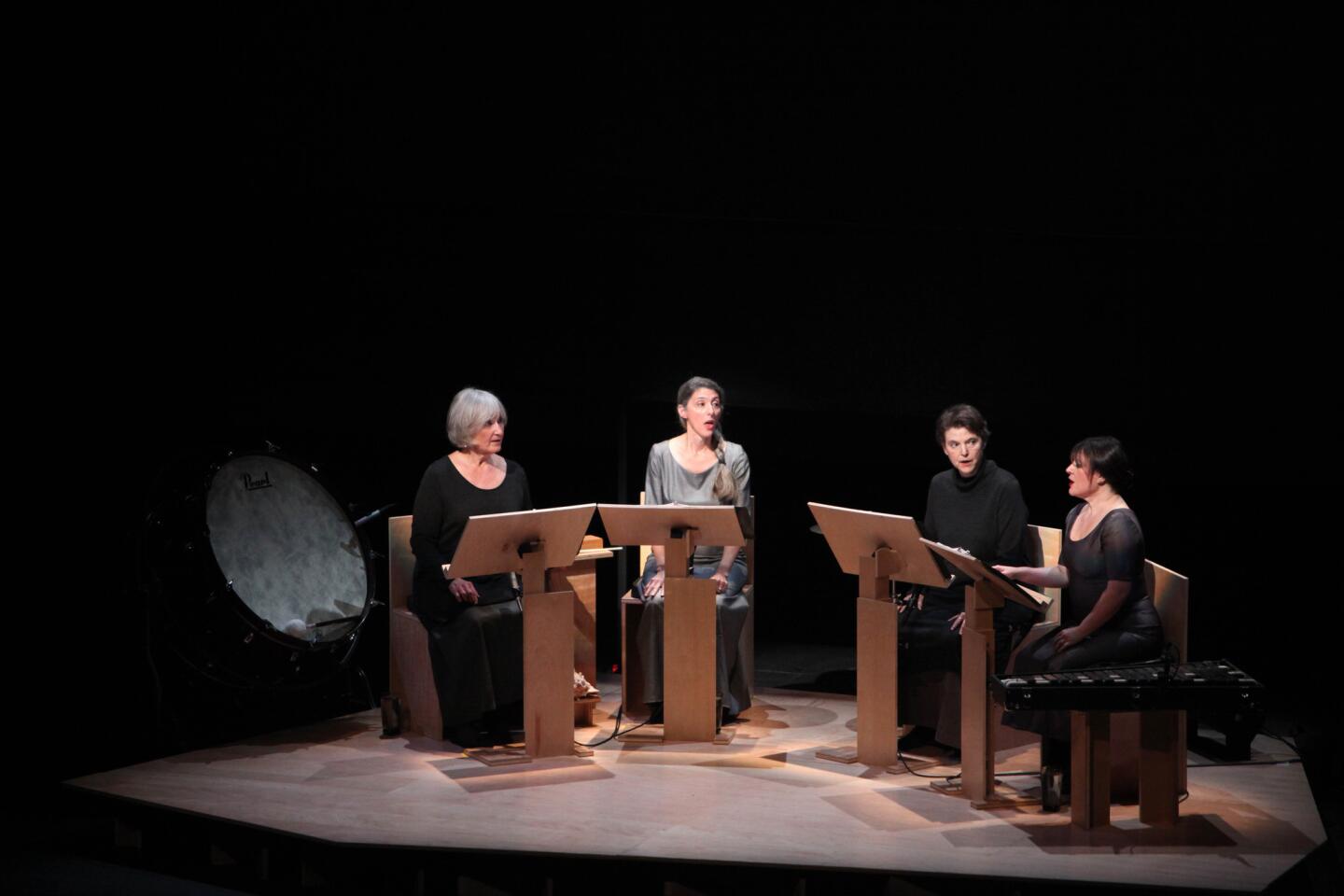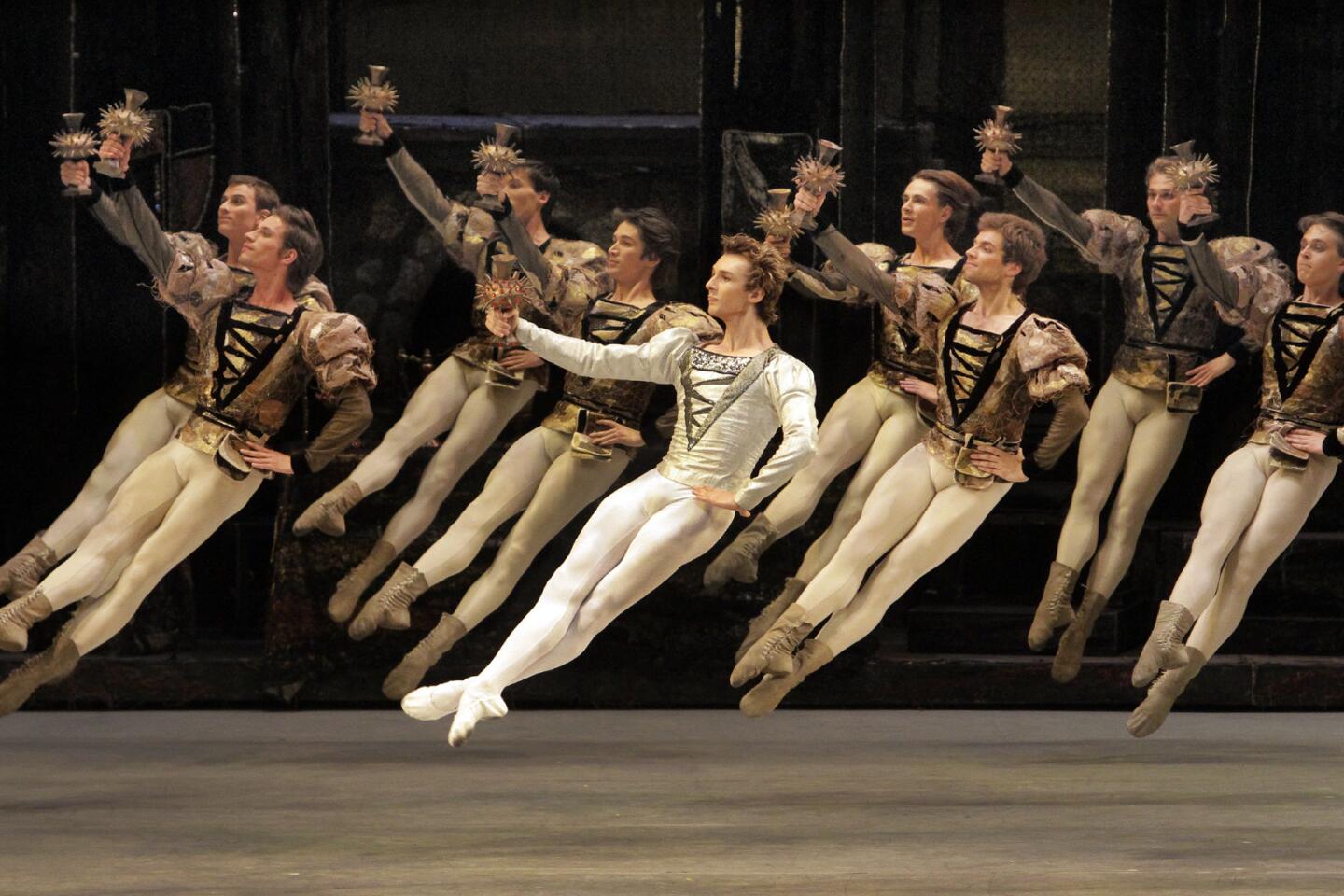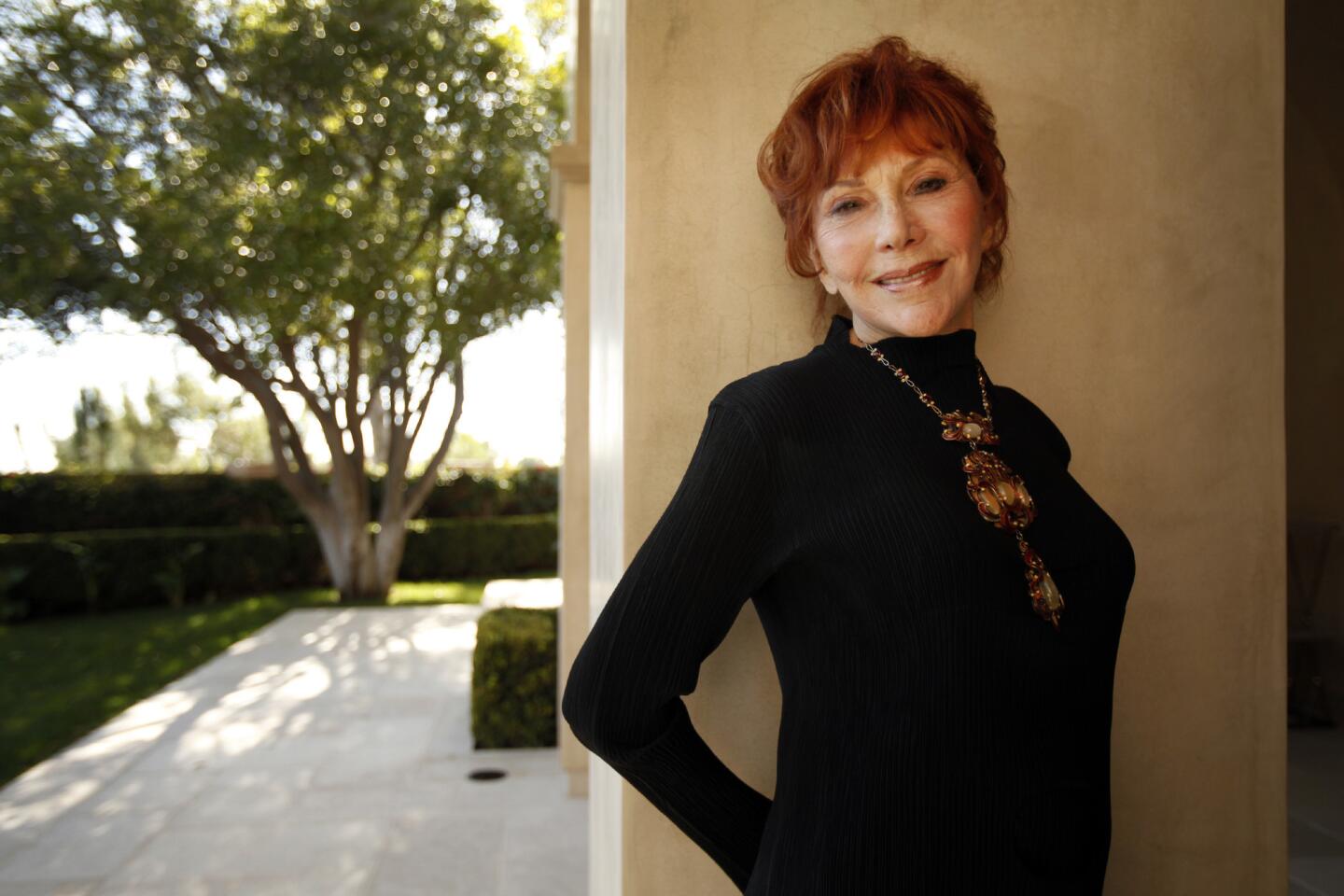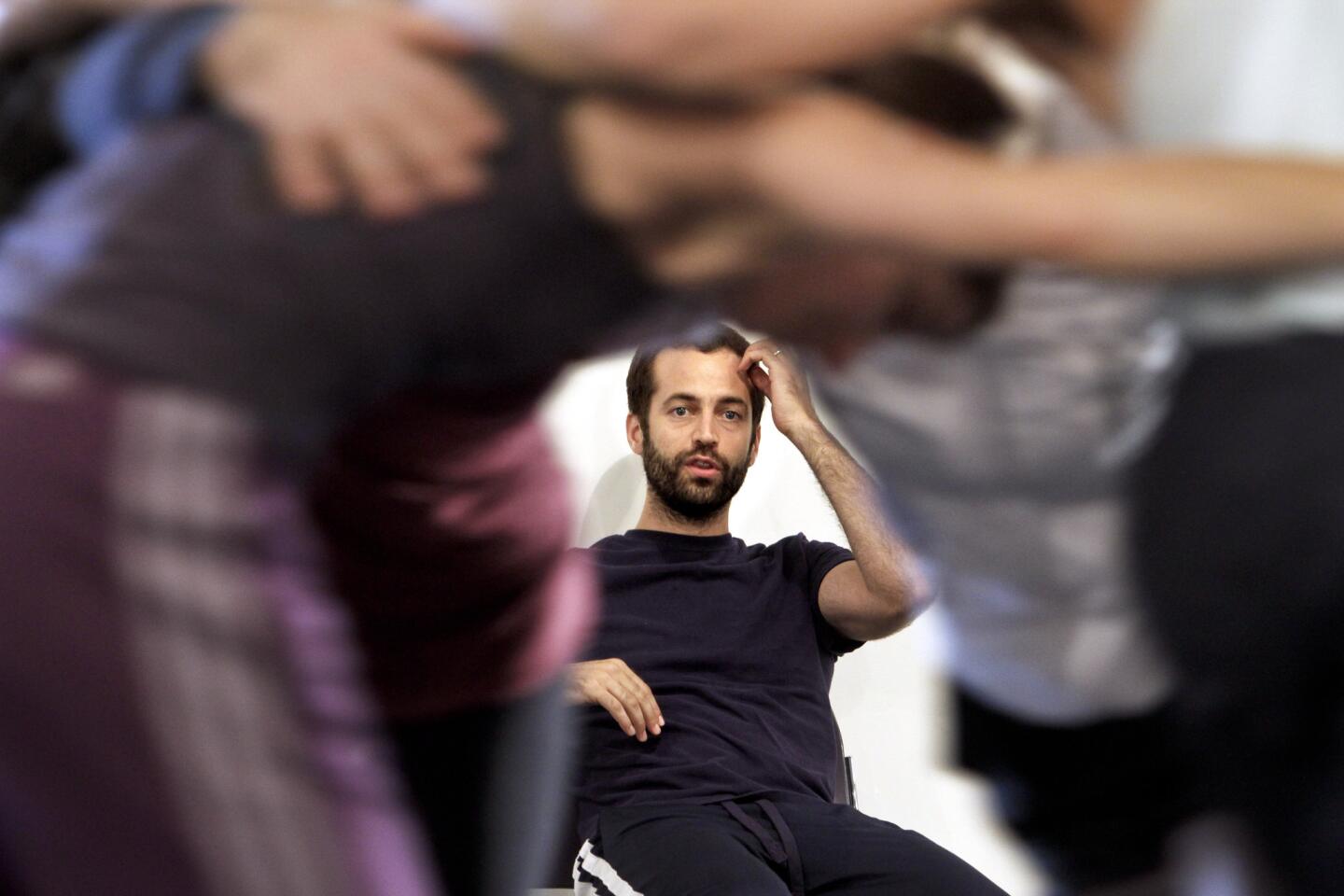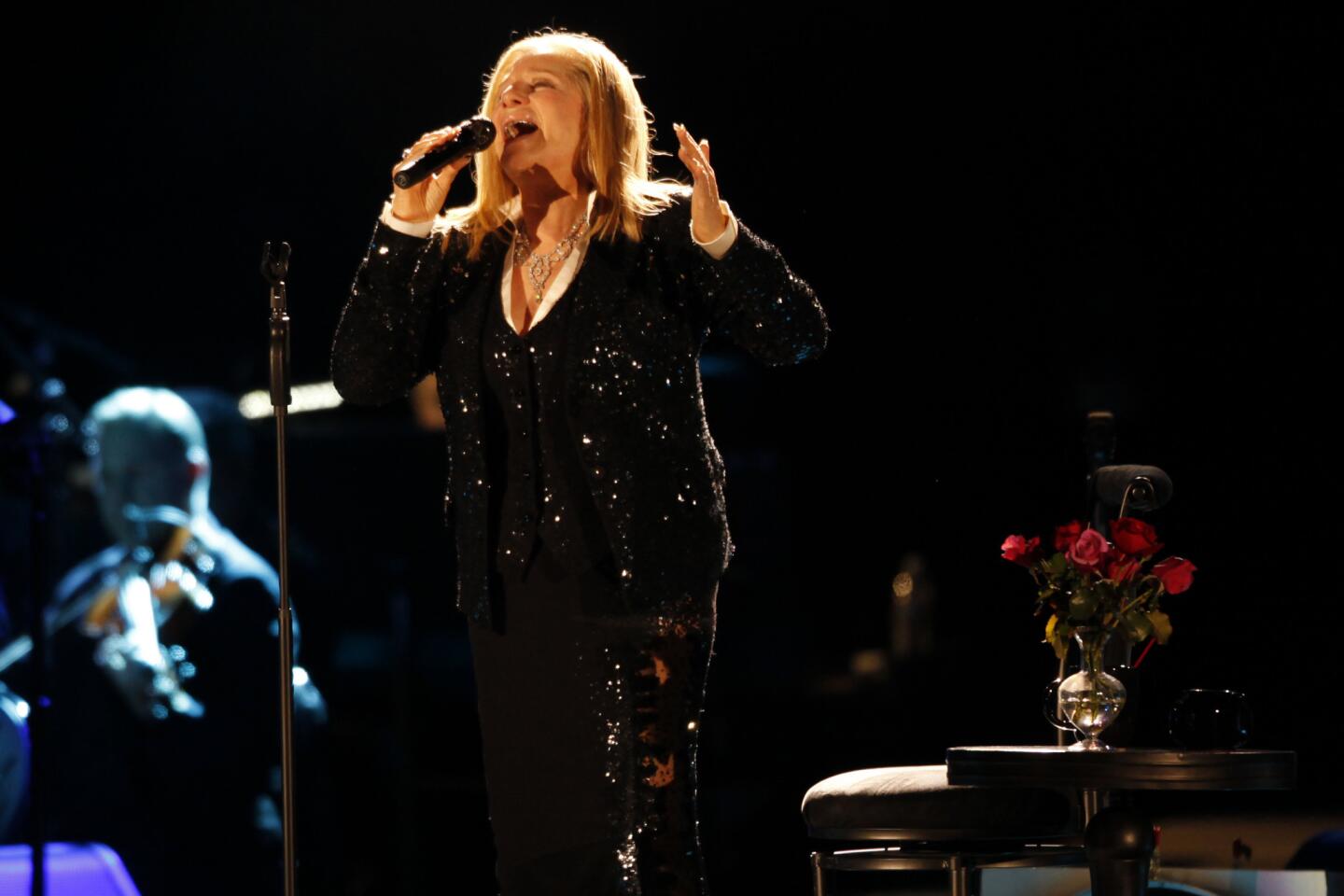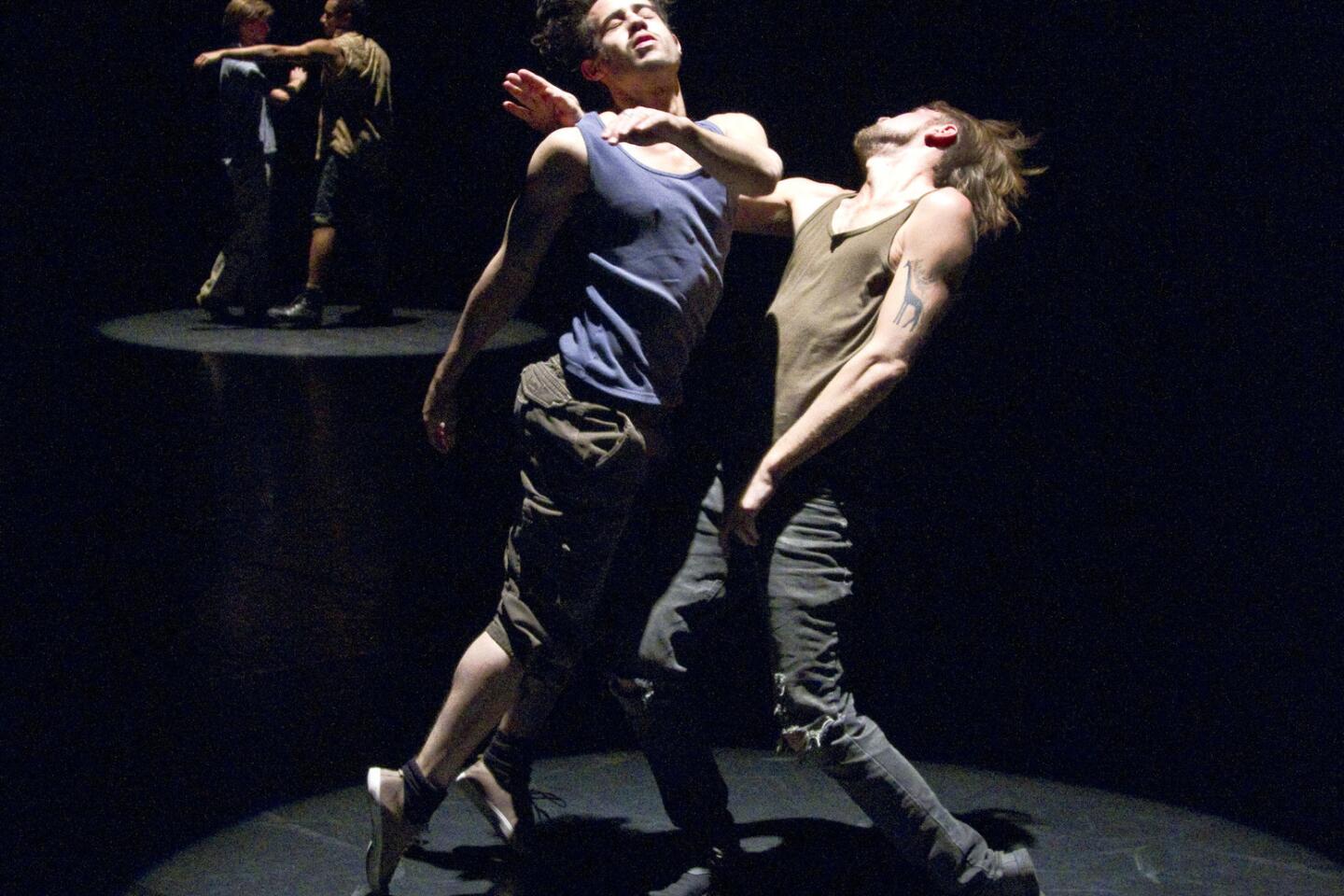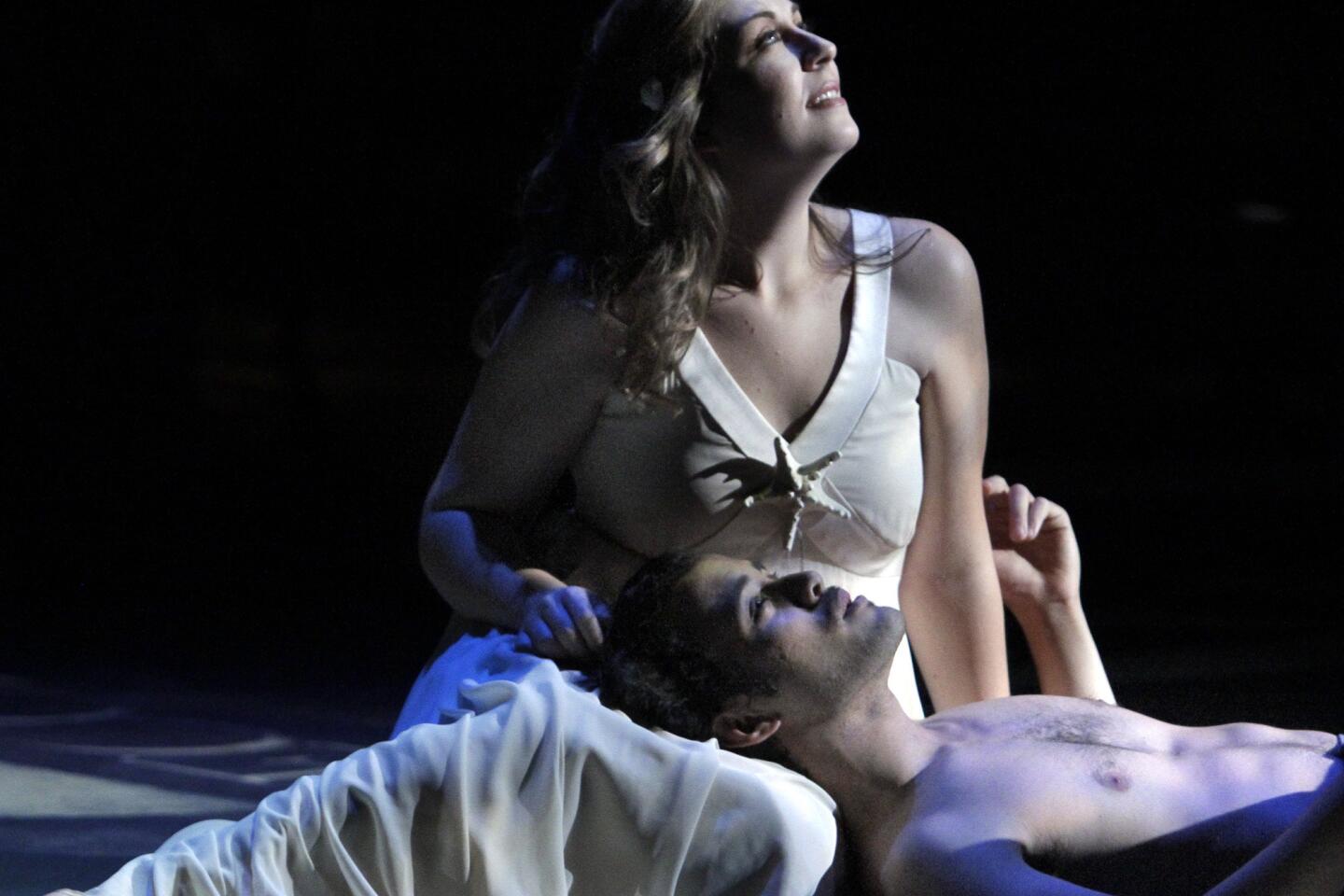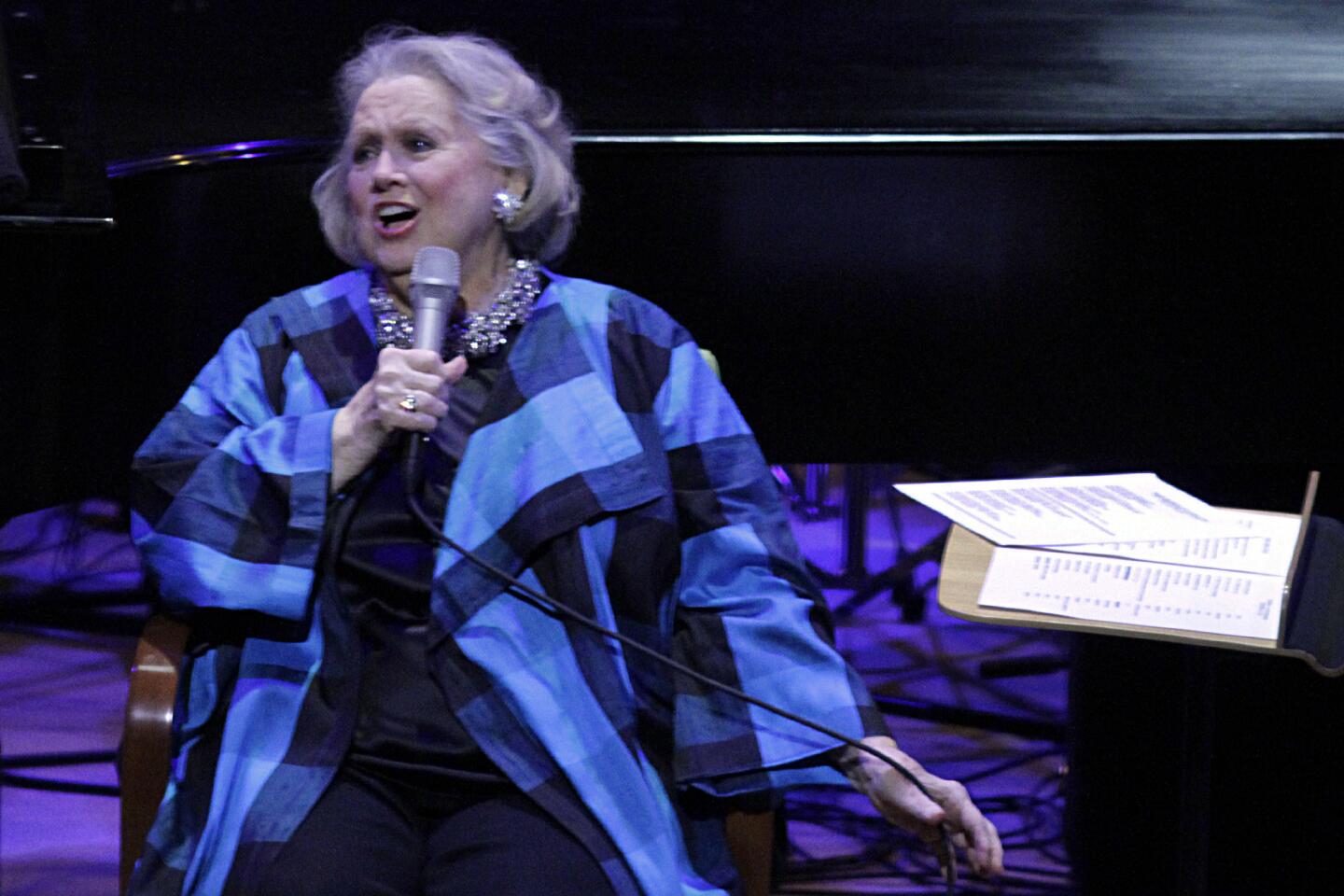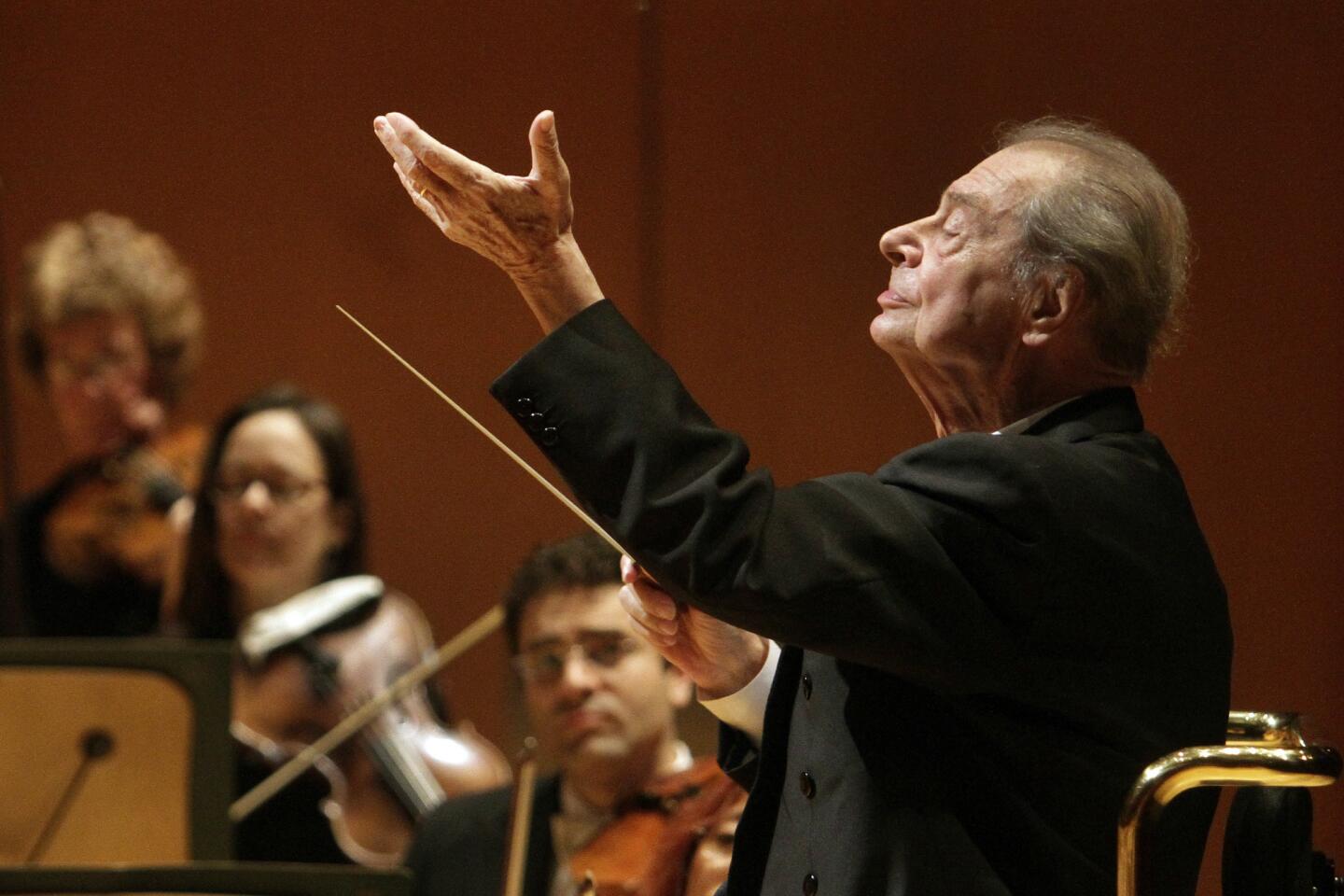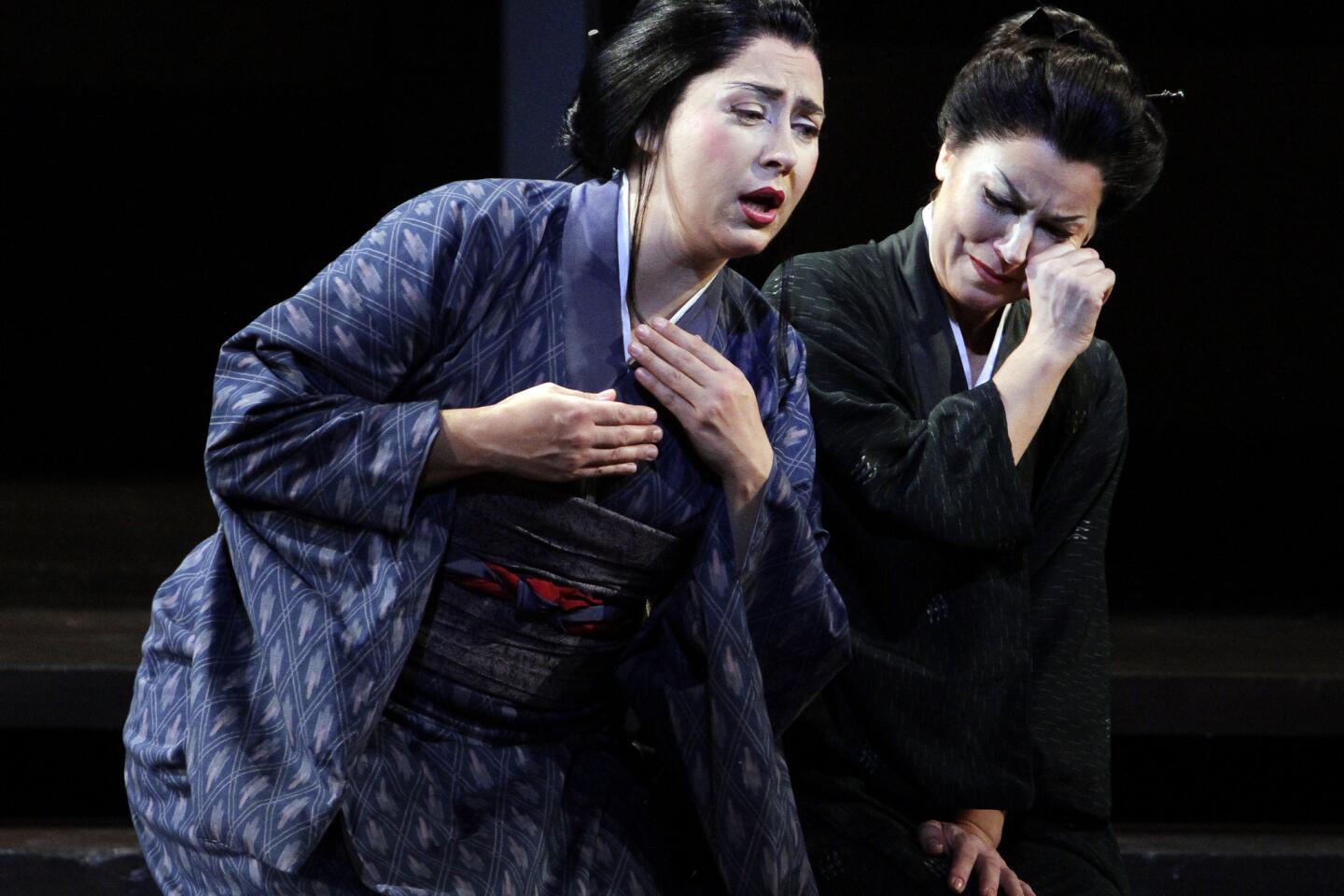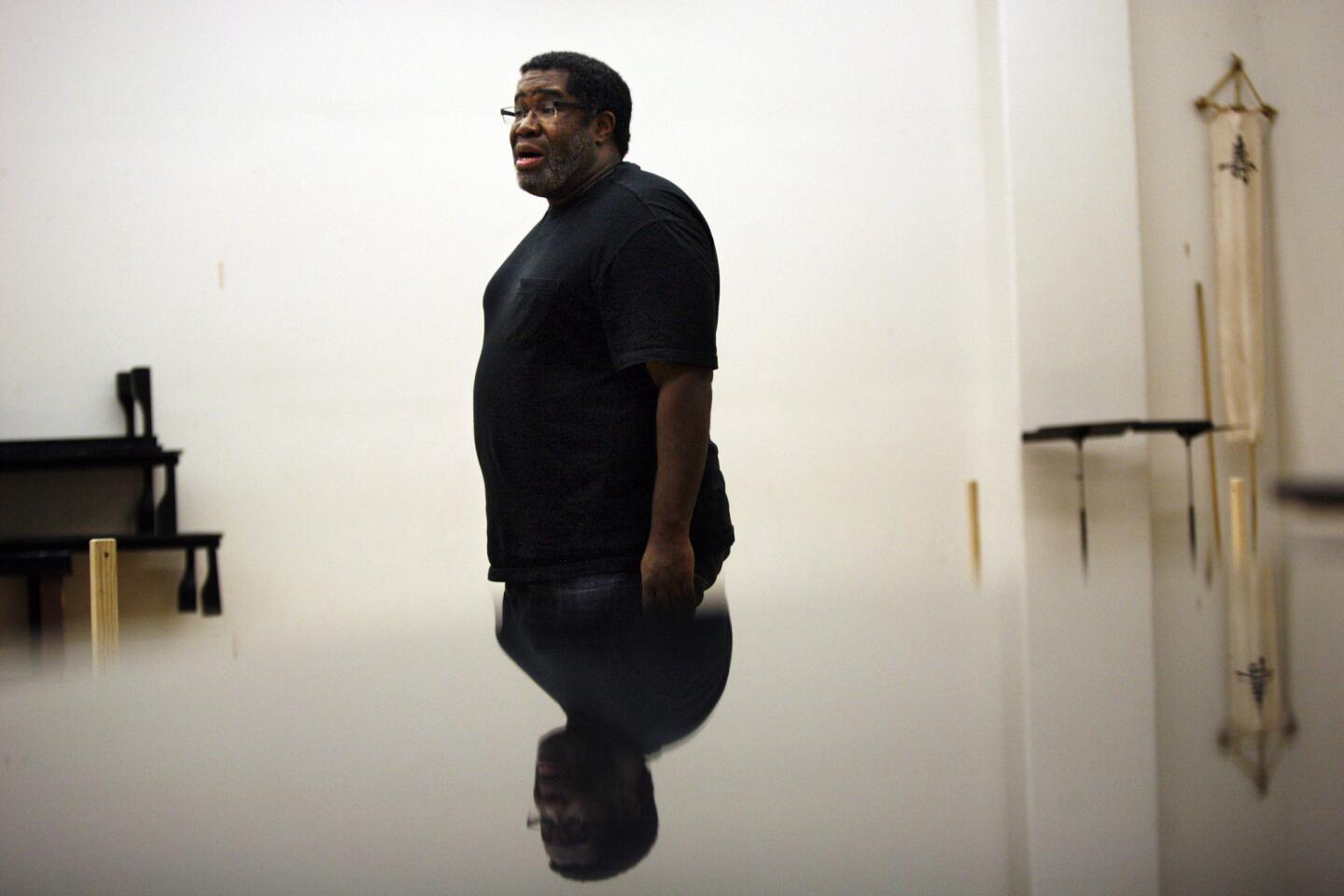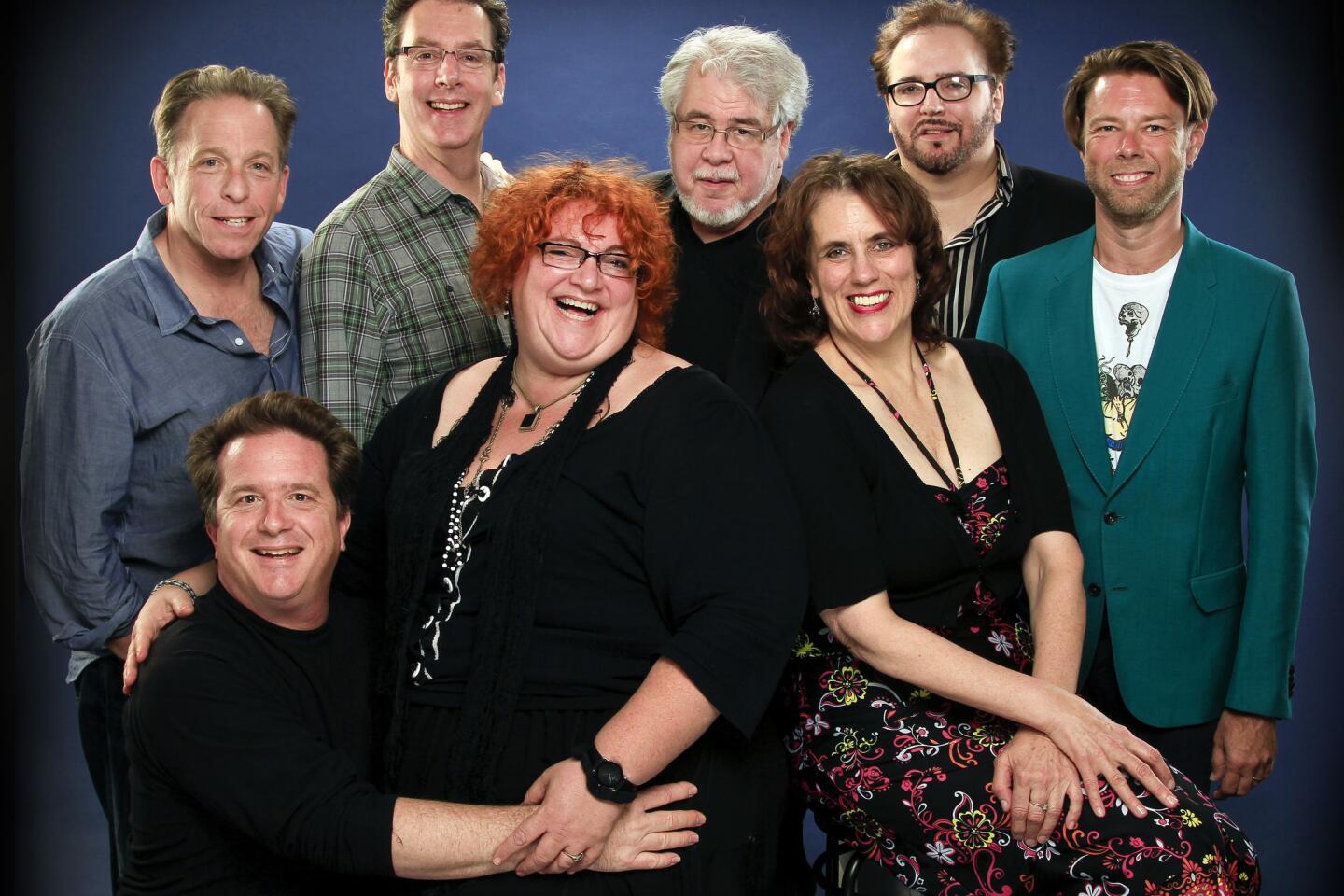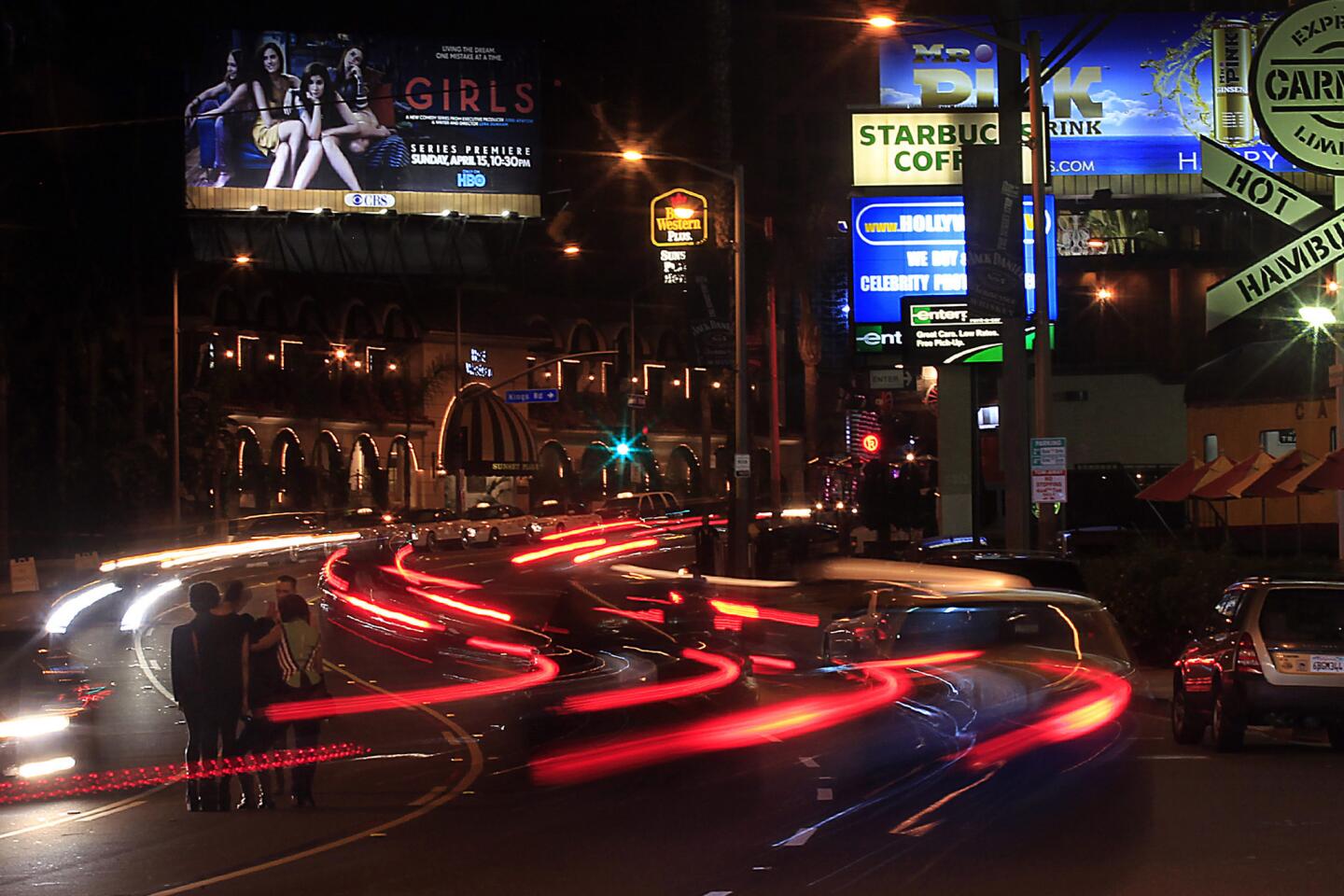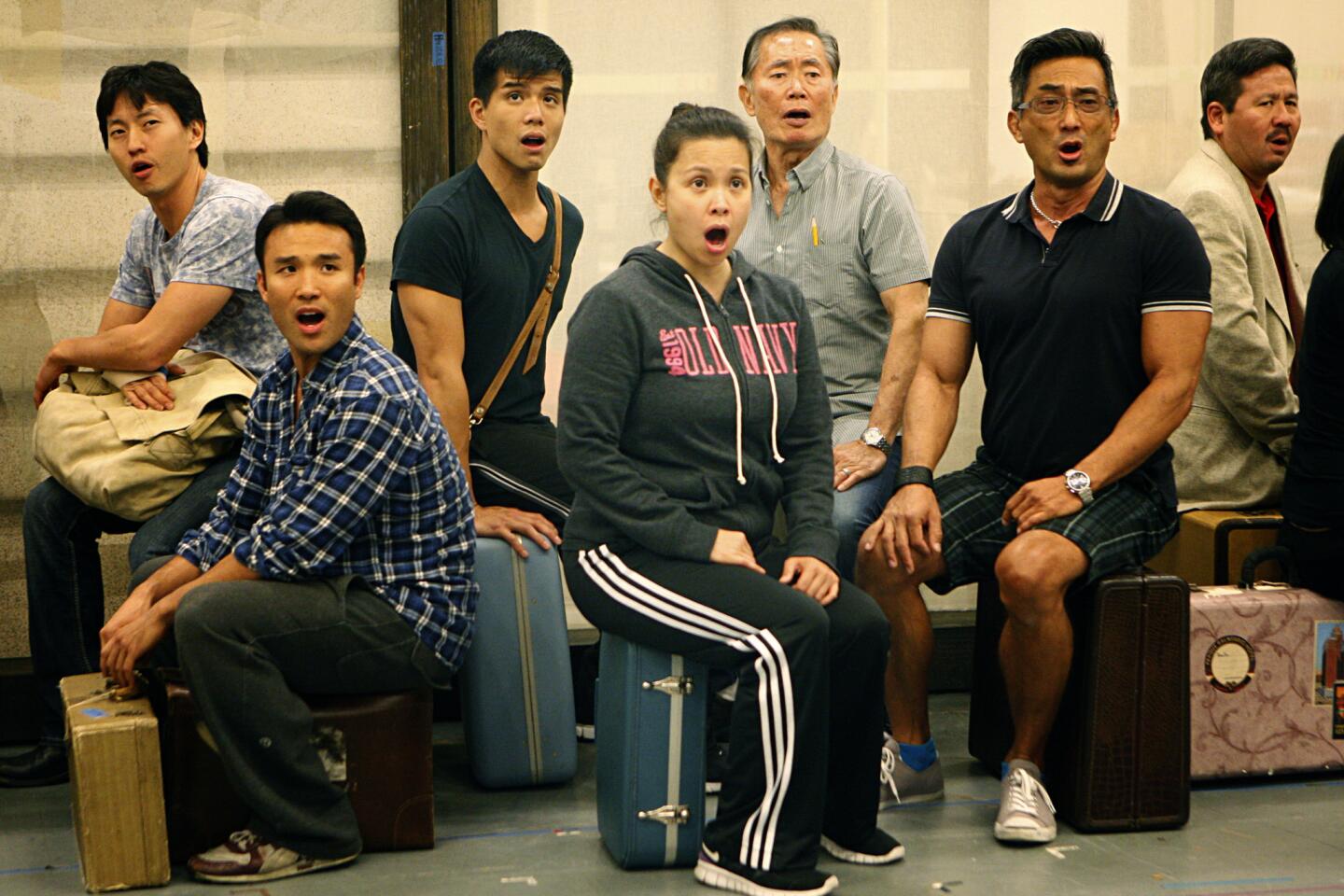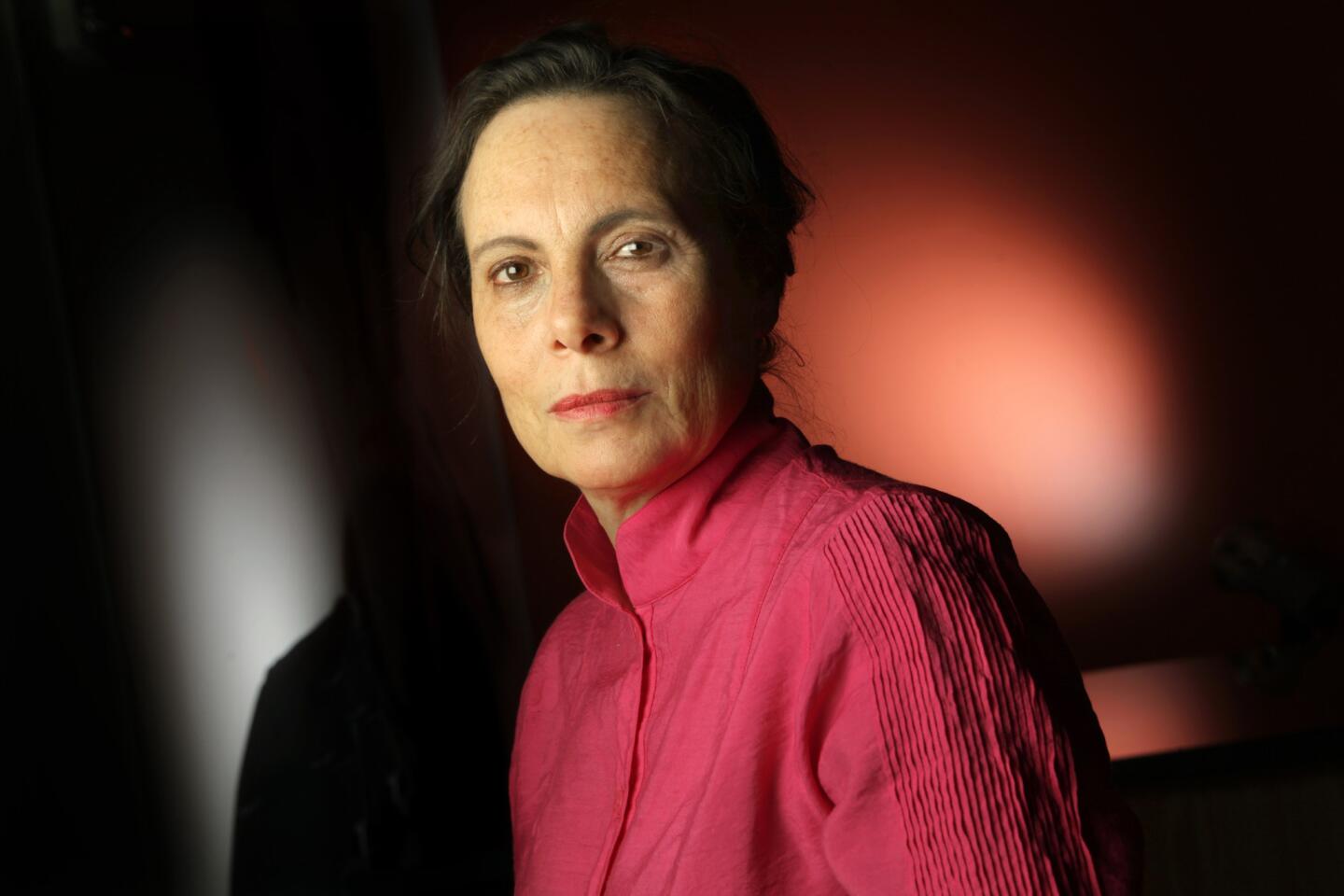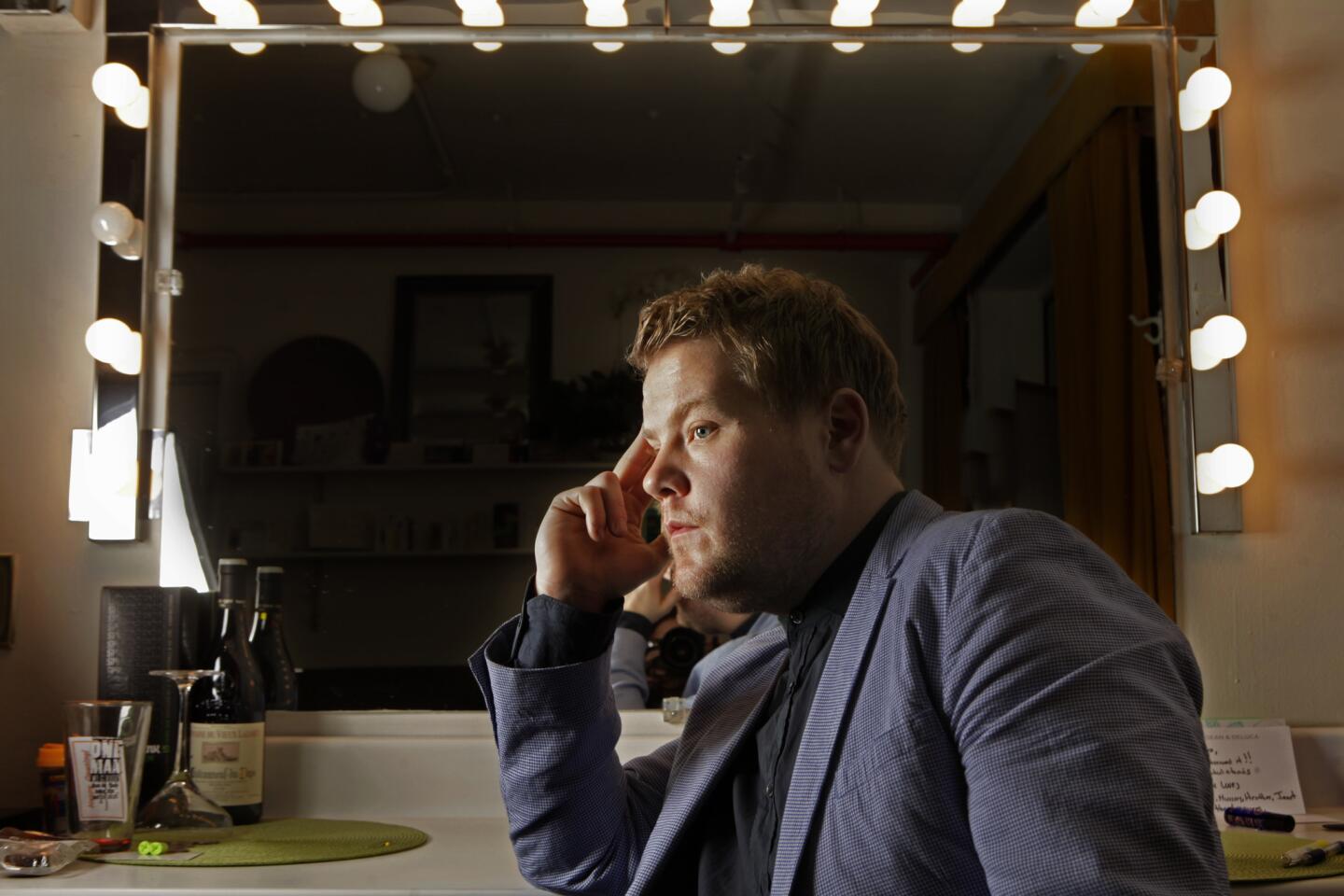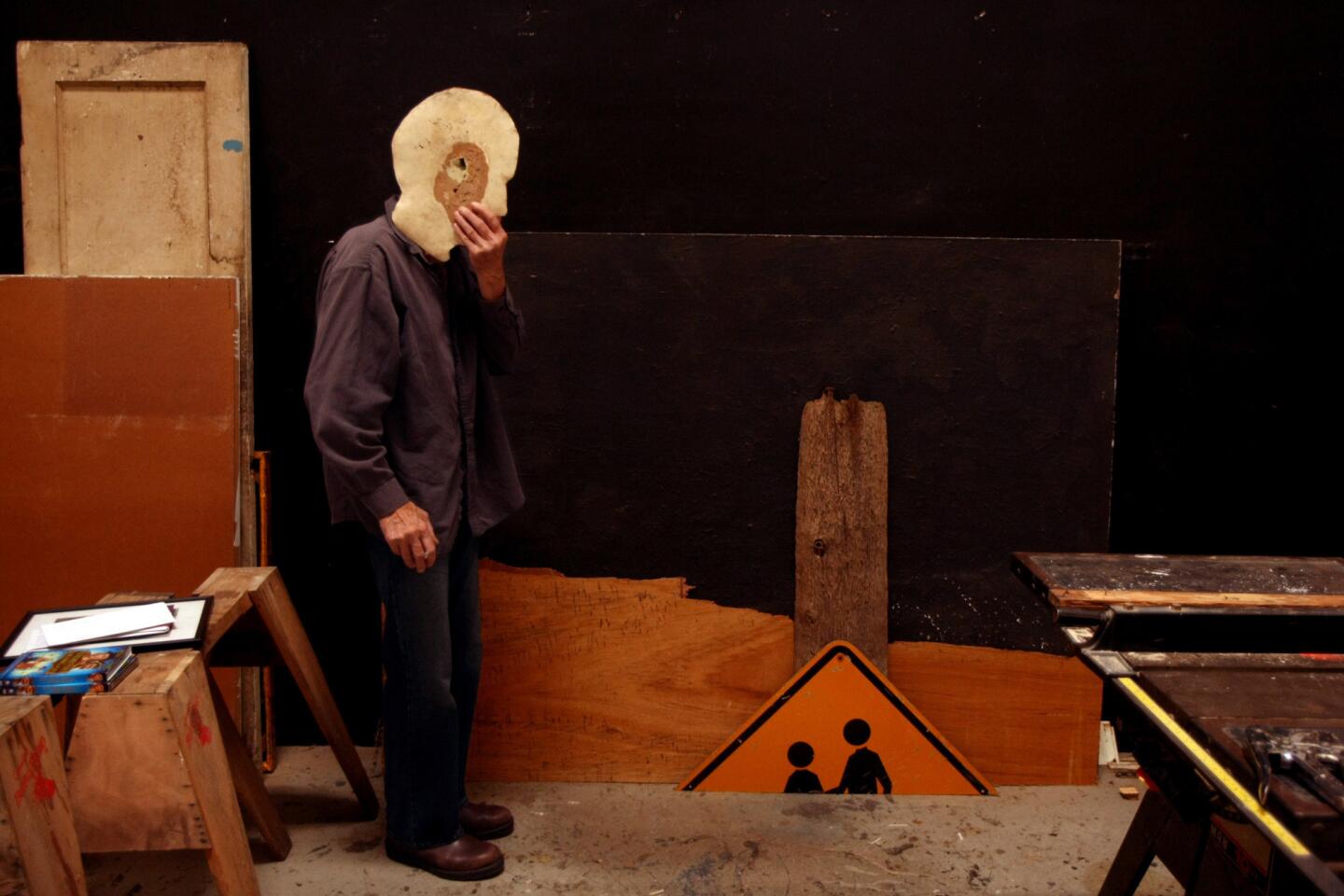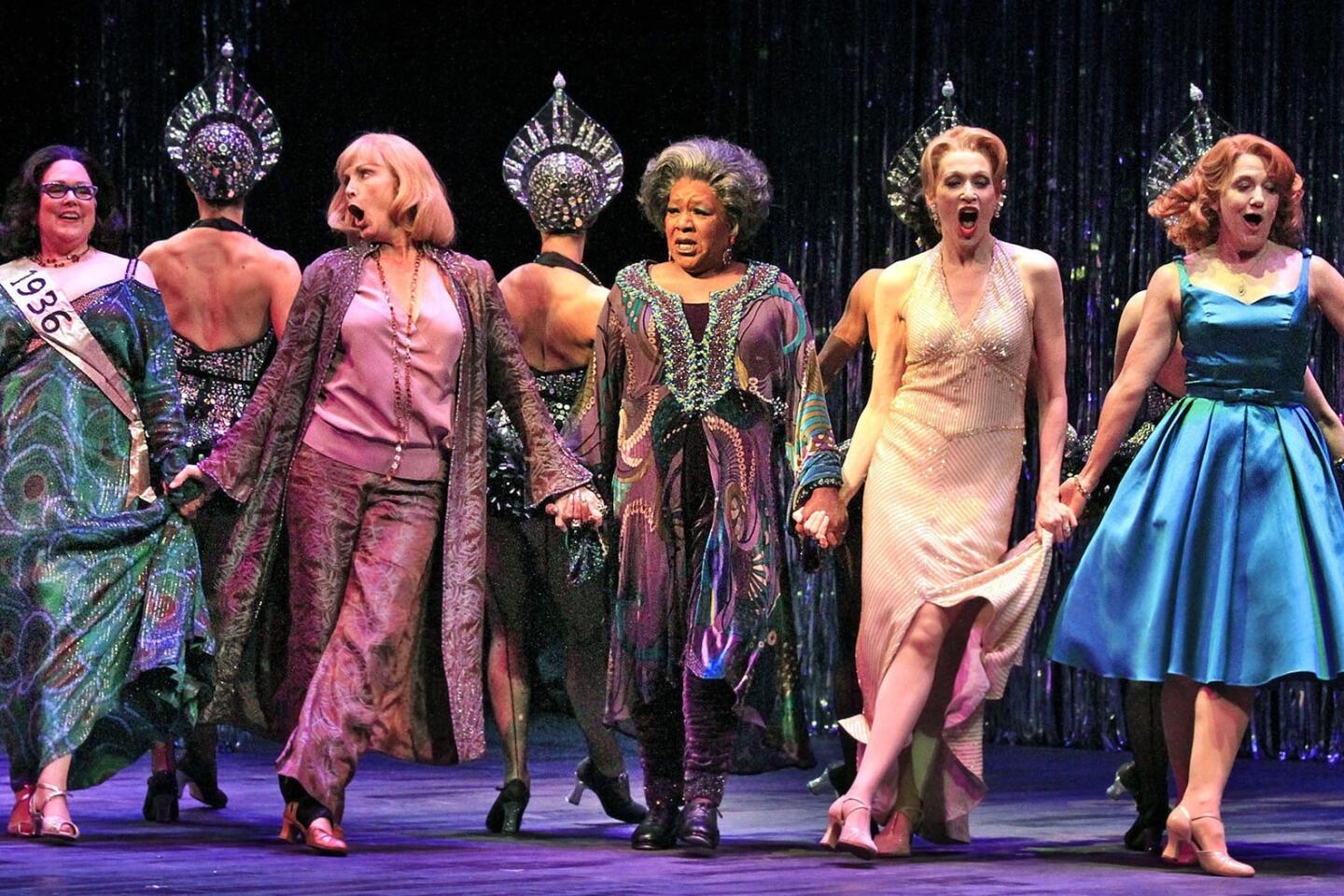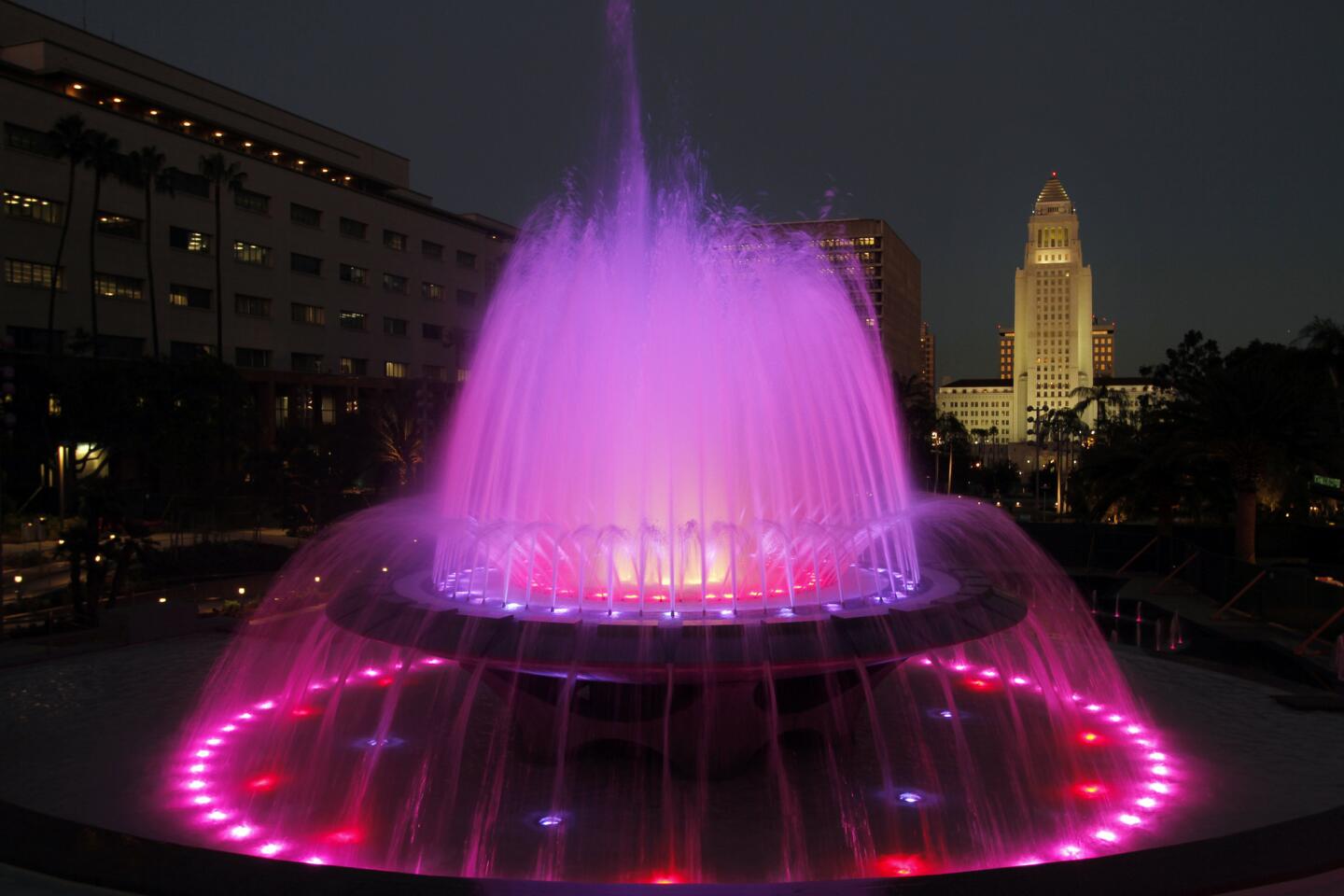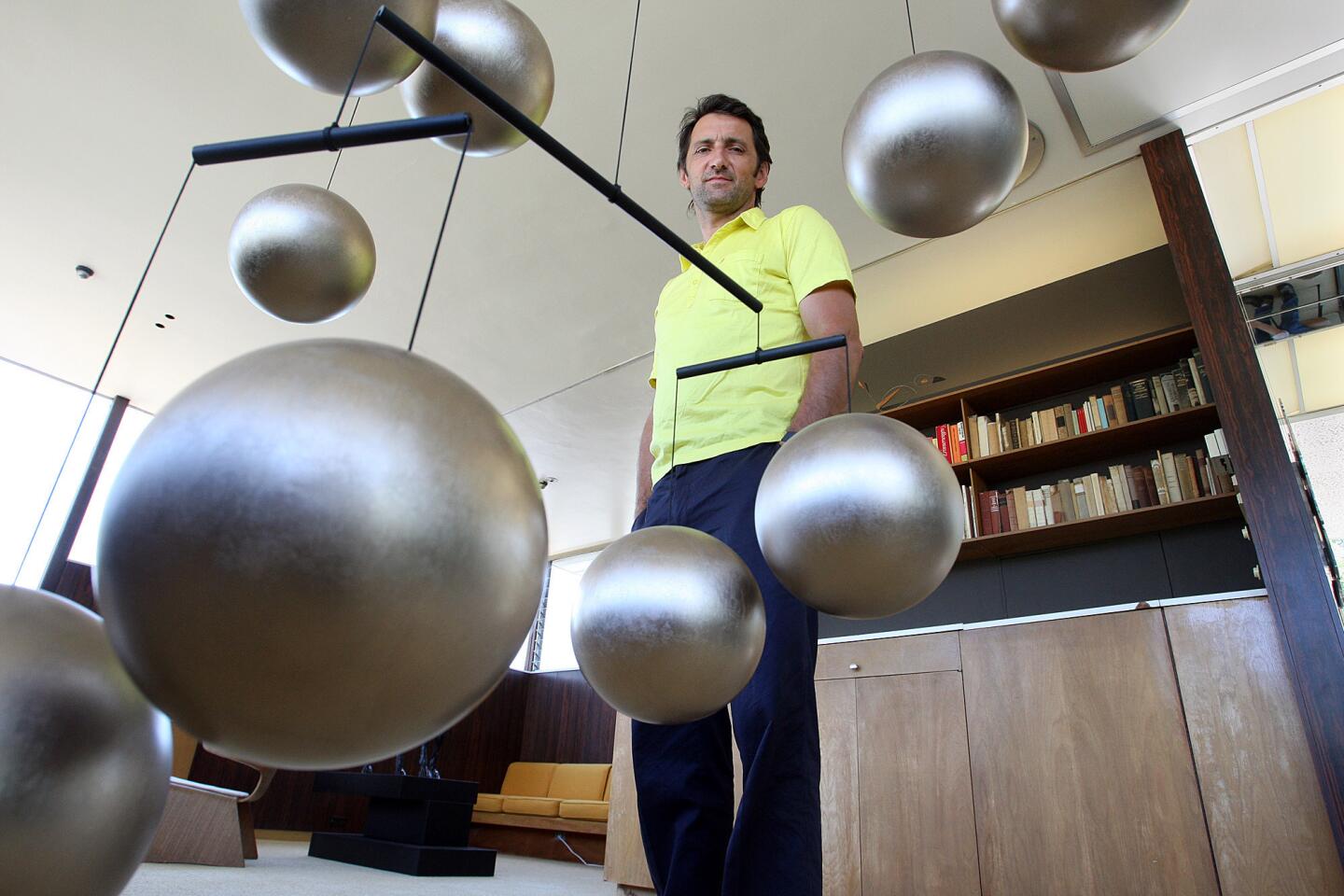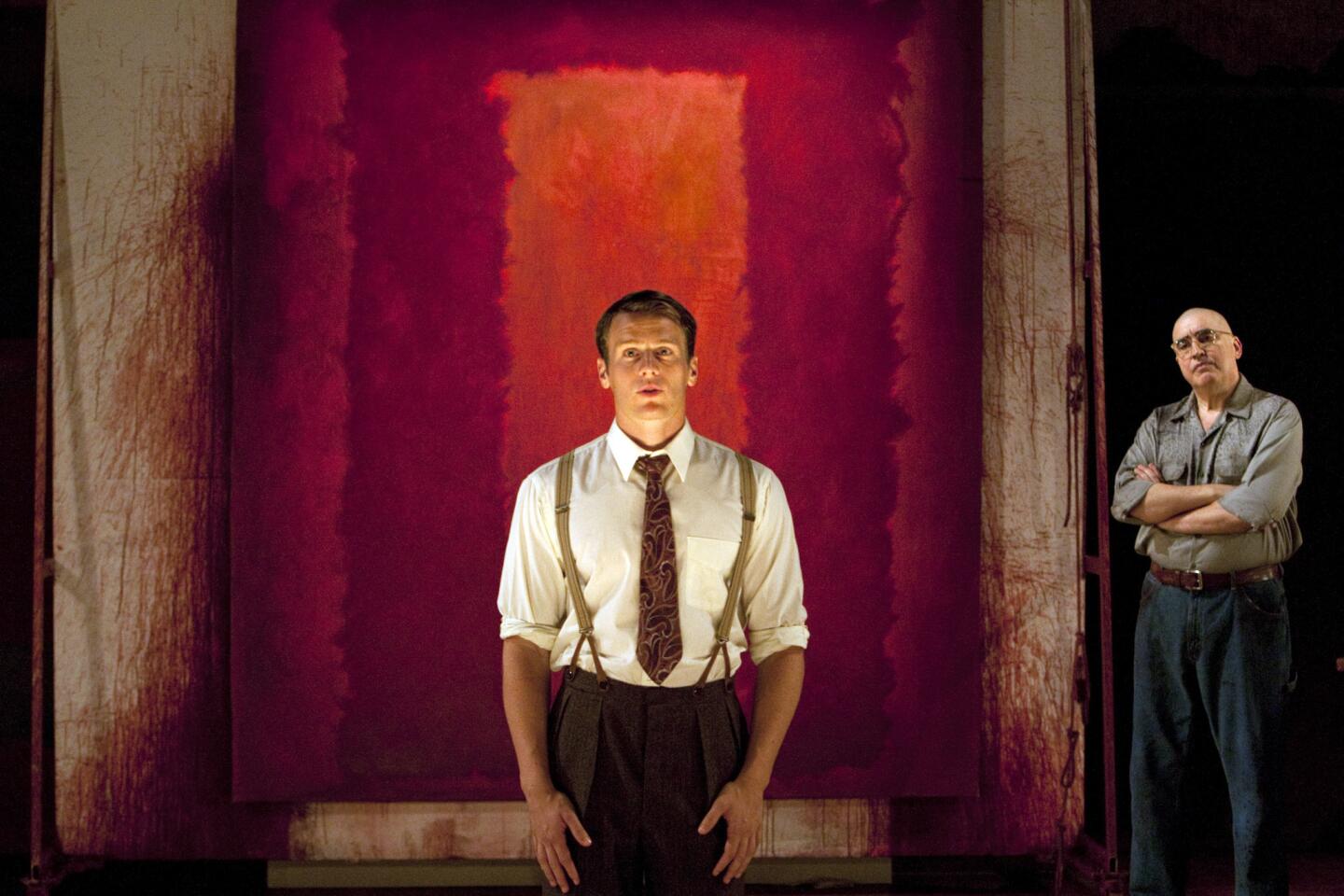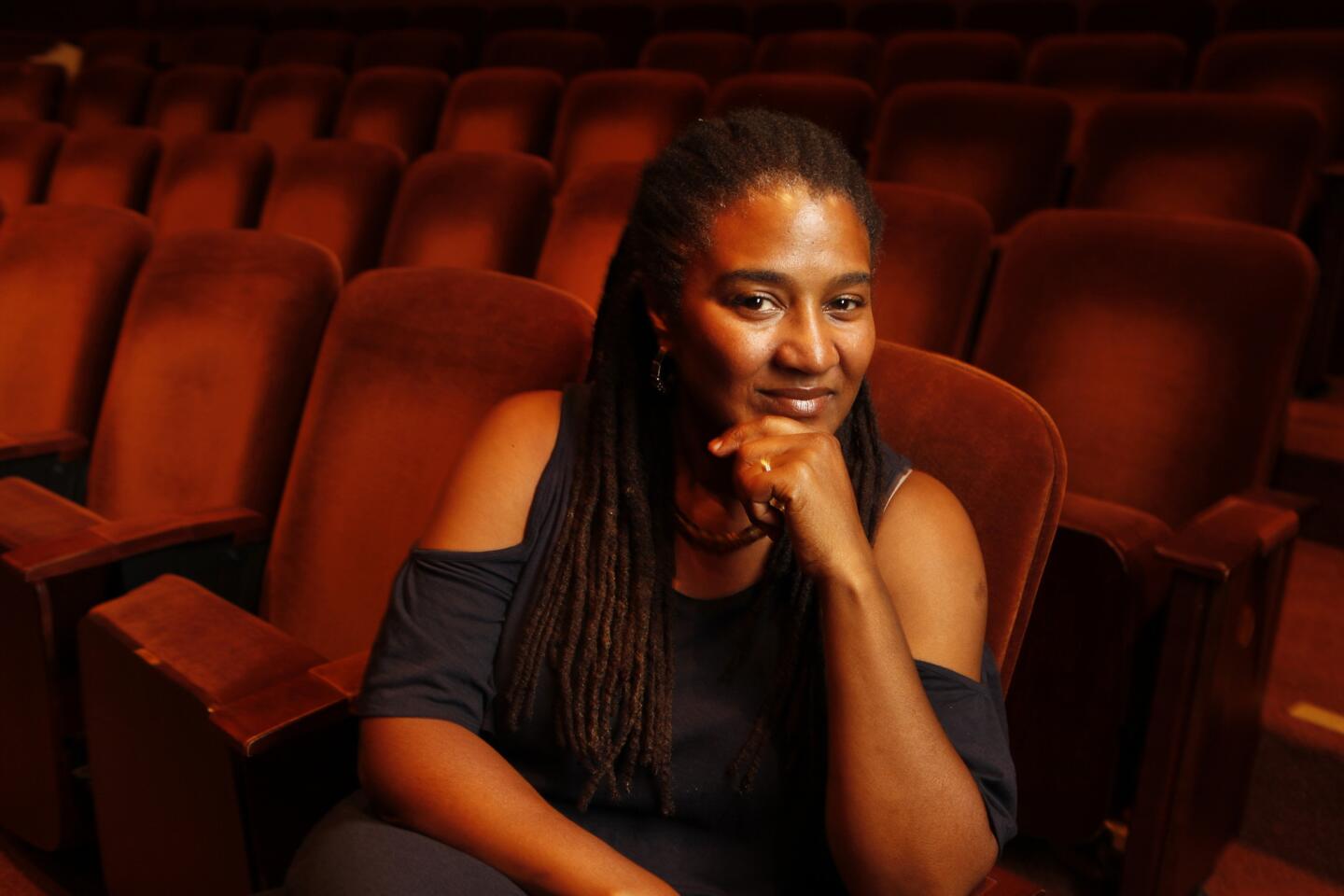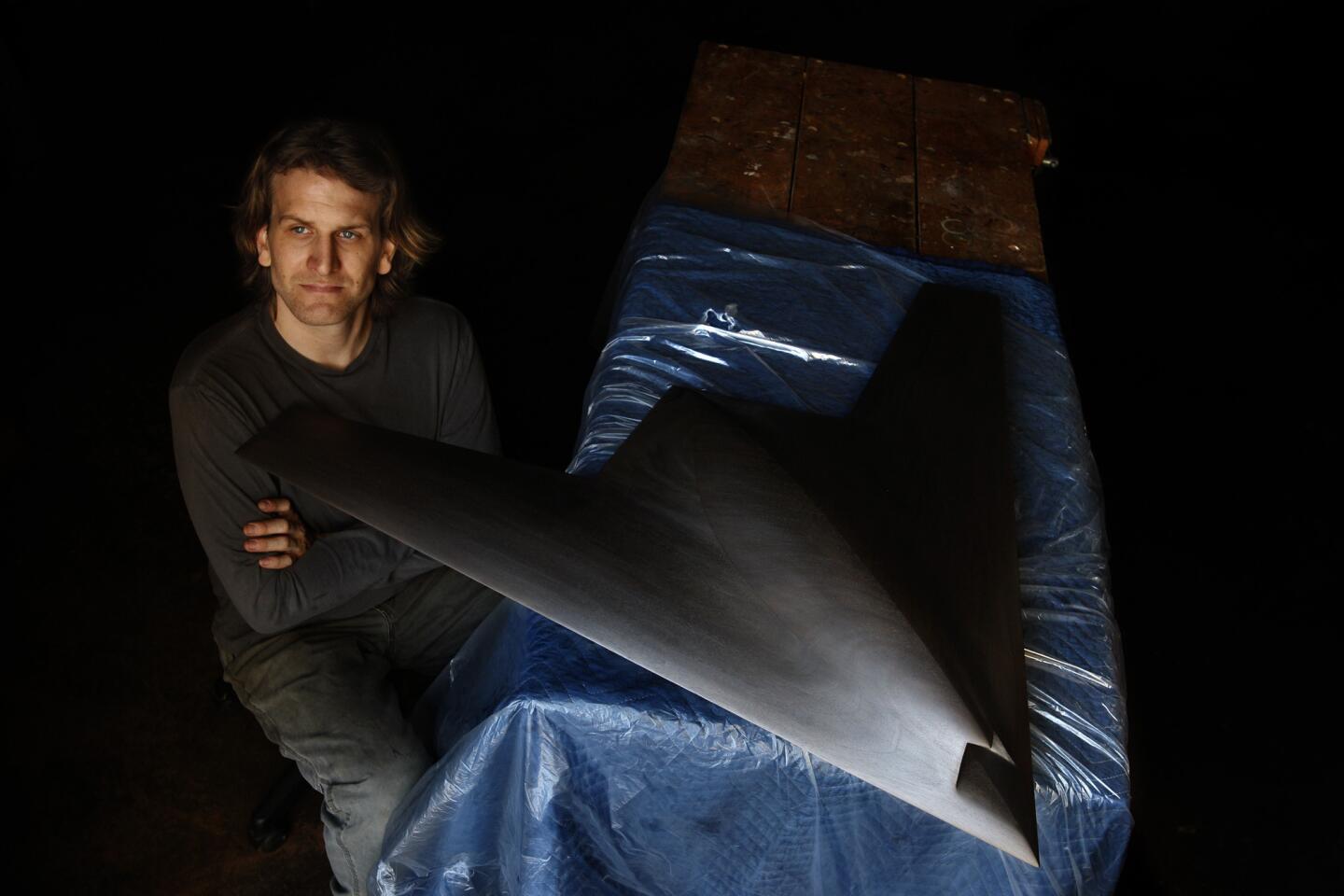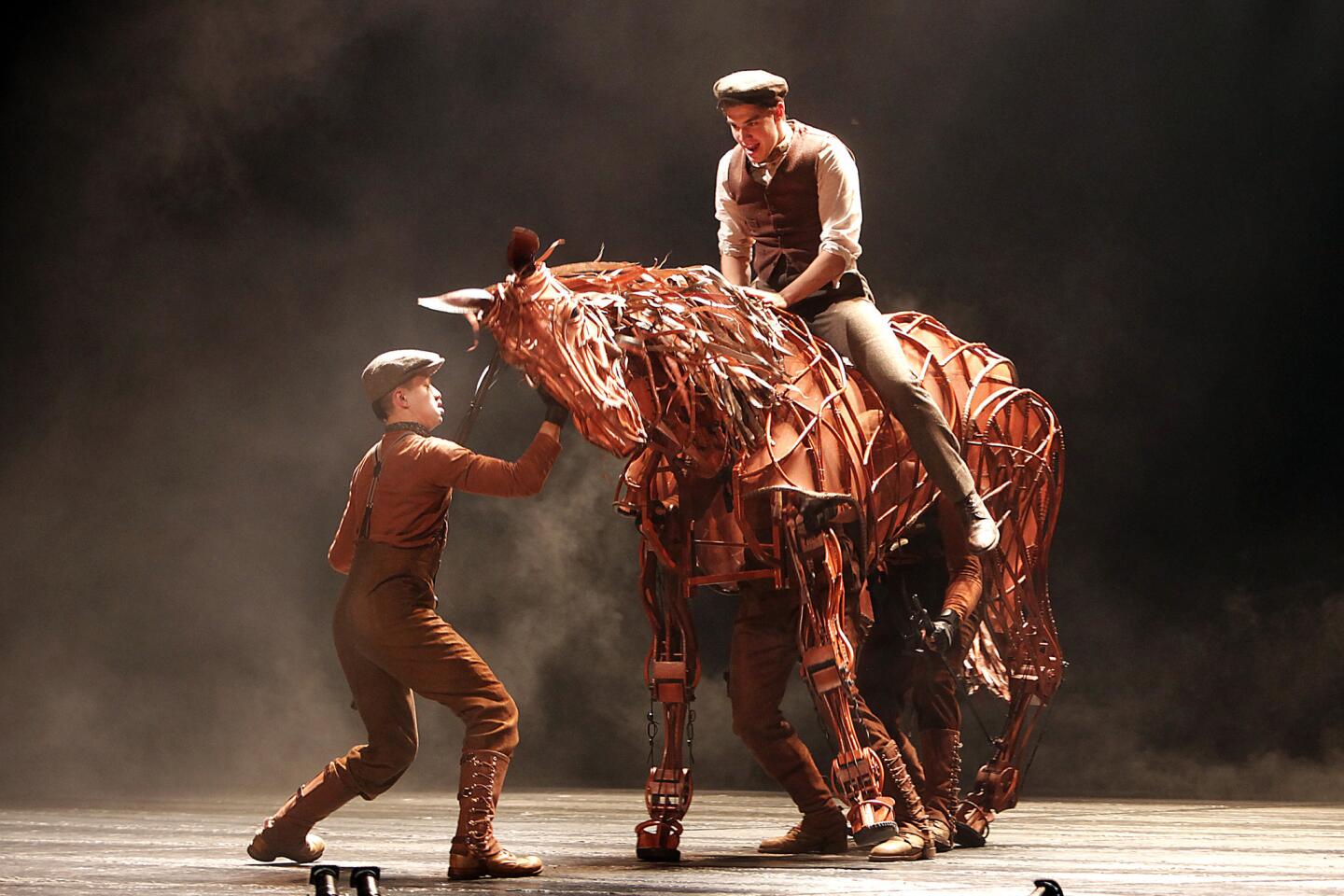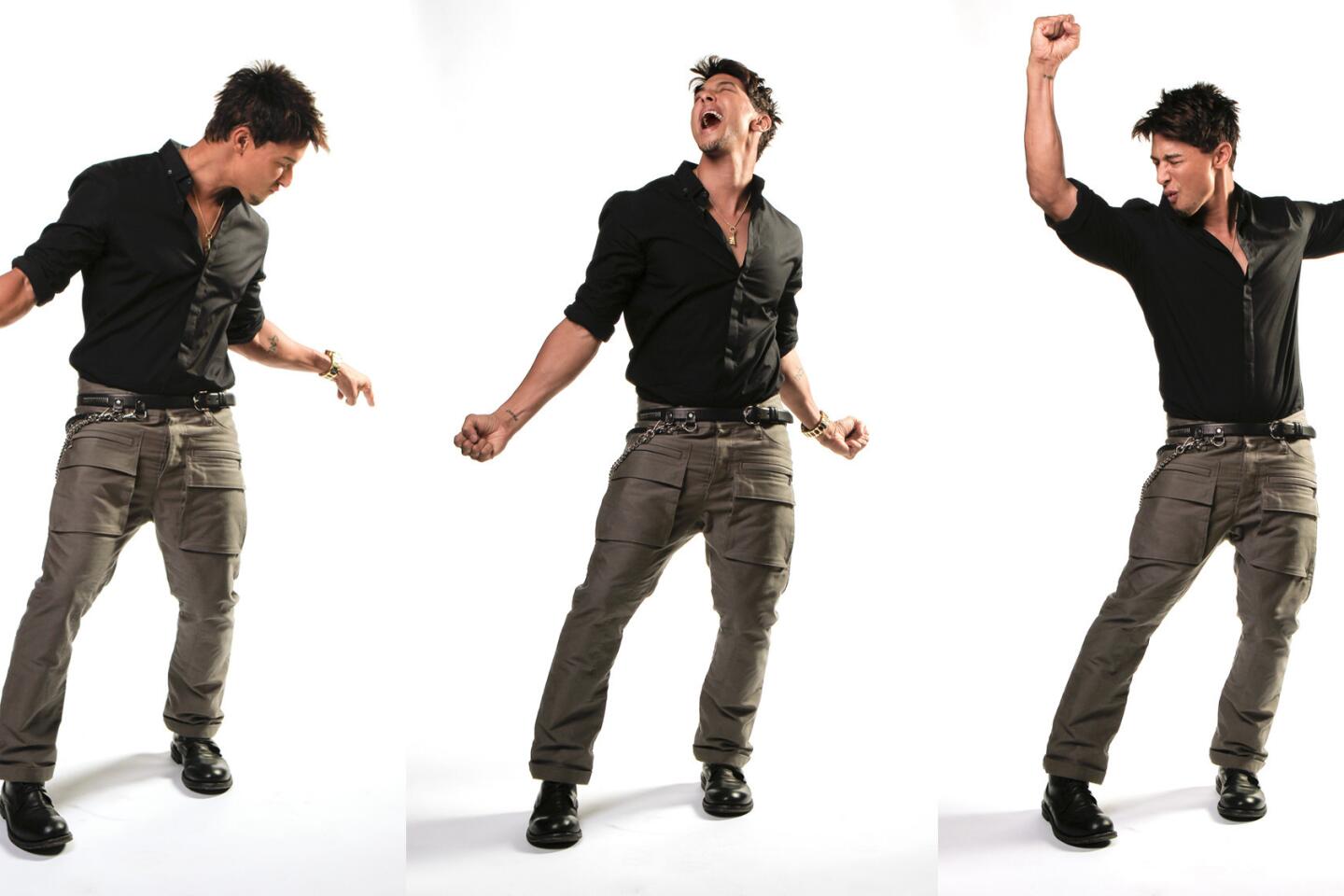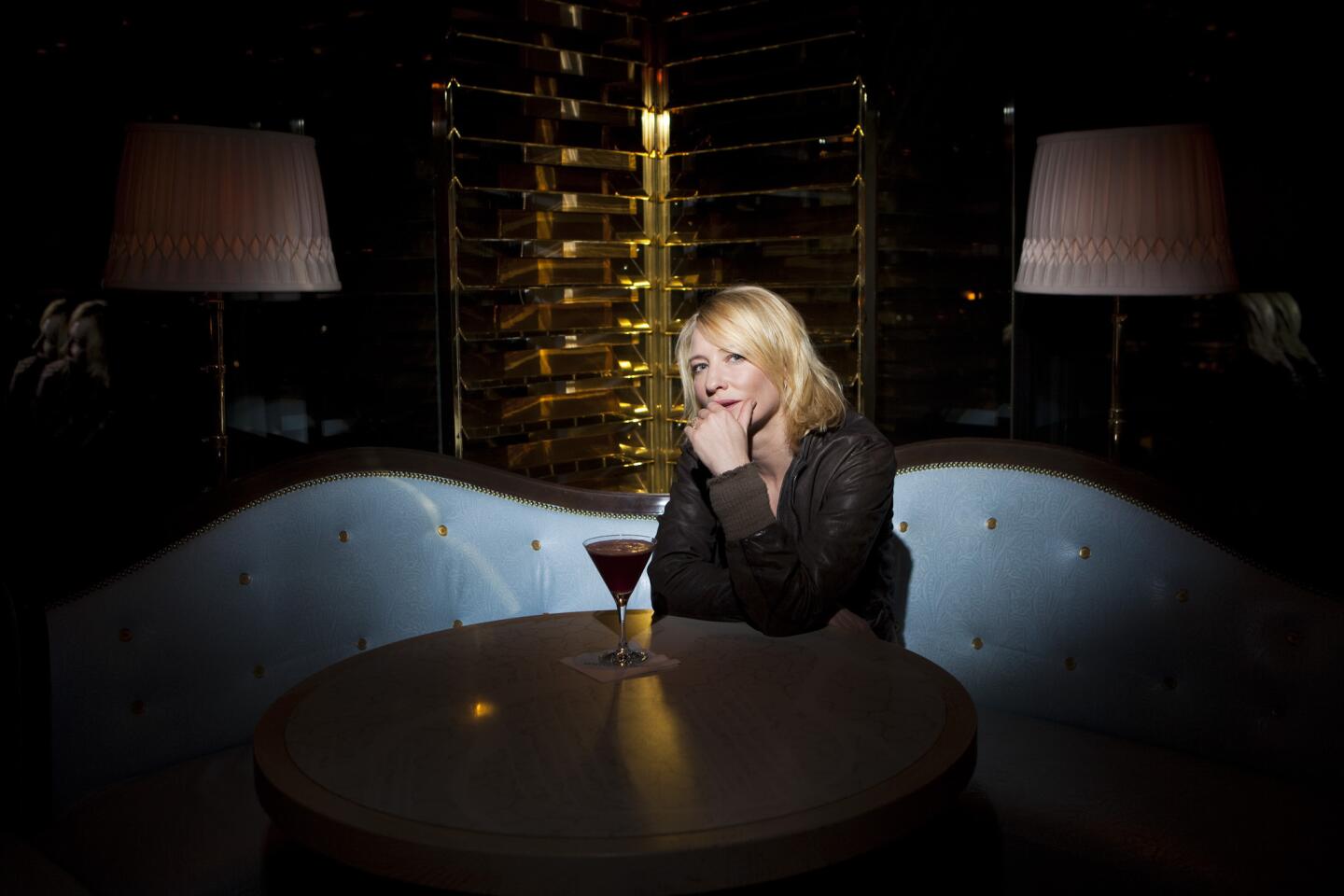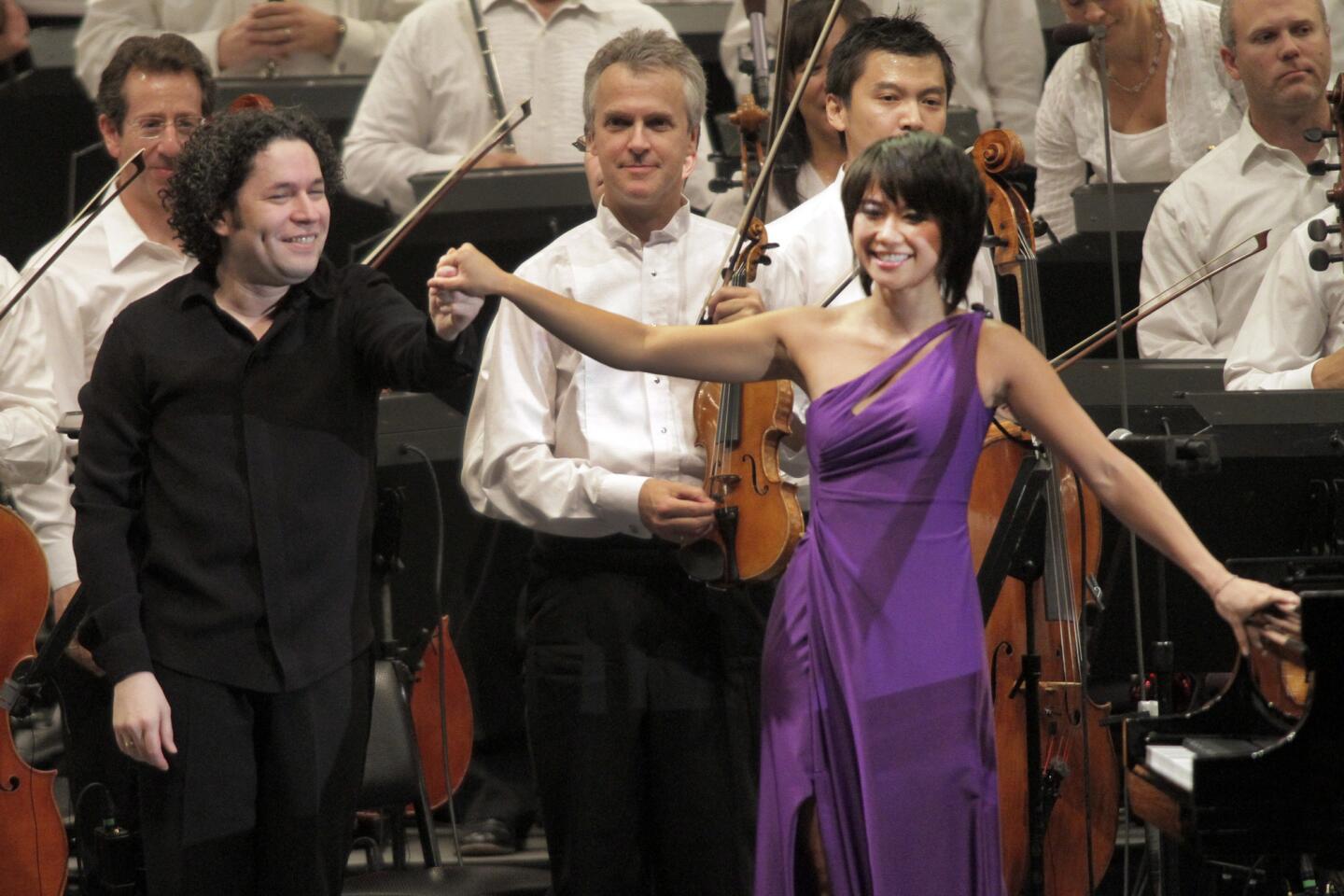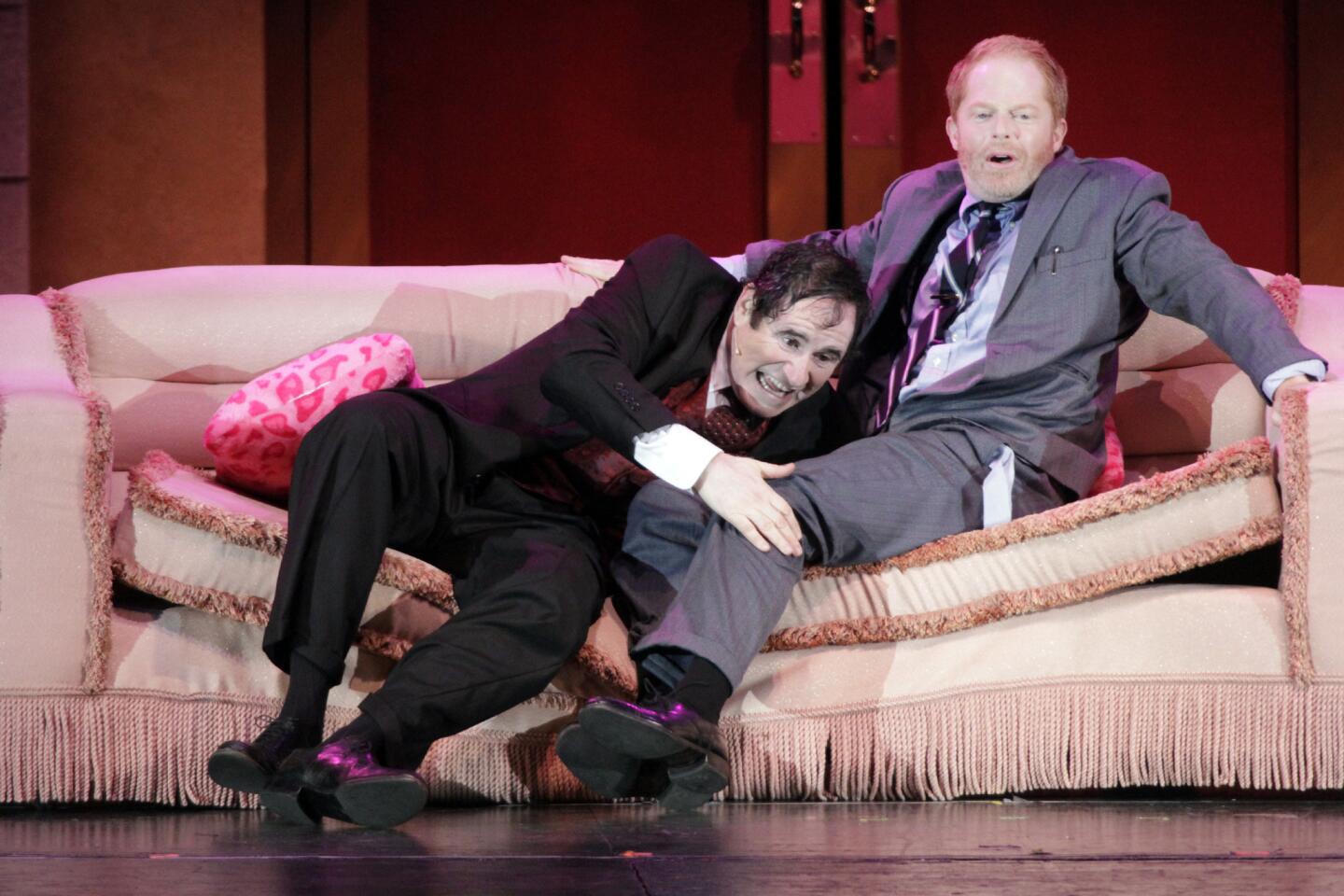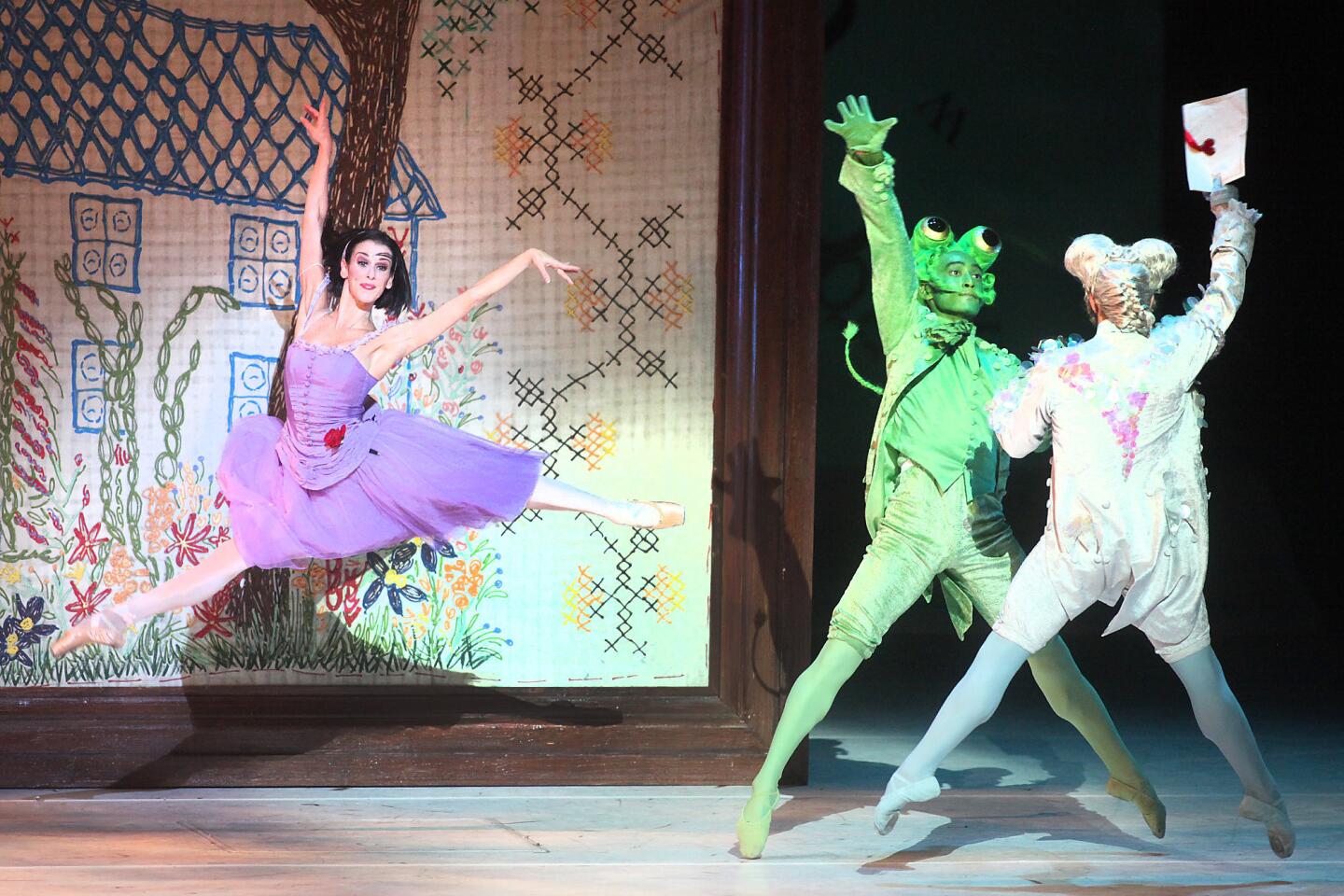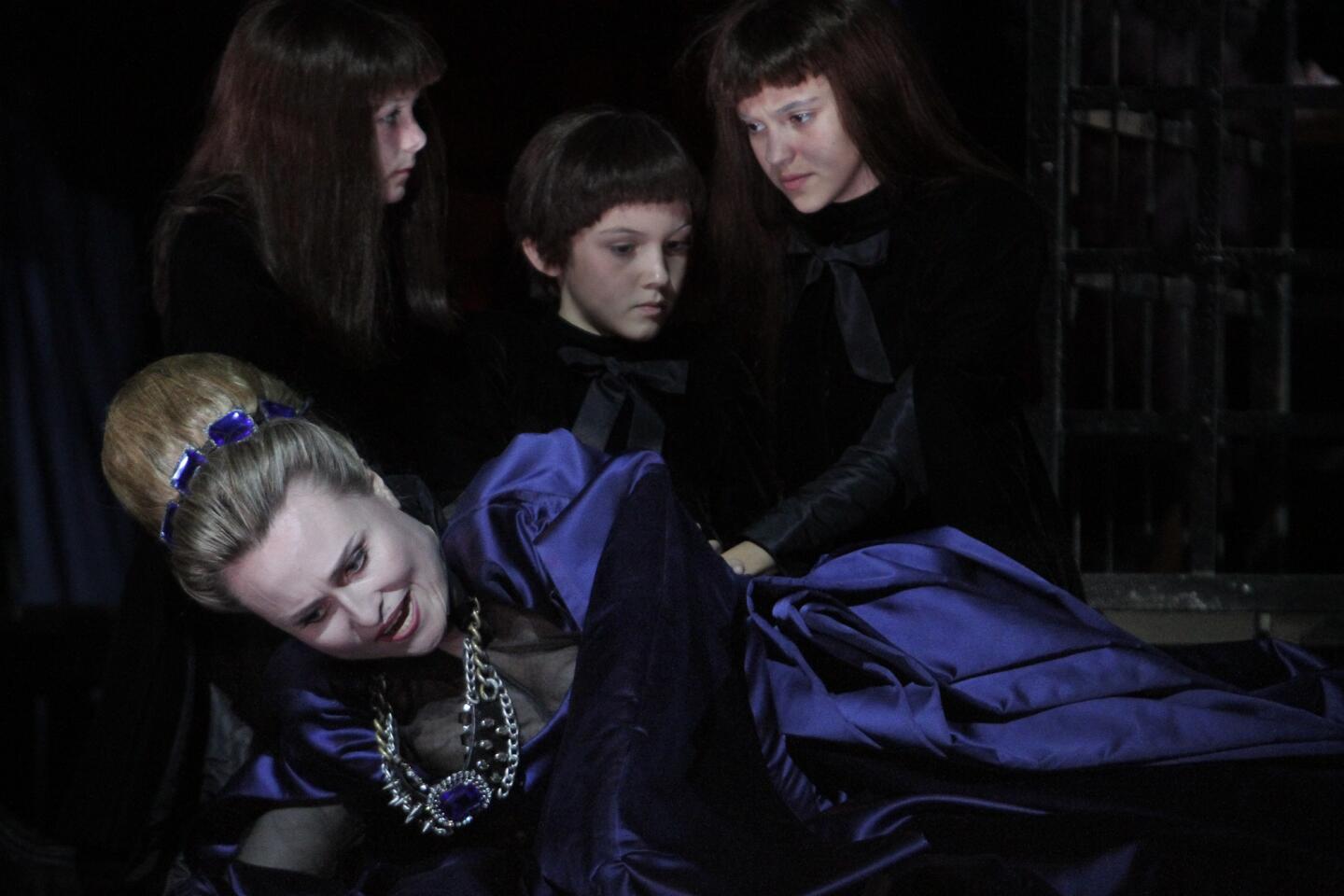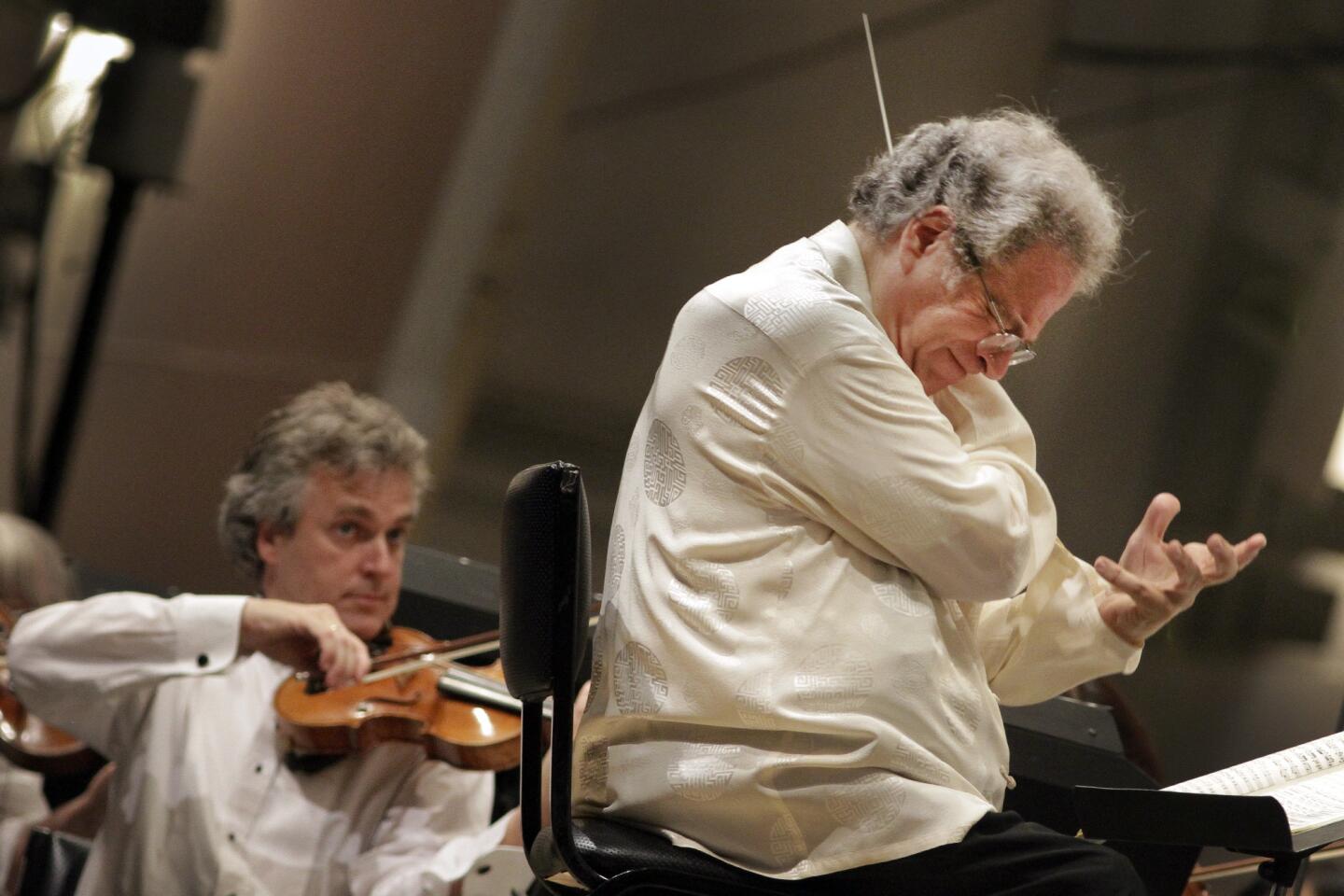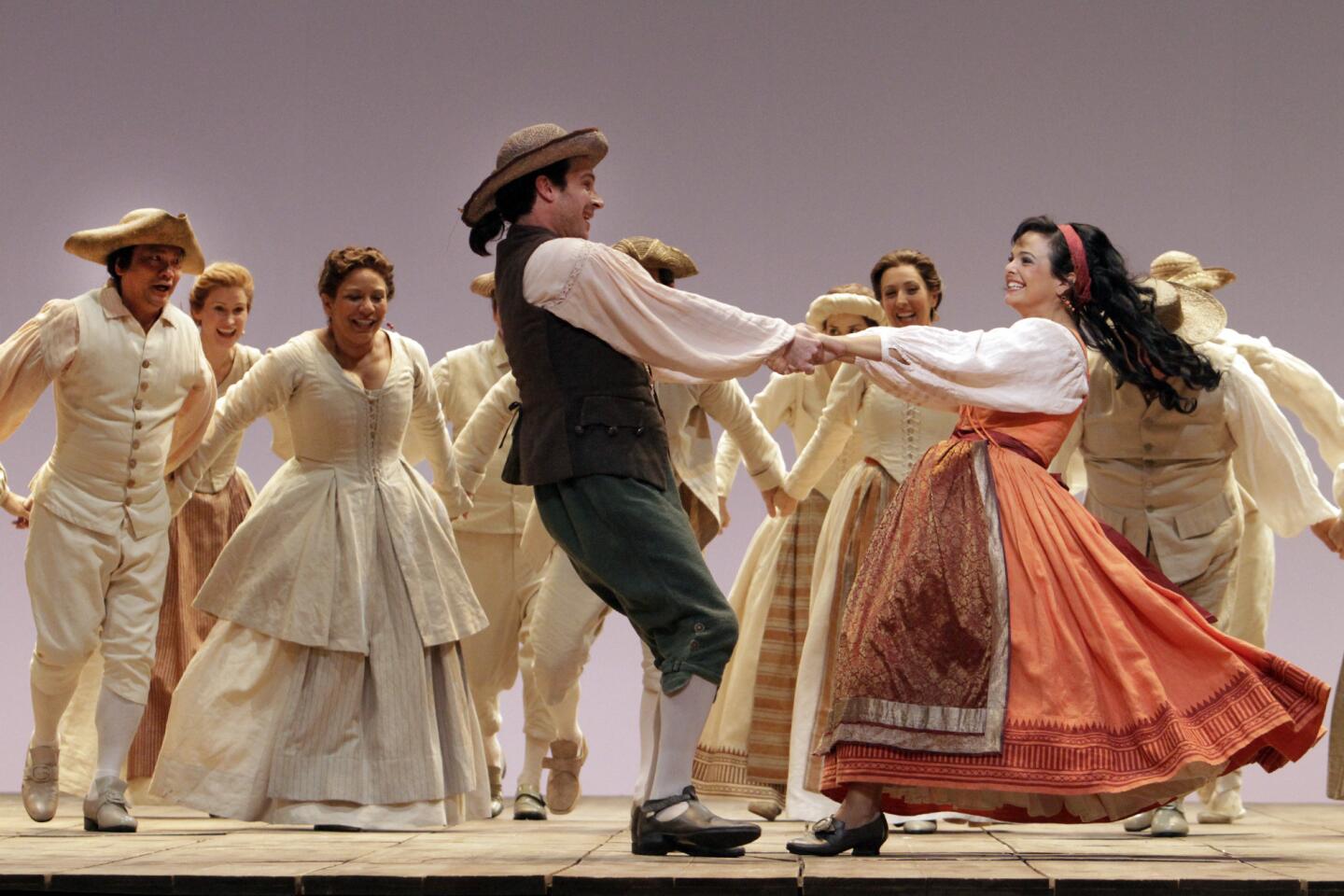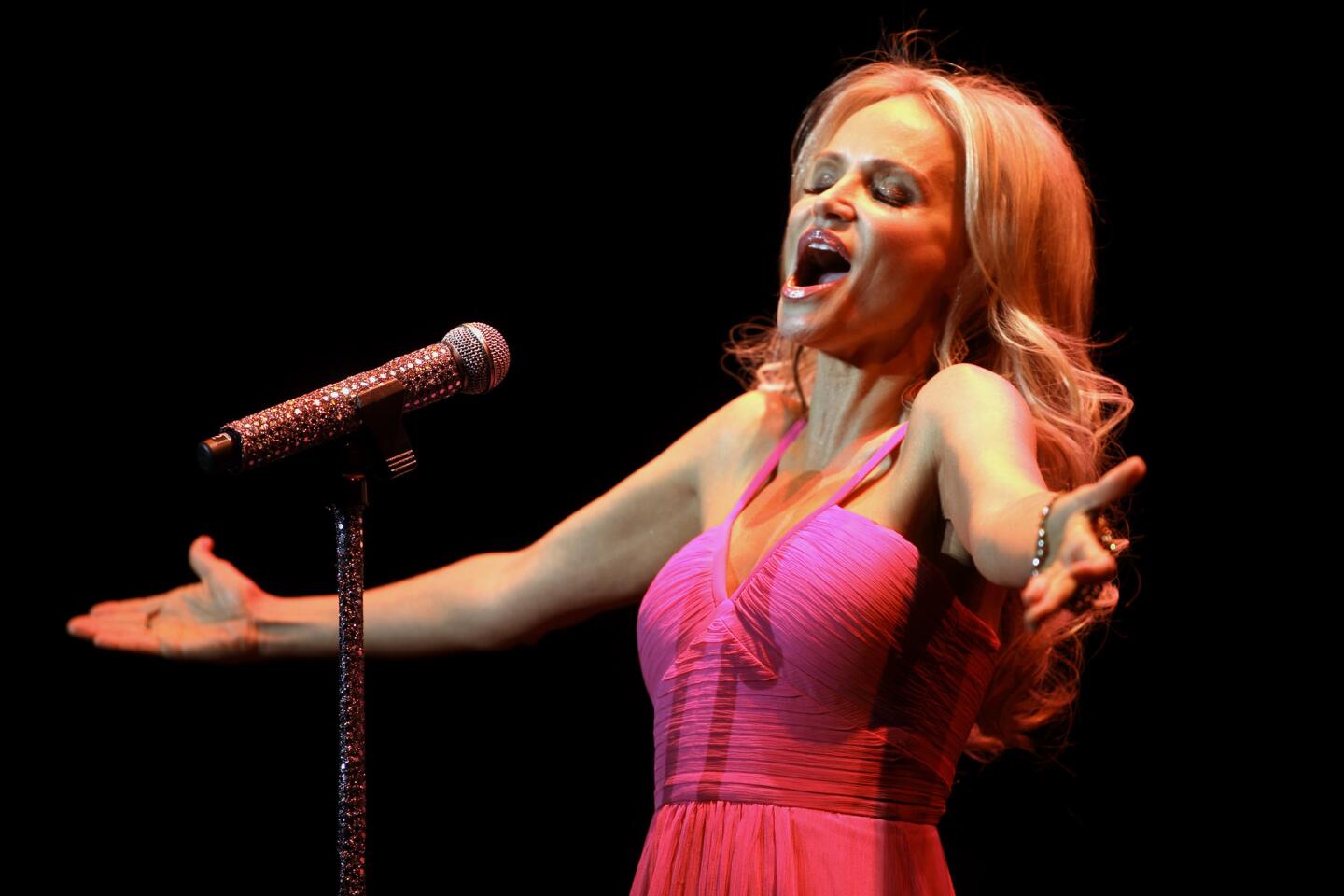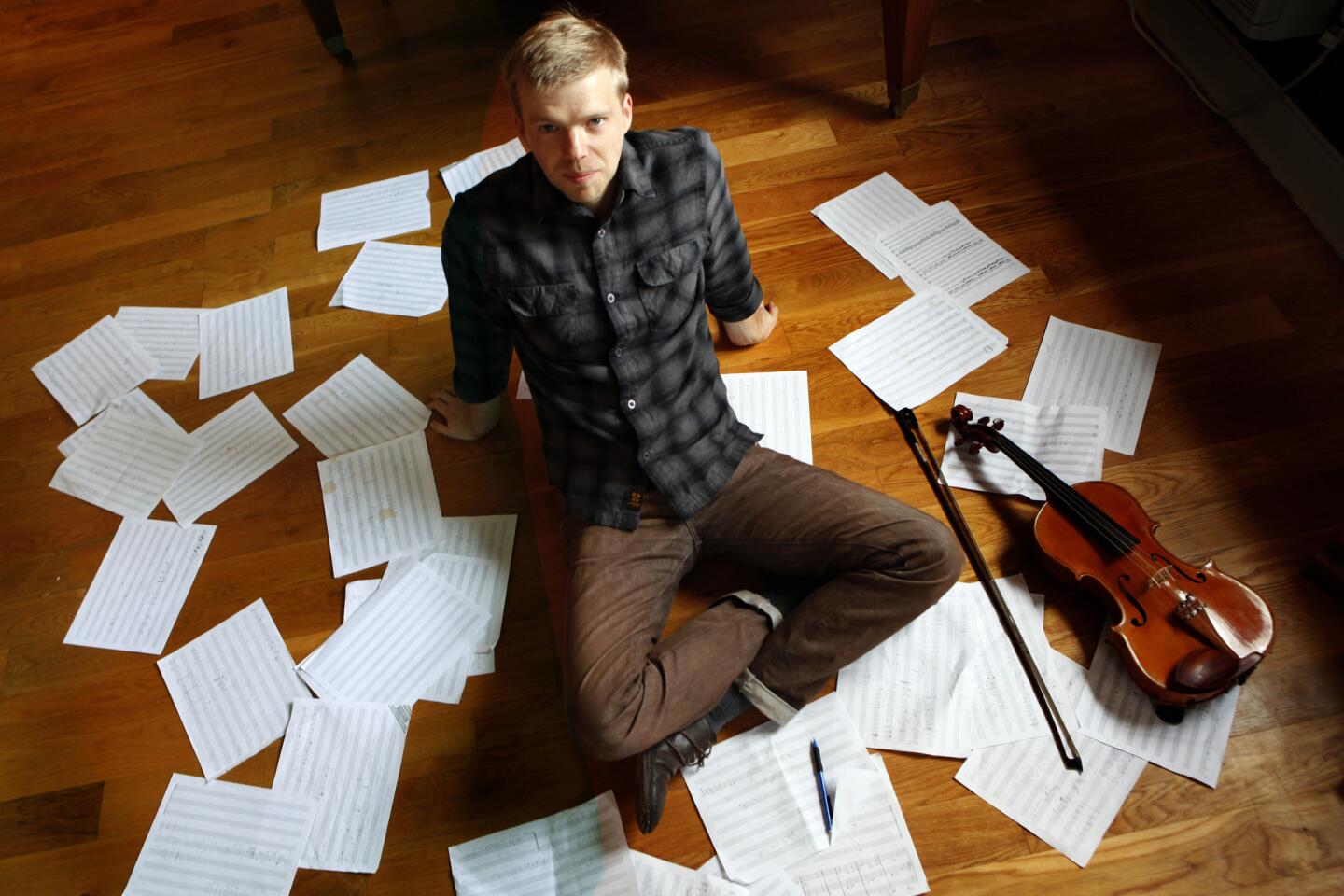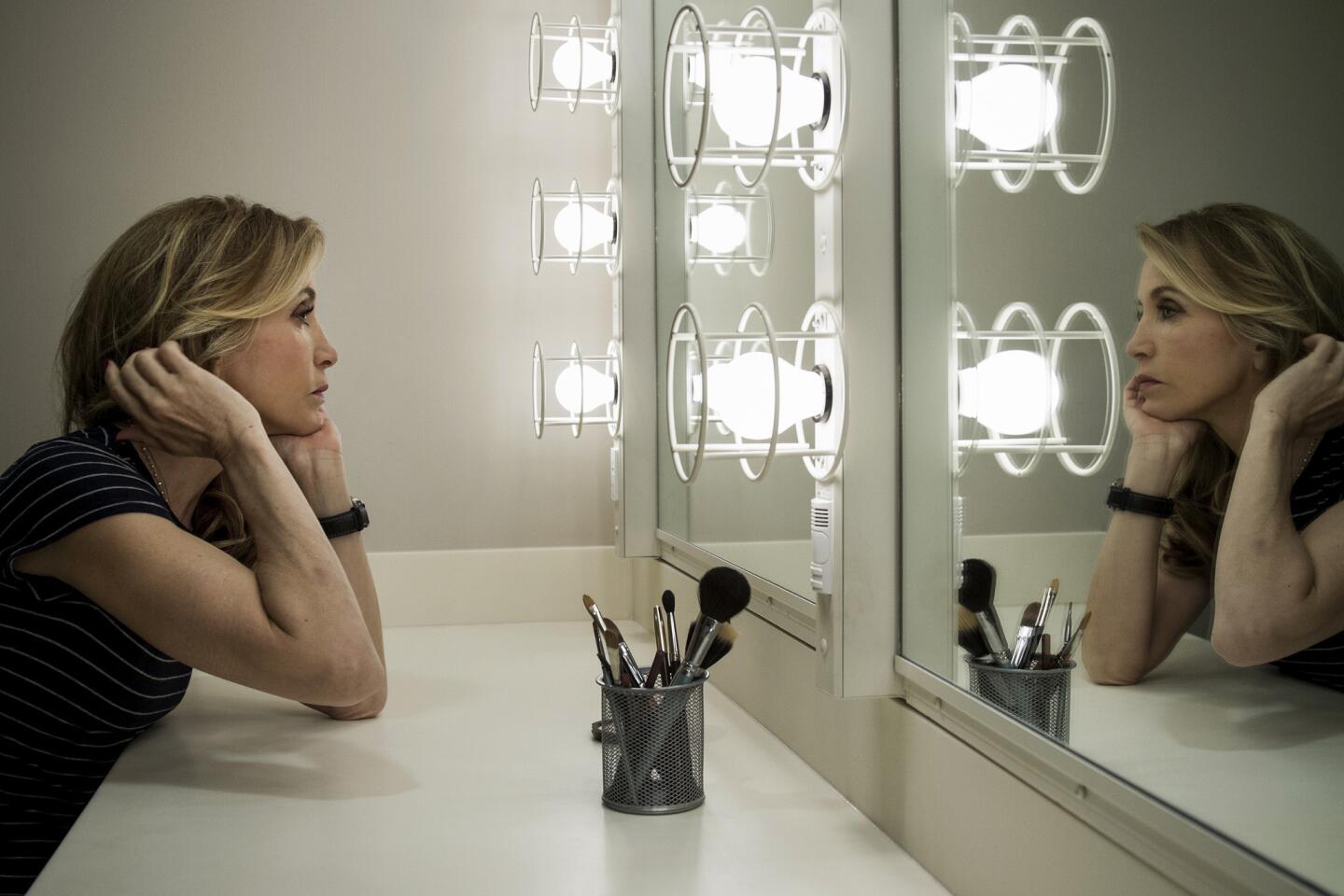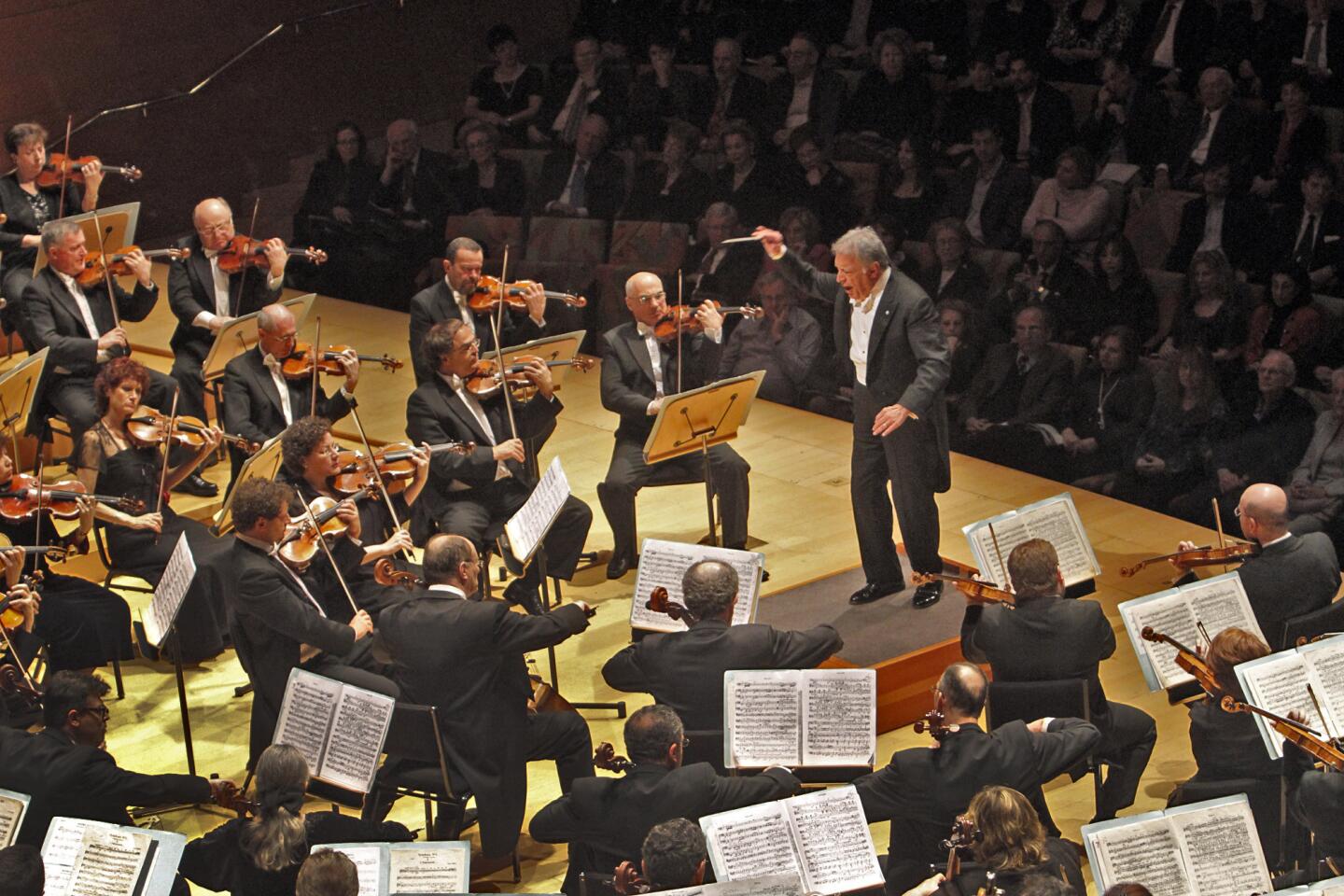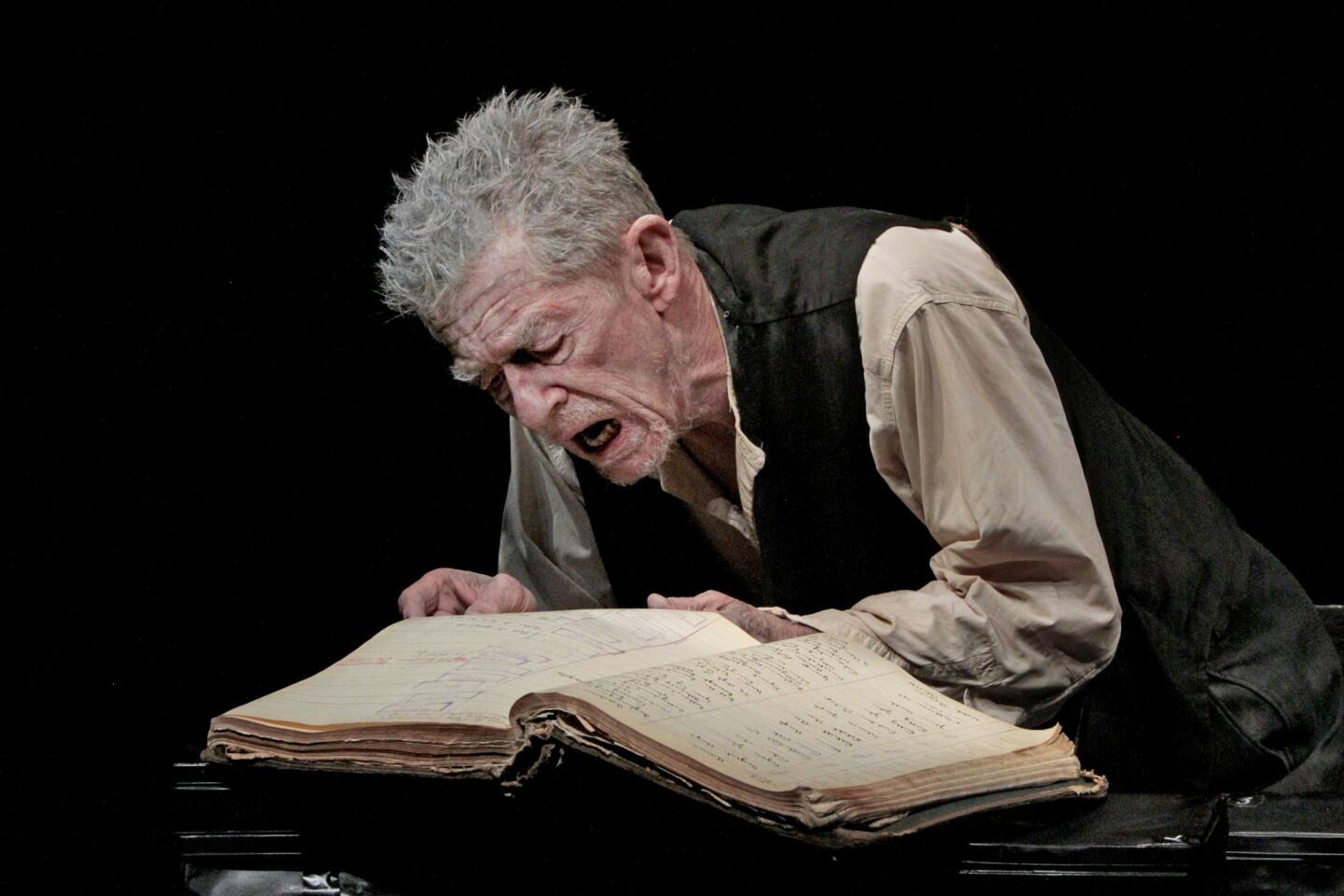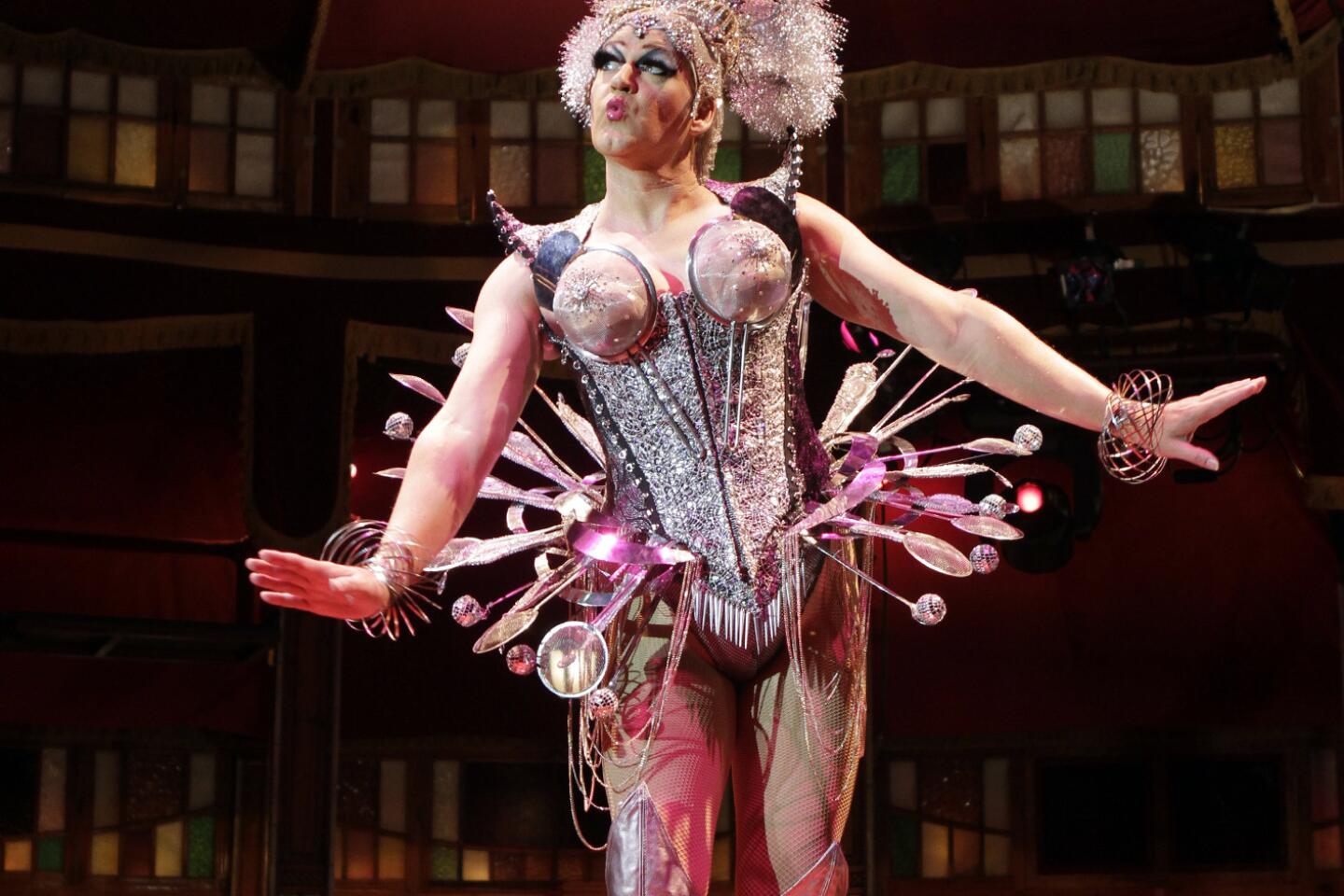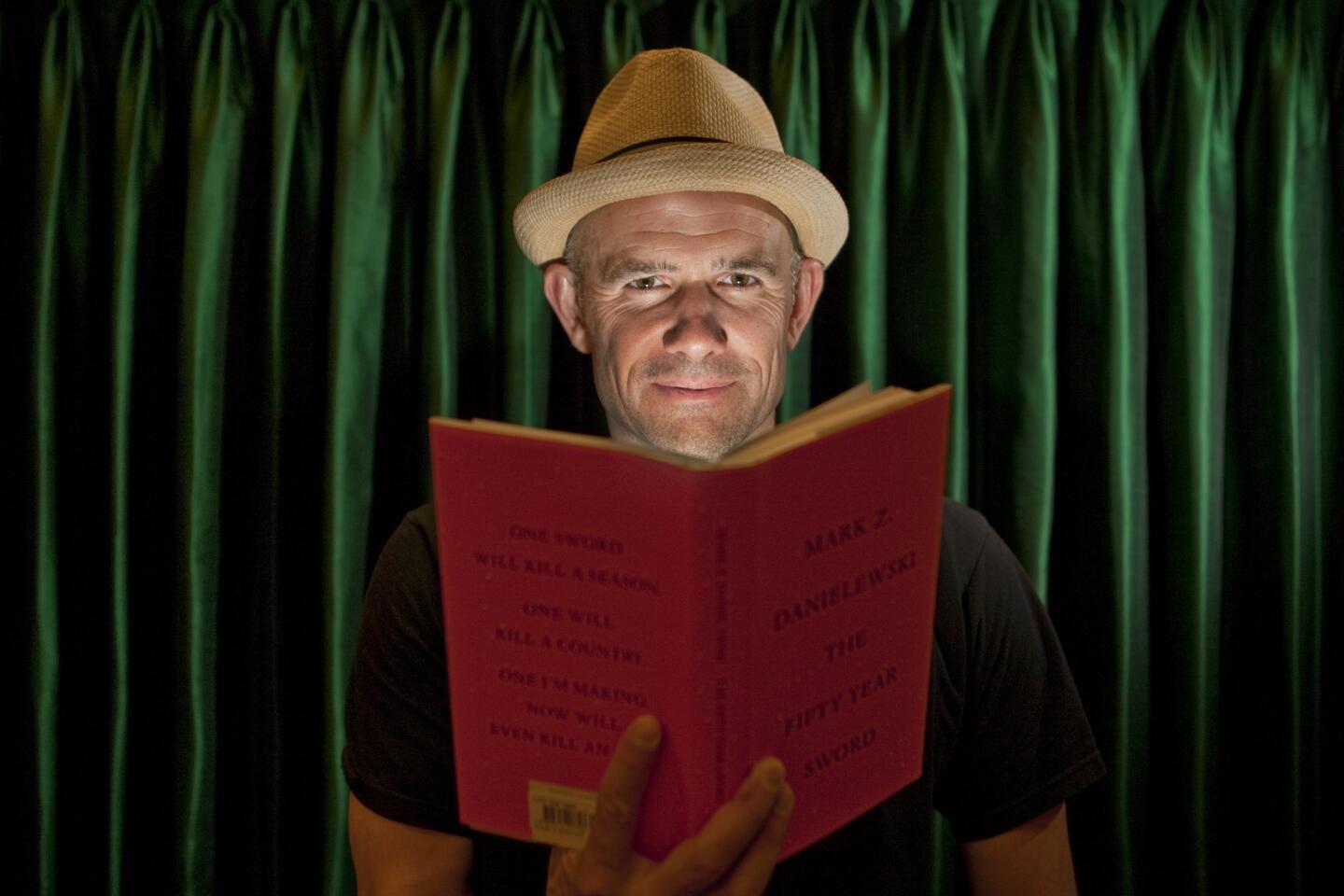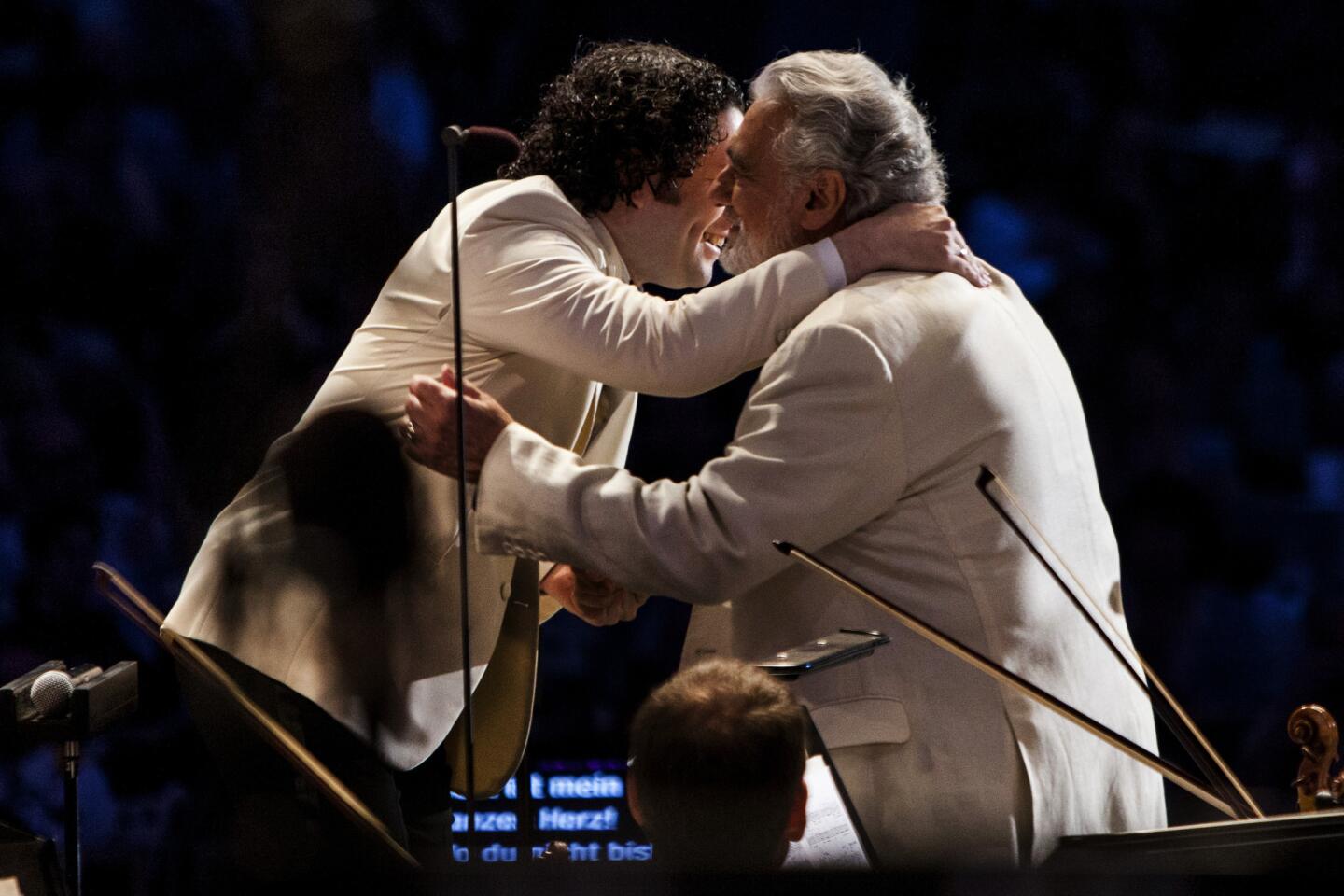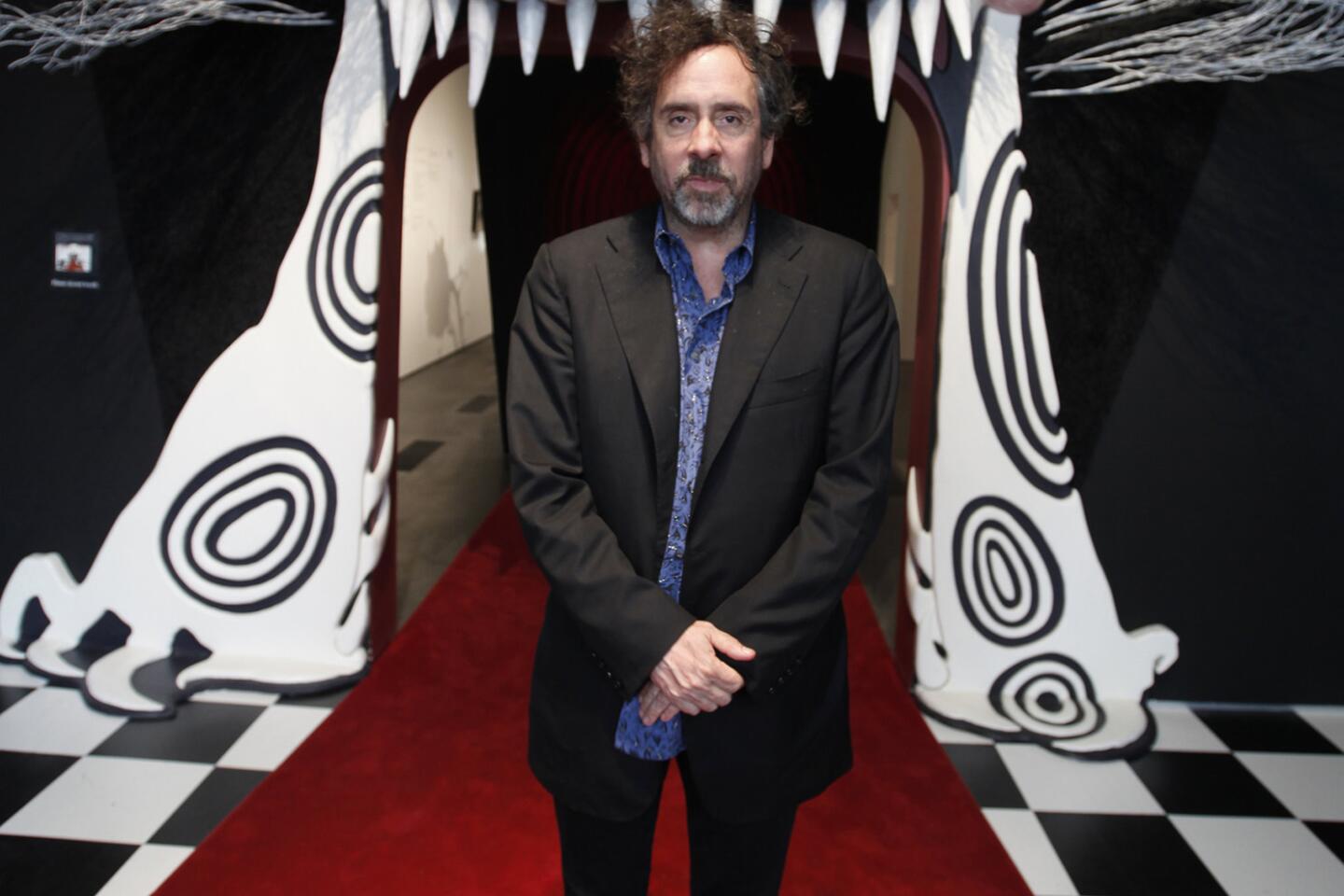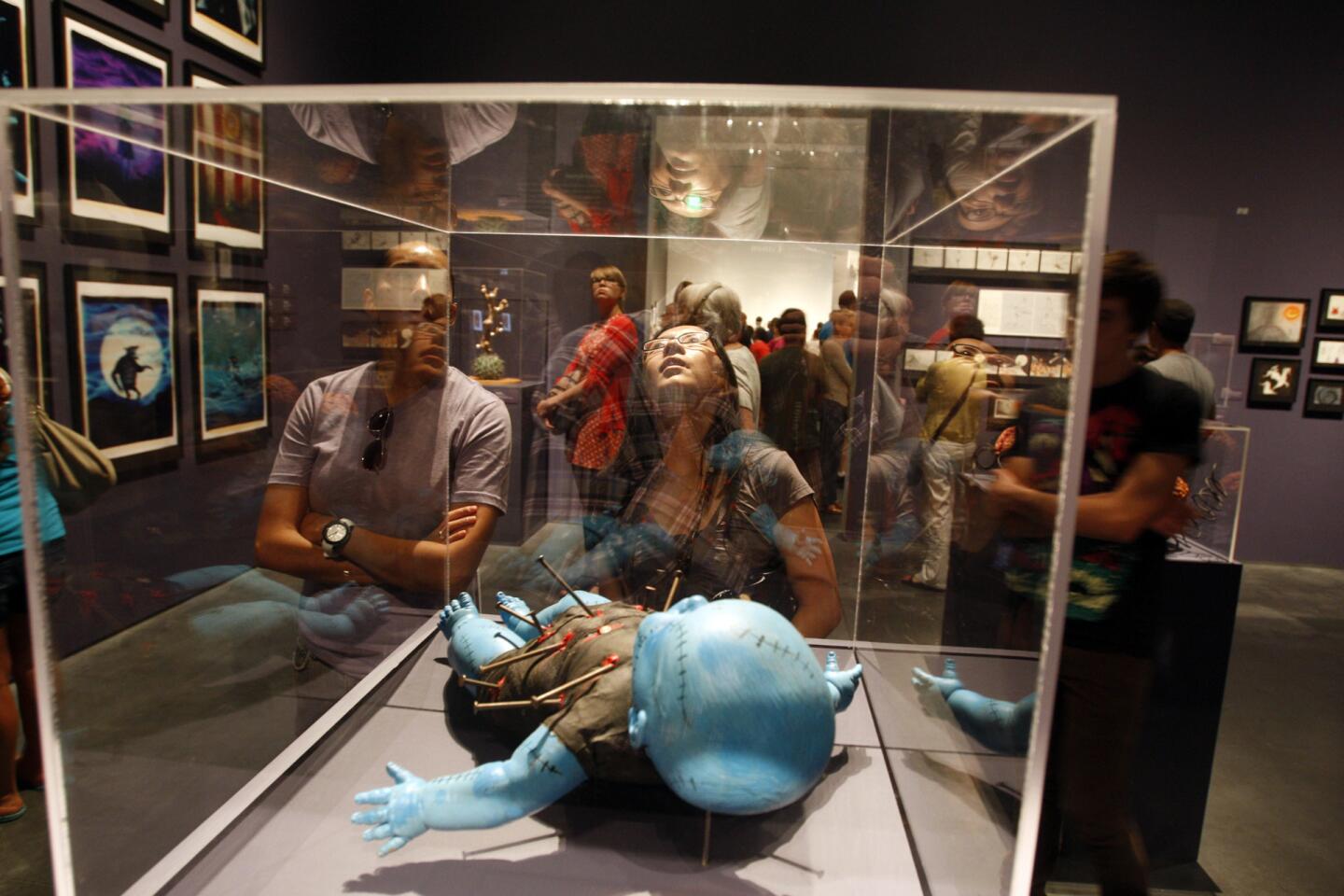Traveling to London in summer 2013 to see theater shows?
- Share via
LONDON — Traveling to London this summer or just curious about the current state of theatrical affairs? Here’s my score card of the scene after a week spent scurrying in and around the West End.
“Strange Interlude” at the National Theatre
Eugene O’Neill’s sweeping drama about a woman trying to find the thread of her life after the death of her beloved fiancé is notable for the way the characters voice their inner thoughts. Experimental for its time, this 1928 Pulitzer Prize-winning play can seem like a clunky Freudian melodrama today. The National Theatre’s revival, directed by Simon Godwin, doesn’t attempt to soften the dialogue’s stilted tone. (Close your eyes and you might think you’re at home in the wee hours of the morning drowsily watching Turner Classic Movies.) Anne-Marie Duff, refreshingly uningratiating, plays Nina with a bright willfulness. Darren Pettie makes a seductive impression as Nina’s lover. Charles Edwards finds the eccentric humor in the role of Nina’s chaste paramour. Clarity trumps subtlety in a production that focuses on the overall dramatic design. Godwin didn’t convince me that “Strange Interlude” is top-drawer O’Neill, but this is a rare opportunity to encounter this marathon drama in crisp, condensed form.
“Sweet Bird of Youth” at the Old Vic
This isn’t an easy Tennessee Williams play to pull off. Although it’s not one of the playwright’s notorious car wrecks, it’s an unwieldy piece, top heavy with the bawdy histrionics of the Princess Kosmonopolis (a.k.a. Alexandra Del Lago) and burdened by an elaborate plot in which deadly Southern politics dooms a romance that never really had a chance to begin with. Marianne Elliott’s revival is slow in patches but achieves an operatic amplitude in a final stretch that is harrowing if not exactly cathartic. (The decadent desperation of the princess and Chance Wayne, her traveling companion hoping to make a comeback himself with his old hometown sweetheart, constitutes a special case of pathos.) Kim Cattrall acquits herself well as the aging Hollywood actress on the lam from what she assumes is a failed comeback attempt. The performance doesn’t maximize the wicked humor that Geraldine Page found in the role, but this is a convincing portrayal of a star writhing in the twilight of her fame like a vampire in sunlight. As Chance, rising American star Seth Numrich doesn’t replace the memory of Paul Newman, but he has both the abs and the acting intensity to make this “Sweet Bird” soar when it counts.
PHOTOS: LA Opera through the years
“Othello” at the National Theatre
This is the must-see production of the London summer. The smartest thing about Nicholas Hytner’s incisive modern-dress rendering of Shakespeare’s tragedy is the casting of Adrian Lester as Othello and Rory Kinnear as Iago, two actors who have a seamless ability to make character, thought and emotion one. Lester doesn’t quite have the lyricism and potent authority that Chiwetel Ejiofor brought to the role at the Donmar Warehouse in 2007 (still the best Othello I’ve seen). But Lester’s elegant humanity is absolutely radiant (his Othello really does have a “daily beauty” to his life). Better still, he lucidly tracks the Moor’s spiraling descent into jealous madness. Kinnear is hands down the best Iago I’ve encountered. A middle manager seething with resentment for having been passed over for promotion, he justifies his hatreds by graphically imagining that his enemies are cuckolding him. Set largely in a military barracks overrun with testosterone, this “Othello” is aided by the high quality of its male supporting cast (Jonathan Bailey’s Cassio and Tom Robertson’s Roderigo are the standouts). For those unable to get to London, the National’s “Othello” will receive an NT Live broadcast in the fall. No Shakespeare connoisseur should miss it.
“Merrily We Roll Along” at the Harold Pinter Theatre
This is a revival that I would have preferred to have seen at the Menier Chocolate Factory, where the production originated. One of Stephen Sondheim’s problem child musicals, the show no doubt called less attention to its trouble spots in a more intimate house, where proximity to the actors could distract from the occasional clumsiness of George Furth’s book. Period is important to this musical. The story, about a songwriting team whose ideals and friendship are challenged by success, moves backward in time from the 1980s to the 1950s. But Maria Friedman’s staging signposts the eras in a manner that often seems ersatz. The leads — Mark Umbers, Damian Humbley and Jenna Russell as the songwriters’ novelist friend — are compelling to watch and listen to even if their chumminess feels a bit contrived. Sondheim’s score certainly contains its share of haunting numbers (“Like It Was,” “Not a Day Goes By”), but the intervening years haven’t made the melancholy “Merrily” any easier to sort out.
ART: Can you guess the high price?
“The Curious Incident of the Dog in the Night-Time” at the Apollo Theatre
This adaptation of Mark Haddon’s bestselling novel revolves around a teenage boy with what appears to be Asperger’s syndrome trying to solve the mystery of a murdered canine. Theatergoers are invited to perceive the world for a time in the manner of someone who knows every prime number up to 7,057 but has difficulty understanding basic human emotions and cannot tolerate being touched. This National Theatre production kinetically staged by Marianne Elliott with just the right amount of video enhancement has become a critical and popular hit in the West End, winning a number of Olivier Awards and featuring a transfixing performance by Luke Treadaway as the accidental detective whose investigation leads him to discover new capacities within himself. The adaptation is slightly marred by novelistic sprawl and some audience-pandering sentimentality involving an adorable puppy, but this genre-busting whodunit is stylishly and sensitively re-created for the stage.
“The Night Alive” at the Donmar Warehouse
Conor McPherson is a playwright blessed with brilliant productions, and his latest play, which he directed himself, is no exception. Ciarán Hinds, Jim Norton and Michael McElhatton, noted veterans of his work, are part of a pitch-perfect ensemble that includes the equally adroit Caoilfhionn Dunne and Brian Gleeson. The plot, revolving around the entrance of a distressed woman into the lives of a makeshift family of men, bears traces of Harold Pinter’s “The Homecoming.” A shockingly violent occurrence midway through the play suggests the influence of Martin McDonagh. But this enigmatic work is too generous in its vision to belong to anyone but McPherson. Elusive at first encounter, “The Night Alive” conjures a world of menacing darkness but allows fellowship to burn bright among characters who, for all their despairing circumstances, can’t help rising in ecstatic dance when Marvin Gaye comes on the radio.
PHOTOS: Best in theater for 2012
“Charlie and the Chocolate Factory” at the Theatre Royal Drury Lane
A disappointingly bland stage adaptation of Roald Dahl’s novel that sets up invidious comparison not only to the classic 1971 film version starring Gene Wilder but also to the current Dahl stage hit that has taken London and New York by storm, “Matilda the Musical.” Full review here.
“Passion Play” at Duke of York’s
Peter Nichols’ drama was part of a British wave of infidelity dramas that includes Harold Pinter’s “Betrayal” and Tom Stoppard’s “The Real Thing.” The fluidly enacted novelty here is that two sets of actors play the married couple, one set expressing the outward behavior, the other the inward reality. To be honest, I was a bit reluctant to end my London theater marathon with this downbeat study of midlife domestic strife. But David Leveaux’s stinging revival made me infinitely glad I did. Magnificently anchored by Zoë Wanamaker (without question one of the finest stage actors in the English-speaking world) and Owen Teale, the production scrutinizes a faltering marriage with an intensity worthy of Ingmar Bergman. Ruthless in its lack of sentimentality, this production of “Passion Play” offers the rarer consolation of true emotional complexity. What better way to end a memorable week of British theater?
More to Read
The biggest entertainment stories
Get our big stories about Hollywood, film, television, music, arts, culture and more right in your inbox as soon as they publish.
You may occasionally receive promotional content from the Los Angeles Times.
